Winter of Discontent
description: the winter of 1978–79 in the United Kingdom, during which there were widespread strikes by public sector trade unions
74 results
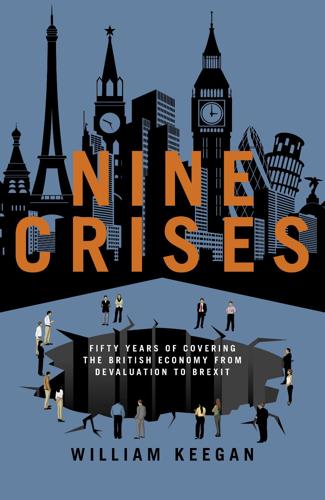
Nine Crises: Fifty Years of Covering the British Economy From Devaluation to Brexit
by
William Keegan
Published 24 Jan 2019
The problem was, as had happened with Edward Heath’s government in the winter of 1973–74, that yet another government’s pay policy had broken down. Referring to this in his memoirs, Healey acknowledges that the government was probably overambitious in setting the targets for pay policy which fomented union demands and led to the Winter of Discontent. There can be little doubt that having to go ‘cap in hand’ to the IMF in 1976 and mishandling pay policy in 1978–79 – with the unfortunate episode of the Winter of Discontent – were big factors in Labour’s loss of the 1979 election and the rise of Thatcherism. CRISIS 4 1979–82: SADOMONETARISM AND THATCHER RECESSION When the Thatcher government came into office in 1979, they were deeply suspicious of the Whitehall machine that was associated with the perceived failures of the 1970s, and not least with ‘Keynesian’ economic advisers.
…
In his memoirs, published after eight years of Conservative rule, Callaghan made it quite clear that he was really a Keynesian and disagreed with the Thatcher/Howe/Lawson polices that were then contributing to a rapid rise in unemployment. As it happened, inflation and unemployment were both already falling by 1977–78, towards the end of Callaghan’s premiership. It was only the Winter of Discontent in 1978–79 (see Crisis 3) that finally wrecked the Labour government’s reputation for economic competence. The fact of the matter, as became apparent all those years later in the wake of the 2007–08 financial crisis, is that Keynes was right all along: the only way to emerge from recession is to spend your way out.
…
As often happens, the original words were somewhat different, but the way of the world, encouraged by the desire of the media for snappy headlines, is to elide and sometimes distort the original, while nevertheless bestowing on posterity the essence of the truth. Thus in January 1979 James Callaghan returned from a heads of government summit in Guadeloupe during what became known as the Winter of Discontent and was ambushed by reporters at the airport, and before he knew where he was the headlines screamed ‘Callaghan – “Crisis? What Crisis?”’ Younger readers must picture the circumstances. The Prime Minister had just returned from the sunny West Indies, where, as far as the general public was concerned, he had been hobnobbing with the other leaders of the G7 in some comfort – not to say Caribbean luxury – although in fact he had been involved in serious talks on Western nuclear strategy and other matters of international concern with President Ford of the US; Giscard d’Estaing, President of France; and Helmut Schmidt, Chancellor of West Germany.
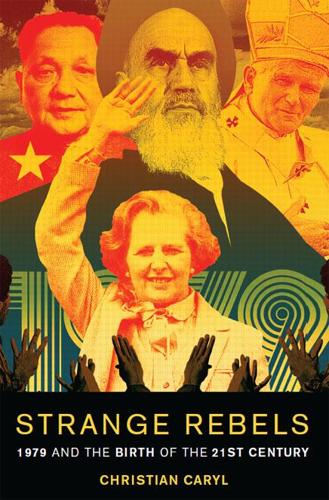
Strange Rebels: 1979 and the Birth of the 21st Century
by
Christian Caryl
Published 30 Oct 2012
The next day’s edition of the tabloid the Sun ran a damning headline: “Crisis? What Crisis?” Callaghan never actually said those words. But the accusation stuck—precisely because his optimism appeared at such odds with the images that dominated the evening news. For nonunionized Britons, the “Winter of Discontent,” as the months of strikes were soon dubbed, was more than just another episode in a long history of industrial unrest. It was not just that sidewalks were vanishing under piles of garbage or that coffins were going unburied. Strikers and the police clashed in pitched battles that evoked nightmarish visions of anarchy.
…
Where he was genial, she was earnest. Where he was smooth, she was grating, sometimes even a bit shrill. What could you expect, really, from a woman? At one point, when Thatcher chastised him for his “avuncular condescension,” Callaghan replied that he found it hard to imagine her as his niece.3 The Winter of Discontent took its toll. As the early months of 1979 gave way to spring, it no longer looked as if Callaghan could count on an economic upturn to counter the prevailing gloom. But his advisers took some consolation from the polls. They showed that Thatcher’s personal approval ratings still lagged behind Callaghan’s.
…
From now on the party’s leaders would interpret his Word according to their own convenience. 11 The Blood of the Martyrs For most countries, 1979 dawned in a fog of uncertainty. News of the party plenum in December 1978 gave many Chinese an inkling that positive changes were on the way, but no one knew for sure how far-reaching the reforms would be or how quickly they would come. Britons, for the moment, remained mired in the frustrations of the Winter of Discontent; an end to the strikes was not in sight. The simmering rebellion in Afghanistan posed little in the way of a systemic challenge to the government. The election of John Paul II suggested the possibility of a shift in Vatican policy toward the East bloc, but the Communist authorities in Warsaw had yet to issue a response to the new pope’s request for permission to visit his homeland.
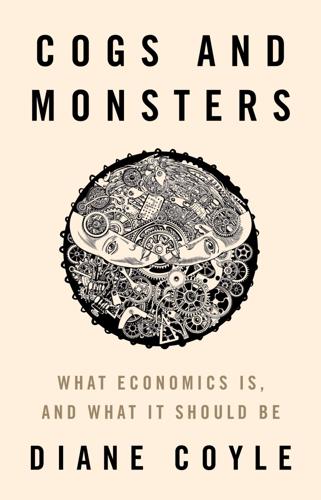
Cogs and Monsters: What Economics Is, and What It Should Be
by
Diane Coyle
Published 11 Oct 2021
The trigger was yet more dismal statistics about the twin balance of payments and government borrowing deficits, the latest manifestation of Britain’s long post-war struggle with a lack of competitiveness (Roberts 2016). The IMF, inevitably, insisted on large cuts in public spending as a condition of the loan. The austerity contributed to the troubled end of the Labour Government after the Winter of Discontent, and paved the way for Mrs Thatcher and Thatcherism. The latest published figures show the current account and budget deficits were a smaller share of GDP than thought at the time, and also show the economic cycle to be less pronounced than did the contemporaneous statistics. The economy was without question in a mess so the statistics alone probably did not change the course of history—but the counterfactual is striking.
…
So the seemingly reliable inverse Phillips curve relationship between unemployment and inflation—a bit less of one for a bit more of the other—broke down. Inflation increased—sharply so in the UK. At the same time, unemployment started to climb, reaching then-unprecedented post-war heights. In the UK it paved the way for the election of Mrs Thatcher in 1979, after the dreadful strikes of the Winter of Discontent. On the other side of the Atlantic, Mr Reagan won the presidential election soon after, on a promise of inflation-fighting and small government. The ideas enabling this new political climate, prompted by the economic crisis and a reaction to the previous political and economic consensus, were ready, in the air.
…
J., 122, 124 BBC Reith Lectures, 77–78 BBC Trust, 83 Becker, Gary, 2, 92, 119 behavioural economics: aggregation and, 3, 40, 42, 71–72, 100–102, 106, 113, 122–23, 141, 176–77, 201–2; beliefs of tomorrow and, 22; bias and, 109, 136; Coase on, 58; cognitive science and, 35–36, 48, 51, 91–92, 118–19, 186; competition and, 45–51 (see also competition); consumers and, 22, 59–60, 92, 109; context and, 88; failures and, 55; Goodhart’s Law and, 72, 103; happiness and, 70–71, 153; incentives and, 29, 33, 35, 55, 63–64, 80, 106, 110, 160, 200; interventions and, 48, 63, 104, 106, 160, 208, 211; markets as process and, 37–45; models and, 22, 35, 47, 63, 88, 92–93, 119, 136, 154; outsider context and, 88, 92–93, 100, 103–9; performativity and, 11, 23, 30, 211; progress and, 136–37, 145, 154, 157–60; psychology and, 38, 63, 70, 92, 94; public choice theory and, 64, 106, 119, 124; public services and, 33; rationality and, 22, 35, 46–47, 59, 109, 117–19; self-referential policy advice and, 63–64; separation protocol and, 119–20, 124; special interest groups and, 64–66; technocratic dilemma and, 67–79; twenty-first-century policy and, 186, 202, 207–8; Wu study and, 8 Bell, Daniel, 67 Bernanke, Ben, 17 Berners-Lee, Tim, 195 bias: academics and, 6; artificial intelligence (AI) and, 13, 161, 165, 187; behavioural, 109, 136; causality and, 13, 105; control groups and, 105; data, 13, 101, 105, 161, 187, 209; decision making and, 13, 109, 187, 209; framing effects and, 47; gender, 6, 8; institutional, 180; market, 180, 187, 209; non-rational, 47, 109; skill-biased technical change and, 132; special interest groups and, 64–66; survey, 101; twenty-first-century policy and, 187, 209 Biden, Joe, 205 Big Bang, 16 big data, 3, 13, 40, 51, 86, 100, 203, 209 biodiversity, 39, 63, 165 Black, Fisher, 23–25, 28 blackboard economies, 99 black box solutions, 161 BlackLivesMatter, 9, 214 black markets, 43 Black-Scholes-Merton model, 24–25 Blair, Tony, 208 Blake, William, 150 Blue Books, 150 BMW, 196 Booking, 173 Borges, J., 90 Boskin Commission, 146–47 Boston Dynamics, 137 Bowles, Sam, 85, 117, 119 Bretton Woods, 192 Brexit, 1, 37, 53, 56, 70, 110, 131, 155, 213 Brown, Dan, 108 Brynjolfsson, Eric, 176 bubbles, 20, 22, 29 Buchanan, James, 33 budget constraints, 177 Bundeskartellamt, 205 Bureau of Economic Policy Analysis, 66 business cycles, 71, 81, 102, 124 calculus, 16, 33, 90, 145 Calculus of Consent, The: Logical Foundations of Constitutional Democracy (Buchanan and Tullock), 33 Camus, Albert, 87, 108, 111 capitalism: criticism of, 19–20; free market and, 19, 41, 186; globalisation and, 110, 132, 139, 154, 164, 193–94, 196, 213; inequality from, 19; progress and, 143, 149; Schumpeter on, 143; twenty-first-century policy and, 186, 190, 195 Capital (Piketty), 131 carbon emissions, 38–40, 180, 187 Carlin, Wendy, 85 Cartlidge, John, 27 Case, Anne, 131 cash for clunkers, 55, 63 causality: bias and, 13, 105; correlation and, 94; deductive approach and, 103; economically establishing, 100; empirical work and, 2, 61, 94–96, 99; feedback and, 11, 94, 96; Leamer on, 102; methodological debate over, 2; models and, 2, 94–95, 102; moral issues and, 96; outsider context and, 94–96, 99–105; progress and, 137; public responsibilities and, 61, 74; randomised control trials (RCTs) and, 93–95, 105, 109–10; reflexivity and, 11, 81; societal statistics and, 61; statistics and, 61, 95, 99, 102; two-way, 94, 96 central banks: independence of, 16; progress and, 149; public responsibilities and, 16, 32, 62, 64, 66–67, 76, 81 central planning: artificial intelligence (AI) and, 184, 186–87; competition and, 38, 41, 124, 182; failure of communist, 40, 182–88, 190; socialist calculation debate and, 182–88, 190, 209 Central Planning Bureau, 66 Chetty, Raj, 86 Chicago School, 24–25, 73, 75, 190, 193–94 Chile, 184 China, 173, 195, 206 Citadel, 27 City of London, 16, 19 climate change, 85, 148, 154 Close the Door campaign, 155–56 cloud computing, 150, 170–72, 184, 197 Coase, Ronald, 57–58, 62, 98–99 codes of conduct, 9, 206 cognitive science, 35–36, 48, 51, 91–92, 118–19, 186 Colander, David, 100 Cold War, 190 Coming of Post-Industrial Society, The (Bell), 67 common sense, 78, 127 communication, 53, 127, 168; bandwidth and, 171; compression and, 171; cost of, 196; 4G platforms and, 195; instant messaging, 171; latency and, 171; price of, 150, 171, 177; servers and, 25–26, 141, 170; smartphones and, 46, 138–39, 164, 171, 173, 177, 195, 198; SMS, 171; social media and, 52, 73, 82, 140–41, 149, 157, 163, 173, 176–77, 195; telephony and, 4, 31, 46, 98, 123, 138–39, 144, 156, 164, 171, 173–74, 177, 184, 195, 198; 3G platforms, 60, 139, 173, 195; transmission speeds and, 171 comparative advantage, 78, 97 competition: behavioural fix and, 45–51; central planning and, 38, 41, 124, 182; Chinese, 173, 195, 206; creative destruction and, 41; digital economy and, 42, 85, 165, 181, 201–6; directory numbers and, 60; empirical work and, 181, 209; envelopment and, 203–4; incumbents and, 41–42; innovation and, 28, 41, 46, 68, 85, 209; monopolies and, 20, 42; network effects and, 202, 205; opportunity cost and, 56, 58, 80, 156; outsider context and, 98, 105; Pareto criterion and, 122–23, 126–27, 129; production and, 12, 41; profit and, 33, 41–42, 105, 204; progress and, 135, 158, 165; public responsibilities and, 28, 33, 38, 41–42, 45–48, 57–69, 74, 77, 79, 85; rationality and, 117; resource, 41, 45, 117, 123, 125; separation protocol and, 120, 123–25; socialist calculation debate and, 182–83; special interest groups and, 64–66; specific studies in, 12; spectrum auctions and, 60–61; SSNIP test and, 204; twenty-first-century policy and, 182, 201–9 Competition and Markets Authority (CMA), 205 computers: AI and, 116 (see also artificial intelligence [AI]); Black-Scholes-Merton model and, 24–25; changing technology and, 169; cloud computing and, 150, 170–72, 184, 197; data sets and, 2, 13, 51–52, 60, 101, 161, 177, 201, 209; David on, 169; declining price of, 170; empirical work and, 2, 17, 52; exchange locations and, 25; feedback and, 179; Millennium Bug and, 155; Moore’s Law and, 170, 184; power of, 2, 17, 40, 58, 170, 183–84, 188; progress and, 138, 144, 155; rationality and, 116–17; servers and, 25–26, 141, 170; software and, 25, 140, 155, 171, 177–78, 186, 197, 200–201, 203; Solow on, 169; speed and, 25, 184; statistics and, 17, 52, 58, 144, 169; supercomputers, 170; twenty-first-century policy and, 183–84, 186, 188, 214; ultra-high frequency trading (HFT) and, 25–27 conservatism, 30 Consumer Price Index (CPI), 146–47, 172 consumers: bad choices and, 3; behavioural economics and, 22, 59–60, 92, 109; conspicuous consumption and, 42; digital economy and, 42, 137, 172–76, 181, 198, 200–206, 213; empirical work and, 3, 181; income and, 93 (see also income); innovation and, 28, 102, 200; Keynes and, 22; online shopping and, 173, 198; outsider context and, 92, 96, 98, 100–102, 105, 108–9; progress and, 137, 141, 144, 146–47, 151; public responsibilities and, 22, 28, 42, 59–60, 65; rationality and, 116; technology and, 28, 102, 171–76, 181, 200, 213; time spent online, 176–78; twenty-first-century policy and, 184, 198–206; welfare and, 105, 206 Cook, Eli, 150 copyright, 140 CORE’s The Economy, 85–86, 212–13 cost-benefit analysis (CBA), 56–57, 58n12, 125–26, 207 cost of living, 143–47, 172 counterfactuals, 97–98, 158, 161, 198, 208 Covid19 pandemic: body politics and, 163; financial recovery from, 88, 114; GDP growth and, 88, 165; impact of, 3, 10–11, 14, 20, 38, 43, 45, 68, 75, 88, 110, 114, 132–33, 149, 153, 155, 163–66, 181, 194, 213–15; lockdowns and, 3, 43, 45, 88, 114, 163, 198; public opinion and, 165–66 “Creating Humble Economists” (Colander), 100 creative destruction, 41 curriculum issues, 2, 4–5, 83, 85, 88 Daily Telegraph, 159 Darwin, Charles, 48 data centres, 26 data sets, 2, 13, 51–52, 60, 101, 161, 177, 201, 209 David, Paul, 169 Deaths of Despair (Case and Deaton), 131 Deaton, Angus, 128–29, 131 debt, 76, 101, 153 decision making: artificial intelligence (AI) and, 116, 186–87; bias and, 13, 109, 187, 209; Green Book and, 56, 126; normative economics and, 110, 114, 120; opportunity cost and, 56; outsider context and, 93; production and, 12, 123, 140, 196; progress and, 160, 162; rationality and, 116 (see also rationality); rules of thumb and, 47–48, 90, 117, 212; self knowledge and, 81; separation protocol and, 120 DeepMind, 115–16 Deliveroo, 173 demand management, 31, 191–92 democracy, 33, 67, 69, 79, 193 deregulation, 16, 31, 60, 68, 71, 193–94 derivative markets, 16, 18, 23–25, 28 Desrosières, Alain, 146 Dickens, Charles, 150 digital economy: AI and, 115 (see also artificial intelligence (AI)); changing nature of, 168–81; cloud computing and, 150, 170–72, 184, 197; cogs and, 6, 129, 154, 165, 179; competition and, 42, 85, 165, 181, 201–6; consumers and, 42, 137, 172–76, 181, 198, 200–206, 213; difference of, 168–76; dominance of by giant companies, 133; envelopment and, 203–4; 4G platforms, 195; GAFAM and, 173; globalisation and, 110, 132, 139, 154, 164, 193–96, 213; GPTs and, 169; Great Financial Crisis (GFC) and, 113–14; growth and, 129, 132, 140, 143, 194, 202; implications of, 176–78, 211–14; individual and, 6, 13–14, 128–29, 141, 175, 179, 181, 201; innovation and, 169–70; market changes and, 173–76; measuring online value and, 176; monsters and, 6, 154; network effects and, 127, 141, 174, 177, 185, 199–202, 205, 209; new agenda for, 179–81; online shopping and, 173, 198; Phillips machine and, 135–37, 151, 192; populism and, 211; production and, 132, 140, 142, 176, 195–97, 202, 213; progress and, 14, 137–43, 150, 153–54, 164–67; Project CyberSyn and, 184; services and, 176; software and, 25, 140, 155, 171, 177–78, 186, 197, 200–201, 203; statistics and, 113, 150, 164, 170, 172, 212; superstar features and, 173–74; 3G platforms, 60, 139, 173, 195; twenty-first-century policy and, 13, 185–88, 194–210; wealth creation and, 132–33; welfare and, 128, 134, 143, 206, 208, 212 Director, Aaron, 190 directory numbers, 60 discount rates, 147–48 diversity, 6–9, 213–14 Dow Jones, 26 Duflo, Esther, 20–21, 52, 109, 137 eBay, 175 ECO, 11 Economics Job Market Rumors, 8 Economics Observatory (ECO), 214 economies of scale: changing technology and, 174; network effects and, 127, 174, 177, 185, 199–201, 209; progress and, 142 education: derivatives and, 16; growth and, 16–17, 132; interventions and, 12; online, 177; policy on, 60; provision of basic, 30; real-world context and, 88; skills and, 88, 128, 132, 169–70; spread of higher, 151, 153 Efficient Markets Hypothesis, 17, 29 Eichengreen, Barry, 16 electricity: changing economies and, 127, 169, 191–92; progress and, 139, 142, 156, 165, 169, 191–92; regulation and, 65; supply of, 32; twenty-first-century policy and, 191–92, 200–201; warranties on goods and, 105 empirical work: behavioural economics and, 117, 159; causality and, 2, 61, 94–96, 99; competition and, 181, 209; computers and, 2, 17, 52; consumers and, 3, 181; context and, 17, 35, 61, 78, 92; correlation and, 70, 94; counterfactuals and, 97–98, 158, 161, 198, 208; data sets and, 2, 13, 51–52, 60, 101, 161, 177, 201, 209; feedback and, 11, 94–95, 155, 179, 188–89, 203, 205; growth and, 17, 61, 78, 209; macroeconomics and, 74, 100; market structures and, 35; physics envy and, 50; politics and, 3, 76, 78–79, 124, 213; populism and, 77; public responsibilities and, 17, 35, 40, 52, 61, 70, 74–81, 90, 92, 94–102, 110–11; randomised control trials (RCTs) and, 93–95, 105, 109–10; rationality and, 17; separation protocol and, 119, 124, 128; social constructs and, 13; statistics and, 17, 52, 61, 90, 95, 99; taxes and, 3; theory and, 2, 17, 52, 74, 90, 96, 99, 124, 181 endogenous growth theory, 17, 202 Enlightenment, 20 envelopment, 203–4 environmentalists, 126 equilibrium, 31, 38–39, 90–91, 123, 182 ethics, 4, 34, 39, 100, 105, 115, 119–24 Ethics and Society group, 115 ethnicity, 6–7, 9 European Commission, 67, 130, 205 European Steel and Coal Community, 190 European Union (EU), 37, 67, 195, 204 Eurozone, 67, 74 exchange rates, 118, 192 Facebook, 133, 173, 204–5 facial recognition, 165 fairness, 43, 45–46, 166 fake items, 98 Fear Index, The (Harris), 27 feedback: causality and, 11, 94–96; changing technology and, 179; political economy and, 188–89; progress and, 155; twenty-first-century policy and, 203, 205 financial intermediation services indirectly measured (FISIM), 28 Financial Times, 68–69, 97–98 Fisher Ideal index, 144n3 fixed costs, 174, 177, 179, 185–86, 200 forecasting: agent-based modeling and, 102; conditional projections and, 76; financial crises and, 17, 30, 100–101, 112–13; growth and, 37, 61; inflation and, 36; macroeconomics and, 3, 12, 36–37, 76, 101–2, 112; models and, 17, 74, 101–2, 113; self-fulfilling prophecies and, 5, 22–23, 154–55, 157; twenty-first-century policy and, 205; weather, 76 Fourastié, J., 191 4G platforms, 195 framing, 47, 130, 208 Frankenfinance, 18, 21, 25, 51–52, 165 Freakonomics, 108 free market: Brexit and, 213; capitalism and, 19, 41, 186; criticism of, 19; globalisation and, 110, 132, 139, 154, 164, 193–94, 196, 213; politics and, 30, 36, 130, 206; public responsibilities and, 19, 30–32, 35–36, 45, 54; separation protocol and, 123–24; twenty-first-century policy and, 182, 186, 191, 193, 195, 207 frictions, 22, 113, 136, 154, 182 Friedman, Ben, 16 Friedman, Milton, 16, 31, 93, 104, 121, 190 Furman, Jason, 86 GAFAM, 173 GameStop, 27 game theory, 48, 90–91, 129, 159–60, 179–80 Gelman, Andrew, 108 gender, 6–9, 93 GenZ, 166 Giavazzi, Francesco, 68 Gigerenzer, Gerd, 48 Gilded Age, 133 Giudici, Claudio, 69 Glaeser, Ed, 92 globalisation, 110, 132, 139, 154, 164, 193–96, 213 Goldman Sachs, 19 Good Economics for Hard Times (Banerjee and Duflo), 109 Goodhart’s Law, 72, 103 Google, 133, 141, 173, 201, 204–5 Gordon, Robert, 142 Gould, Stephen Jay, 49–50 Gove, Michael, 110, 149 Government Economic Service (GES), 53, 83–85 GPT, 169 Great Depression, 3, 10, 17, 20, 74, 191, 213 Great Financial Crisis (GFC): behavioural economics and, 51; consequences of, 1, 3, 11, 213; digital economy and, 113–14; dynamic stochastic general equilibrium models and, 31; forecasting, 30, 101, 112–13; Greece and, 56–58, 67; Italy and, 56–58, 67–69; models and, 31, 101, 113; outsider context and, 87–88, 101, 110, 112–14; progress and, 149, 153, 159; public responsibilities and, 16–19, 21, 29–31, 37–38, 50–51, 56, 67–68, 73–74, 79, 84; technology and, 56, 181; twenty-first-century policy and, 194 Great Moderation, 17, 73 Greece, 56, 67–68 greed, 11, 16, 29, 164 Green, Duncan, 95–96 Green Book, 56, 126 Greenspan, Alan, 101 Griliches, Zvi, 198 Gross Domestic Product (GDP), 60; Covid19 pandemic and, 88, 165; Fisher Ideal index and, 144n3; FISIM and, 28; flatlining of, 142; free market and, 130; Gross Domestic Product (GDP) and, 172–73; Gross National Product (GNP) and, 151; growth and, 28, 46, 88, 97, 138, 143–44, 159, 165, 169, 171–72; inflation and, 13, 113, 148; internet and, 97; Laspeyres index and, 144n3; macroeconomics and, 13, 101, 113, 151; progress and, 138, 142–44, 148, 151, 158–59, 165, 172–73; real, 101, 142–44, 169, 173; Sen-Stiglitz-Fitoussi Commission on the Measurement of Economic Performance and, 151; social welfare and, 134; twenty-first-century policy and, 187; Winter of Discontent and, 158, 192 Gross National Product (GNP), 151 Grove, Andy, 41 growth: changing economies and, 171–72, 212; Covid19 pandemic and, 88, 165; derivatives market and, 16, 23, 28; digital technology and, 129, 132, 140, 143, 194–210; education and, 16–17, 132; empirical work and, 17, 61, 78, 209; endogenous growth theory and, 17, 202; faster, 66, 71, 144, 159; forecasting, 37, 61; Goodhart’s Law and, 72; Gross Domestic Product (GDP) and, 28, 46, 88, 97, 138, 143–44, 159, 165, 169, 171–72; income, 70, 131, 138, 143, 164–65, 194, 207; inflation and, 12, 66, 73, 178; innovation and, 37, 41, 46, 68, 71, 194, 209; internet and, 97; living standards and, 143–47, 172, 194; outsider context and, 12, 97, 101n1, 111; political economy and, 167, 181, 188–95; progress and, 138, 140, 143–45, 152, 159, 165; public responsibilities and, 16–17, 23, 28, 37, 41, 46, 61, 66, 68–73, 76, 78; recession and, 17, 51, 73, 111, 154, 158–59; slow, 11, 72; spillovers and, 129–30; sustainability and, 11, 20, 111, 148, 152, 166; technology and, 71, 132, 140, 202; twenty-first-century policy and, 187, 191–92, 194, 202, 207, 209; velocity of money and, 71 Guardian, 159 happiness, 70–71, 153 Harberger, A.
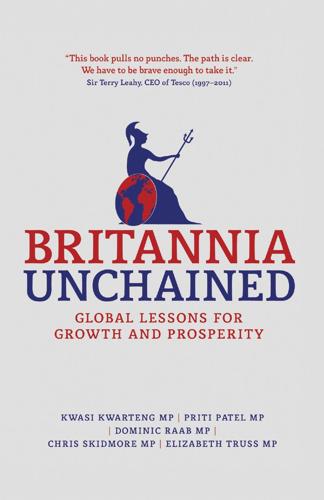
Britannia Unchained: Global Lessons for Growth and Prosperity
by
Kwasi Kwarteng
,
Priti Patel
,
Dominic Raab
,
Chris Skidmore
and
Elizabeth Truss
Published 12 Sep 2012
Between 1978 and 1979 he caused over 500 walk-outs at the Longbridge plant.7 In hospitals, women gave birth by candlelight, traffic lights failed across the country,8 and even Prime Minister’s Questions was lit by candles and paraffin lamps.9 Blue Peter taught children how to line blankets The Chains 9 with newspaper to keep elderly relatives warm without heating. In early 1974, Britain was temporarily reduced to a three-day week. Rubbish piled up on the streets, and infamously during the 1978 so-called Winter of Discontent, even the dead were left unburied. ‘Goodbye, Great Britain,’ said a Wall Street Journal editorial, ‘it was nice knowing you.’10 ‘Britain is a tragedy,’ mourned Henry Kissinger. ‘It has sunk to borrowing, begging, stealing until North Sea oil comes in.’11 According to a Brussels correspondent, Britain was now only admired in Europe ‘for its ability to stagger along on its knees’.12 The dictator Idi Amin wrote to Heath offering aid, and claiming that he was ‘following with sorrow the alarming economic crisis befalling on Britain’.13 In response to the crisis, British society turned inwards.
…
The Prime Minister, Harold Wilson, spoke, without any irony, about the ‘white heat of technology’. Fashion icons like Twiggy, Jean Shrimpton and Mary Quant became prominent national figures. By contrast, the 1970s were an era of industrial strife and conflict. The three-day week, miners’ strikes and the ‘Winter of Discontent’ seemed to characterise that era. All through the decade there were rumblings that Britain had become ‘ungovernable’. Edward Heath, the Conservative Prime Minister, actually called a general election and framed the question ‘Who governs Britain?’ He discovered, to his cost, that he and his Government did not.
…
Neville 38 PriceWaterhouseCoopers 94 private enterprise, used for social ends 26–7 Programme for International Student Assessment (PISA) (OECD) 36, 38, 39–41, 44, 57, 105, 115 prudence 24, 27–9, 33 public services, investment in 12, 28–9, 31 ‘quants’ 44, 45, 47–8 Reagan, Ronald 38–9 reality television 75–6, 115 142 Britannia Unchained Recent Work Capability Assessments 70 The Red Paper on Scotland 26 Reich, Robert 25 Reilly, Cait 74 Reinhart, Carmen M. 21, 22 resources, running out 9 risk 99 and innovation 91–2 risk-aversion 86–8, 91, 92 see also failure Robinson, Derek (‘Red Robbo’) 8 Rogoff, Kenneth S. 21, 22, 29 Rolls Royce 8 Romer, Christina 22 Rossli, Ashraf 1 Rousseff, Dilma 101 Royal Society for the Encouragement of Arts (RSA) 61 Sahami, Mehran 60 Sainsbury’s, and migrant workers 64 Samuels, Tim 64 Sand Hill Road 93–4 Saragoza, Eric 54 Sarkozy, Nicholas 66 SAT (Standard Assessment Tasks) tests 39 Save the Children 71 Scandinavia, labour market reform 4 Schleicher, Andreas 38, 39, 40, 41 Science Museum, London 56 science and technology 38–60 attitudes to 48–51 securitisation 35 Sedi 103 seed capital 84, 98 see also venture capital Seed Enterprise Investment Scheme 98 Seedrs 98 Sela, Yonatan 86 Sequoia Capital 98 Silicon Roundabout (London) 55, 97, 112 Silicon Valley 93–4, 95, 97, 554 Simon, Leslie 48 Singapore 5, 66, 113 smart phones 55 Smith, Adam 20 Snow, C.P. 46 social mobility 11, 76–7 The Social Network (film) 48 solar energy sector, subsidies 85 Songkick 98 South Korea 4–5, 113 education 43–4, 55 working hours 66 Soviet Union 86, 89, 105 collapse of 10 SpaceX 95 Spain 3, 41, 52, 66 Spotify 98 Standard & Poor’s 47 Stanford University (US) 60, 93, 97 Stephens, Philip 28 strikes 8–9, 66, 69, 114–15 Stringer, Sir Howard 58 Süddeutsche Zeitung 40 Suez crisis (1956) 8 Sugar, Alan 75, 76 Summers, Larry 25 sustainable development 4, 10 see also economic growth Sweden 30, 32 Switzerland 30, 32, 52 Tang, Jessie 72 Tata, Ratan 64 taxation 12, 28–9, 31, 37, 88, 109, 110 impact on working hours 68–9 increases under New Labour 29 taxi drivers, work ethic 61–3 Tech City (London) 97 tech industry 51–5 international collaboration 53–4 low-wage workers 54 and tech skills 54–5 Technological Incubators Program (Israel) 79, 83–4 technology see science and technology; tech industry Index Thatcher, Margaret 9, 10, 11, 114–15 Toynbee, Polly 31 trade unions 8, 9, 63, 69 Trudeau, Pierre Elliot 14–15 True Flash Filing System 81 Tug, Tuggy 72 TweetDeck 55, 98 Twitter 93 unemployment 20, 23 Canada 14, 16, 18, 34 Europe 66 UK 70, 73, 74, 77, 87 Unison union 70 United Kingdom (UK) attitudes to academic achievement 45–7, 59 debt 10, 12, 30–3, 115 and deficit 19–21, 27, 29–33 economic decline 7–11, 12–13, 115 economic growth 9–10, 12, 114, 115 education 4–5, 12, 31, 42–3, 44–8, 51–60 failure of 57–8, 115 maths teaching methods 56–7 and parental aspiration 57, 59 performance in PISA tests 40, 41, 57, 115 and science and technology 51–3, 54–60, 115 tuition fees 60 end of empire 4, 8, 10, 114 and entrepreneurship 76, 91, 97–8 and European Union 10 government subsidies 85 graduate jobs market 44–5 innovation 98, 114 intellectual capital 52, 53, 112 patent applications 95–7 pensions 3, 63, 69–70, 110 population growth 100, 107–8 productivity 61, 66–7, 77 public spending 3, 27–8, 31, 114, 115 143 regulation and red tape 5, 30, 37, 87–8, 98, 109 relationship with US 8, 10, 90 research and development 88 and risk-aversion 86–8, 91, 92 strikes 8–9, 69, 114–15 taxation 12, 28–9, 31, 37, 88, 109, 110 technology companies 97–8 trade union power 8, 9, 63, 69 universities 52–3, 57, 58, 97 rise in science and tech applicants 59–60 venture capital 94, 98 welfare policies 109, 110 and dependency 2, 67, 68, 70–1, 77, 109 unsustainability of 106 Winter of Discontent (1978) 9, 114 and work ethic 2, 61–77, 111–12 working hours 65, 66, 68, 77 young Britons 75, 108–11 and entrepreneurship 76 unemployment 74, 77 United States (US) attitude to bankruptcy 91 cost of patent process 96 and debt 22, 24, 31 Declaration of Independence 90 and economic freedom 36 education 12, 38–9, 40, 42, 46, 57 entrepreneurial spirit 90, 93–4, 96–7 and global financial crisis (2007–08) 19, 32, 37 investment in IT sector 93–4 women in tech careers 49 worker productivity 57, 67 working hours 65, 66, 68 universities non-courses 43, 46–7 see also United Kingdom (UK), universities urban riots (2011) 1, 75 USB flash drive 80–1 144 Britannia Unchained Varga, Getúlio 104 Velez, Leila 103–4 venture capital 5, 80, 84–5, 93–5, 98 see also seed capital Vietnam 54, 89 vocational training 74 Wall Street Journal 9, 14, 36, 96 Wanless report 29 Wei, Nat 59 Weizmann, Chaim 83 Wenzhou, China 95 Willetts, David 67 Wilshaw, Sir Michael 59 Wilson, Harold 114 Wolf, Martin 26 Wolley, Trevor 45 women and tech careers 48–9, 50–1 working and cost of childcare 71 Woos, Jaejoon 22 work ethic 2, 5, 13, 61–77 and entrepreneurship 67–8 Europeans 65–6 impact of childcare costs 71 impact of welfare system 68, 70–1, 74, 77 Japan 106 migrant workers 63–4 and role models 74–7 role of schools 73–4 worklessness 67 Workers’ Party (Brazil) 101 working hours 65, 66 effect of unionisation 69 impact of tax rates 68–9 World Economic Forum 35, 87 Wriston, Walter 20 X Factor 45, 75 Yes Minister 47 Yom Kippur War (1973) 83 YouTube 1, 95 Yozma programme (Israel) 83, 84–6 Zappos 98 Zhou, Biyan 42 Zuckerberg, Mark 76 Zynga 95

A History of Modern Britain
by
Andrew Marr
Published 2 Jul 2009
Yet even if he could read the runes, in the national memory Callaghan is forever associated with failure. There is the humiliating, cap-in-hand begging for help from the International Monetary Fund, the soaring inflation and interest rates of the late seventies and finally the piled rubbish, vast strike meetings and unburied dead of the 1979 ‘winter of discontent’. There is an arc which plummets through earlier crises under Wilson and Heath, before crashing into final chaos and destruction under Callaghan. Only after the wasteland of his time in office can the bold remaking of Britain under Margaret Thatcher begin. And Callaghan himself had been part of the problem.
…
That is only the start. It was the prospect of ever greater cuts in public spending, inflation out of control, and the economy in the hands of outsiders that helped break the Labour Party into warring factions and gave the hard left its great opportunity. Had the IMF crisis not happened would the ‘winter of discontent’ and the Bennite uprising have followed? Healey later said he forgave the Treasury for its mistakes in calculating public sector borrowing needs, because nobody had got their forecasts right. He and they were operating in a new economic world of floating exchange rates, huge capital flows and speculation still little understood.
…
He said later he could not forgive them: ‘I cannot help suspecting that Treasury officials deliberately overstated public spending in order to put pressure on governments which were reluctant to cut it. Such dishonesty for political purposes is contrary to all the proclaimed traditions of the British civil service.’62 The Callaghan government is remembered for the IMF crisis and for the ‘winter of discontent’. His defenders point out that Callaghan actually presided over a relatively popular and successful government for more than half his time in power – some twenty months out of thirty-seven. Following the IMF affair, the pound recovered strongly, the markets recovered, inflation fell, eventually to single figures, and unemployment fell too.
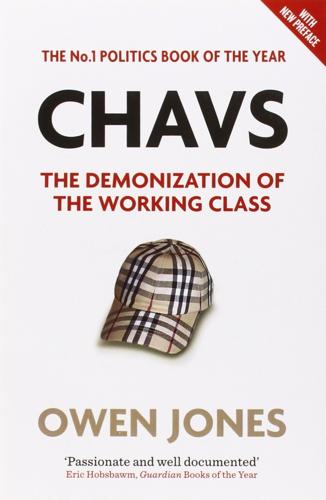
Chavs: The Demonization of the Working Class
by
Owen Jones
Published 14 Jul 2011
Aggressive picketers and 'unions holding the country to ransom' were mainstays of newspaper copy. At the heart of the Tory strategy was their clever manipulation of a series of strikes by largely low-paid public sector workers in 1978 and 1979--or, as it became known, the Winter of Discontent. Even today, over thirty years later, the Winter of Discontent remains a kind of right-wing folk story used to bash unions whenever there is even a murmur of industrial unrest. Scenes of uncollected rubbish rotting in the streets and the dead going unburied are recounted in almost apocalyptic tones. Yet the strikes were almost completely avoidable.
…
Low-paid workers like refuse collectors went on strike in the winter of 1978-9 because their living standards were in free fall, and they were being made to pay for an inflationary crisis that they had had no part in creating. Tony Benn was a minister in the Labour Cabinet during the Winter of Discontent. 'It was a conflict, an economic conflict bejween working people on the one hand and their employers on the other, and the government supported the employers, in effect,' he recalls. 'And it led to a great deal of disillusionment.' There is no doubting that the Winter of Discontent fuelled popular frustration with unions. Right-wing tabloids went into overdrive, making it look like Britain was descending into chaos. Members of the public faced inconvenience because of cancelled services.
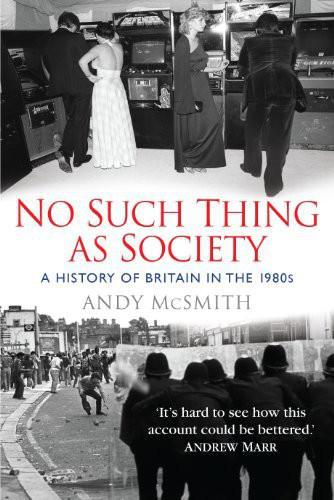
No Such Thing as Society
by
Andy McSmith
Published 19 Nov 2010
They were a weak foreign policy, poor industrial management and, particularly, the power of the British trade unions. When French or German workers went on strike it got them nowhere, he claimed, whereas ‘nearly always in Britain in recent years a strike has led to a very favourable settlement for the employees’. A few months before Nicko wrote his valedictory, Britain had been through the now infamous ‘winter of discontent’, which began in autumn 1978 and lasted until the following February, when there was a rash of strikes that did severe damage to the reputation of the Labour government. This period acquired an almost mythical status throughout the 1980s, as Conservatives referred to it again and again as a dreadful warning of what might happen if the Labour Party, funded by the trade unions, was to return to power.
…
In the late 1970s and early 1980s, many people went about their daily lives without realizing that somewhere there was an industrial dispute under way (if they had not heard about it on the news). Some groups of employees, such as the Longbridge car-workers or the Fleet Street printers, had a reputation for downing tools on the smallest provocation, but most went on strike rather less often or never at all. Of all the disputes that broke out during the ‘winter of discontent’ of 1978–9, the one that caused the most comment and has stuck in the collective memory was called by the National Union of Public Employees (NUPE), which represented low-paid council employees. It was shocking in a way that a strike by better paid Ford car-workers was not, because it had never happened before and because the people most affected by refuse collectors and dinner ladies stopping work were, inevitably, vulnerable members of the public.
…
It was shocking in a way that a strike by better paid Ford car-workers was not, because it had never happened before and because the people most affected by refuse collectors and dinner ladies stopping work were, inevitably, vulnerable members of the public. There were instances of gravediggers also going on strike for a few days, with the result that corpses stayed longer than intended in the mortuaries. Those unburied bodies became a stock image of the ‘winter of discontent’, as if they had been left lying in the street. A greater number of people were affected by the uncollected refuse, which made back alleys behind shops unpleasant. One tabloid journalist old enough to remember reckoned that Britain was ‘one big, open-air skip, carpeted in chicken carcasses, rotting vegetables and assorted household detritus’.17 In reality, most people found out about the strikes on radio, television or read about them in the newspapers.
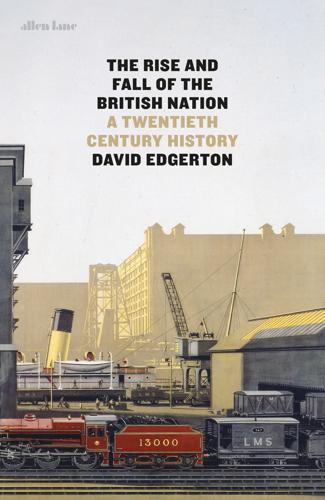
The Rise and Fall of the British Nation: A Twentieth-Century History
by
David Edgerton
Published 27 Jun 2018
The dispute, involving picketing and large police action, went on for two years from 1976, and pitted the trade unions and the left against an emergent anti-union right. The workers lost. In the Tory mythology which was to dominate from the 1980s, the Thatcher government was elected as a result of the ‘winter of discontent’ of 1978–9, in which unions showed they had too much power over government. The reality was different. There was a strike wave in early 1979, but that was because the unions did not have power over the government. The strikes happened because the Labour government was not prepared to give in to the unions, not because the unions wanted to strike.
…
The public sector workers tried to do the same, and it was they who were faced down by government, which thus brought on strikes.9 The new Conservative government elected in May 1979 also provoked large-scale strikes. Indeed, most of the strike activity of the year 1979 took place in the Conservative-ruled half of the year. Thus, while the 29.5 million working days lost in 1979, the highest since 1926, are usually unthinkingly allocated to the Labour years, and indeed specifically to the ‘winter of discontent’ strikes of January and February, the real picture is that fully 20.7 million of these working days were lost between July and December 1979. This was itself only just under the total for the previous whole year record since 1926, 1972 under Heath. September 1979, with 11.7 million working days lost is the most strike-intensive month since monthly records began in 1931 and remains a record.
…
Much of the loss came from the engineering strike for shorter hours, which the unions won, which involved rolling short strikes by 1.5 million workers, leading to the loss of 16 million working days. This now unknown strike was larger than the miners’ strikes of the 1970s and may well have been larger than the general strike of 1926 (excepting the massive lockout of miners).10 By contrast, the winter of discontent months, January and February 1979, had 3.0 and 2.4 million working days lost respectively. This was lower than the time of the miners’ strikes of 1972 and 1974, and comparable to the early months of 1980, with 2.8, 3.2 and 3.3 million days lost.11 The first major strike of 1980 was that of the steel workers, who had hardly gone on strike at all in the whole century.
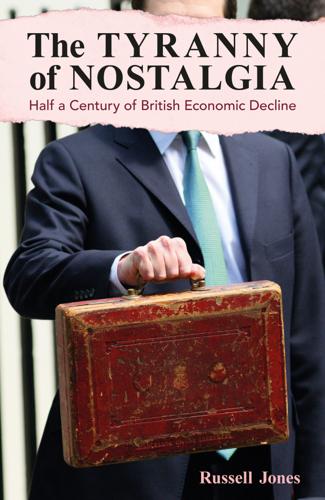
The Tyranny of Nostalgia: Half a Century of British Economic Decline
by
Russell Jones
Published 15 Jan 2023
A vigorous bull market in the early 1970s was followed by a catastrophic bear market in 1973 and 1974 and then another dip in 1976. Recovery took hold after 1976, but the upswing in equity prices levelled off in 1979. The 1970s saw an average of 13 million working days lost per year because of strikes, with a peak of 29.5 million in 1979, during the so-called Winter of Discontent. To give some context, a little over 4 million days were lost per year in the 1960s, just over 3 million per year in the 1950s, and some 7.25 million in the 1980s, although this latter number was skewed upwards by the 27 million or more days lost in 1984 during the miners’ strike. Thereafter, as trade union power waned, the figures dropped to a mere fraction of the first four post-war decades.
…
The government and the TUC failed to agree on a new pay norm in mid 1978, but Callaghan and Healey decided to adopt a target for wage increases of 5% per annum regardless, backed by yet more sanctions on employers that paid over the odds. They did so in spite of union warnings that their plan was unrealistic (inflation was running at around 8% at the time), especially for public sector workers looking to make up for the sacrifices of the previous period. The result was the so-called Winter of Discontent, during which any residual belief that Labour could manage the unions was swept away by an ugly catalogue of disruptive pay-related strikes, many of them in the social services sector, and episodes of violent picketing. Rubbish piled high in the streets, and schools were closed because caretakers, cleaners and cooks stayed away.
…
According to the official history of privatization, the measured productivity of privatized utilities was higher in the 1990s than the 1980s, but this seems to have been down to the adoption of new technologies as much as anything else.19 tackling trade union power. Following the 1978–79 Winter of Discontent, public sympathy for the trade union movement was in short supply, and there was widespread agreement across most of the political spectrum that trade union power had become excessive, that is was damaging the economy, and that is had to be reined in. The Thatcher governments took advantage of this consensus to confront organized labour with a progressively more forceful succession of laws and actions designed to moderate unions’ influence significantly, to inject greater flexibility into the labour market and to raise productivity.
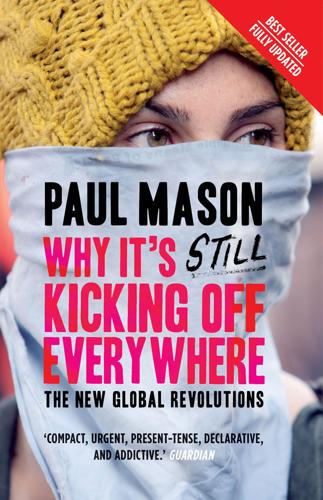
Why It's Still Kicking Off Everywhere: The New Global Revolutions
by
Paul Mason
Published 30 Sep 2013
Though occasionally led by organized crime, and often by the disorganized petty criminals who form the youth gang fraternity, the overwhelming social characteristic of those arrested was poverty. The events, whose precise significance is still being disputed by criminolo-gists and social theorists, formed a coda to the British winter of discontent. Because—from Millbank to the summer riots—the scale of British discontent looks small beside the Arab Spring, it’s been possible to ignore its significance. But it was significant, both sociologically and politically. Not only did it demonstrate the almost total disconnect between official politics and large sections of young people; it was also the moment that protest methods once known to a committed few were adopted by the uncommitted mass.
…
But their significance is much deeper. They are suited for their role as agents of change in the network society, in sharp contrast with the obsolete political institutions inherited from a historically superseded social structure.22 If this is correct, we can expect horizontalism to survive its first winter of discontent, and to resist absorption into the trade unions or the liberal and social-democratic parties. But having exhausted tent camps and general assemblies with their dearth of demands—having begun the move into ‘everyday life’—what happens next? Where next? The movements that took to the streets in 2011–12 are at a turning point.
…
P. 127 cellphones 75–76, 133–34 Central Security (Egypt) 9, 11, 17 Challenge of Slums, The (UN) 198–99 Charles, Prince 51–52 Chávez, Hugo 33 China 38, 78, 108, 112, 121, 125; consumption 109; foreign currency reserves 107; monetary policy 123 Chomsky, N. 28–29 Chris (student demonstrator) 48 Cinco, Mena 196–98, 206, 206–9 Citigroup 67 civil disobedience 56 class struggles 131 Clegg, Nick 44 Climate Camp movement 1, 55 Clinton, Hillary 26 collaborative production 139–41 Coming Insurrection, The 189–91 commodity price inflation 120–22, 195 communes 189, 190 Communiqué from an Absent Future 38–39 Communist Manifesto, The (Marx and Engels) 174, 188–89 communists 80 computer gamers 136 Conservative/Liberal Democrat coalition 44 consumption, and self-esteem 80–81 control 148 co-operatives 84 corruption, threat of 177–78, 205 creative destruction 106 credit crisis 106, 109 credit default swaps 99, 107 Critical Legal Thinking website 54 cross-border links 69–70 Cruz, Gloria 204 cultural stereotypes 27 culture: mass 29–30; popular 65, 176; transnational 69; working-class 72; youth 70 culture wars 178–84 currency manipulation 121–22 currency war 122–24 cyber-repression 78 Czechoslovakia 173 Darkness at Noon (Koestler) 128–29 Davies, Nick 148 Davos 17, 111 Dawkins, Richard 75, 150 Day X, 24 November 2010, London 41–42, 46–48 Debord, Guy 42, 46–17, 51 debt, toxic 110–11 default theory 111 deflationary slump 123 Deleuze, Gilles 46, 85 Delius, Frederick 127, 132, 152, 176 democratic counter-revolution 177, 188 demographics of revolt 66, 66–73; Athens, December 2008 uprising 73; students 66–71; the urban poor 70–72 Deptford 57 Detrick, Terry 154, 155–56, 156 devaluation 91, 122–23 @digitalmaverick 1–2 discontent, three tribes 68–69 disillusionment 68–69 disinformation, counteracting 146 disposable income 67 Dodd–Frank Act (USA) 167 @dougald 1 Dubstep Rebellion 48–52; blog 52; the Book Bloc 50–51; casualties 51; Fleet Street photographers 51; graffiti 51; marchers 49; police–student confrontation 50–51 durable authoritarianism 27, 30, 191 Durkheim, Emile 103–4 Dworkin, Ronald 46 eBay 74 e-commerce 81 economic crisis 3; revolutions, 1848 173 economic stagnation 191–92 economic theory 111 Economist, the 25 egoism 132 Egypt: bread prices 11; democratic counter-revolution 177; economic growth 119; economic indicators 119–20; elections, November 2011 177; Gini Index 119; inflation 120–21; opposition movement 10; organized workforce 72; police corruption 11; privatizations 17–18; unemployment 119–120; urban poor 71; working class 19–20 Egyptian revolution, the: the Army and 178; balance sheet 5; bread prices 11; casualties 17; chants 191, 211; counter-revolution 18; Day of Rage, 28 May 15–17; and Facebook 6, 10, 11, 12, 14; freedom 5; immolations 11, 71; Internet switched off 14; medical professions 20–22; military coup 17–19; numbers involved 13; outbreak, 25 January 10–14, 83; police violence 15; questions facing 23–24; Twitter blocked 14; Twitter feeds 13, 14; ultras 16–17; working class 20; on YouTube 11, 14, 15–16; zabbaleen riots 6–10 email 10 emancipated life 143–44 Engels, Friedrich 174, 188–89, 190 @eponymousthing 184 equity withdrawal 114 Estero de San Miguel, Manila 196–99, 205–6, 206–9 Eternal Sunshine of the Spotless Mind, The (film) 29 Eurobonds 113 Eurocrisis, the 111–13 European Central Bank 92, 98, 104, 112 European Financial Stability Facility 92, 104 European Financial Stabilization Facility 113 European monetary union 112, 113 European Union: response to Greek debt crisis 91–92, 96, 98–99, 104; sovereign debt crisis 104 Europe, revolutions, 1848 172 Eurozone 104; debt crisis 91–92, 99, 111–13 Execution of Maximilian (Manet) 53 exploitation 85 Facebook 74; Arab world growth of 135; and the Egyptian revolution 6, 10, 11, 12, 14; establishing connections with 75; ‘We are all Khaled Said’ page 11; and the Iranian revolution 34; and London trade-union demonstration, March 2011 57–58; Middle East usage 135; reciprocity 77; user numbers 135 Farewell to the Working Class (Gorz) 79–80 fatalism 30, 31 feedback loops 187 Feldstein–Horioka paradox 107 Feldstein, Martin 107 Fennimore and Gerda (Delius) 127, 132 First World War 128 Fisher, Mark 30 Flaubert, Gustave 171, 192 Flickr 10, 75 Food Price Index 121 Fordist era 28 Foucault, Michel 46, 84–85 fragmentation 80–81, 82 fragmented power 17 ‘Fragment on Machines’ (Marx) 143–44 France 173; Languedoc, 1848 174, 187; socialism 188; see also Paris freedom 27, 124; of expression 127; individual 127–30; Marx on 141–42; suppression of 131–33 Freeman, Richard 108 free-market economics 92, 188 Friedman, Milton 111 Fukuyama, Francis 30 G20 Summit, 2009 48, 122 Gaddafi, Muammar 25, 31 Gapan City, Philippines 193–96 Gates, Bill 23, 110 gay rights 132 Gaza 37; Israeli invasion of 33 Gaza City 31 Gaza Flotilla, May 2010 55 general intellect, the 144, 145–47 General Motors 39 Germany 113, 191; revolution of 1848 172; wages 108, 112 @Ghonim 13 Giddens, Anthony 31 Gide, André 127 Giffords, Gabrielle 182 Gini Index 119 Gladwell, Malcolm 81–82, 83 global capital flows 107–8 global financial crisis 31, 39, 66–67, 85, 110–11, 115, 191 globalization 69,72, 105, 108, 109, 122, 124, 149, 191 Golkar, Saeid 78 Googlebombs 78 Gorz, André 79–80, 143 graduate with no future, the 66–73, 96–97; disposable income 67; as international sub-class 69; life-arc 67; numbers 70; revolutionary role 72–73; and the urban poor 70–71 Grapes of Wrath, The (Steinbeck) 153, 155, 159, 163, 164 Great Britain: anti-road movement 56; benefit system 113–14; changing forms of protest 54–57; collapse of Labour 113–15; devaluation 123; Education Maintenance Allowance 47; end of winter of discontent 61–62; equity withdrawal 114; European elections, 2009 115; general election, 2010 43; the graduate with no future 96–97; Millbank riot 42–44; non-UK born workers 115; police failures 61; public spending cuts 54–55; radical tactics 54–57; spontaneous horizontalists 44–46; Strategic Security and Defence Review 124; student population 70; UK Uncut actions 54–55; university fees 44, 47, 50, 54; youth 41–42, 44, 53–54; youth unemployment 66 Great Depression, lessons of 123–25 Great Doubling 108 Great Unrest, 1914 175–76 Greece 37, 188; anomic breakdown 103–4; austerity programme 92–93, 102; bailouts 92, 96, 98, 113; cabinet reshuffle 96, 97–98; debt crisis 90, 91–92, 98–99, 112; GDP 91; general election, 2009 91; general strike 99; the left 100; media ownership 87; Medium Term Fiscal Strategy 91; model of capitalism 102; MP resignations 89; Papandreou government falls 96; political legitimacy lost 104; the salariat 101; tax evasion 97; tax revenues 92; tax system 91; see also Athens Greek Communist Party (KKE) 88, 90 Grigoropoulos, Alexandras 32 grime (music) 52 Grossman, Vasily 129 @GSquare86 69 Guindi, Ezzat 9 hackers 35 el-Hamalawy, Hossam, @3arabawy 10, 22, 71 Hardy, Simon 69 Hayek, Friedrich 111, 209 Henderson, Maurice 161–62 Hennawy, Abd El Rahman, @Hennawy89 12–13 Here Comes Everybody (Shirky) 138 Herman, Edward S. 28–29 hidemyass.com 14 hierarchy: erosion of 80–81; informal 83; predictability of 77 higher education market 67 Hill, Joe 176 historical materialism 131 Hogge, Becky 140 homelessness 159–63 Hoon, Geoff 114 Horioka, Charles 107 horizontalism 45, 55, 56, 62, 100 Huffington Post blog 184 human rights 143 Hungary 172 Ian’s Pizza, Madison, Wisconsin 184 Ibrahim, Gigi, @GSquare86 69 ideology 29, 149 immolations 11, 32, 71 impotence, zeitgeist of 29–30 impoverishment 209 Inception (film) 29 India 120–21 Indiana 116–17, 125 indignados, the 88, 100–1, 104 individual: freedom of 127–30; power of the 65, 79; rise of the 127–30 Indorama group 22 industrialization 192 Indymedia 74 inequality 209 inflation 109, 120–21 info-capitalism 148, 211 info-hierarchies 147–52 info-revolution, the 146, 149–50 informal hierarchies 83 information capitalism 145 information management 147 information networks 77 information tools 75 Inkster, Nigel 65 institutional loyalty 68 interest rates 67 International Labour Organization 19–20, 120 International Monetary Fund 92 Internet consciousness 136–38 Internet, the: access in slums 207; Arab world growth 135; and behaviour changes 131; and the Iranian revolution 35; out of reach for some 152; power of 29; shutdowns 14, 78; and the spread of ideas 150–51 investment, and savings 107 Invisible Committee, the 189–91 Iran 25; causes of failure of revolution 36–37; election, 2009 33–34; and the Internet 35; and the Middle East balance of power 178; rooftop poems 36; Twitter Revolution 33–37, 78, 178; on YouTube 34, 35 Iraq 25, 55 Ireland 92, 111, 112, 188 Islam 30, 37 Israel 26, 33, 179–80 Italy 104 Jakarta 33 James, C.

Markets, State, and People: Economics for Public Policy
by
Diane Coyle
Published 14 Jan 2020
It was a troubled decade for all the advanced economies, with OPEC increasing the price of oil dramatically, inflation trending up at the same time that many countries experienced a recession, and a sense by mid-decade that there was a crisis of capitalism. In the UK, the decade saw a growing number of strikes and pay increases and an upward wage-price spiral, culminating in the so-called Winter of Discontent in 1978–79, when a Labour government presided over rubbish piling up in the streets, power cuts, and even the dead lying unburied because of strikes by municipal workers. Mrs. Thatcher, elected in 1979, and Mr. Reagan, in office from 1981, adopted Hayek’s arguments for the market and the public choice arguments against government intervention.
…
By 1979 the output of the nationalized industries represented 10% of the British economy and 14% of capital investment—not out of line with many other OECD member countries. So they were significant in scale, but also characterized by poor productivity, low investment, and terrible industrial relations. Strikes were rife. The winter of 1978–79 in Britain is known as the Winter of Discontent, when many public sector workers went on strike, leading to power cuts, transport disruption, and garbage piling up in the streets. When Mrs. Thatcher won election in May 1979, conditions were ripe for a later widely imitated British policy innovation: privatization. The privatization of state-owned companies, putting the assets or shares in private hands through a means such as a stock market flotation, was not entirely new; the to-and-fro of British Steel’s ownership was described earlier, and some other postwar nationalizations had been reversed, such as the travel agency Thomas Cook (brought into public ownership in 1948 and privatized in 1972).
…
See welfare economics solar energy, 86 Solow, Robert, 305 Sonny Bono Act (1998), 62 South Korea, 127, 198, 206, 326 Soviet Union, 20, 23, 281 Spain, 144 species protection, 321, 322 speed limits, 273 Spence Michael, 164 spotted owl, 322 SSNIP (small but significant non-transitory increase in price) test, 58 stabilization, as government policy, 6 standard of living, 46, 207, 208, 251 Standard Oil, 95 “state aid,” 55, 133 state capacity, 16–17, 20 stated preference (contingent valuation), 305, 318–25, 326 statistical significance, 301 steel industry, 100, 102, 103, 106, 110, 114, 116, 119–20 Stern Report, 314–15 Stigler, George, 262 strategic bias, 321 strikes, 23, 109 sugar taxes, 272 Sugden, Robert, 174 sunk costs, 105 Sunstein, Cass, 173 superstar effect, 52, 54, 227 surge pricing, 78, 79, 167 surveys, 180–81 Sweden, 30, 85, 102, 115, 217, 275, 284 Switzerland, 237, 239, 250 Sydney Opera House, 276–78 tacit knowledge, 157 target setting, 257, 281–83, 287, 289 tariffs, 263 TaskRabbit, 168 Tata (Indian conglomerate), 103, 119 taxes: on alcohol and tobacco, 19, 25, 137, 152, 228, 272; avoidance vs. evasion of, 271; behavioral motivation for, 198, 199; behavioral response to, 274; credits against, 236, 252, 287; inefficiencies created by, 252; on inheritances, 231, 232; marginal effective rate of, 234, 235, 236–37, 239; on mobile phones, 165; optimal, 229, 231; Pigouvian, 25, 26, 31, 32, 141, 165, 252; on plastic bags, 5; public goods financed by, 27, 202; redistributive, 2, 7–8, 206, 208, 213, 225, 228–29, 232; resentment of, 3, 232; user fees vs., 28, 278, 279–80; value-added, 228 tax farming, 61 taxicabs, 71, 75–80, 263 tax incentives, 101, 129–30, 131, 134 technological disruption, 71, 72, 75–82 Telecom Italia, 107 telecommunications, 56, 91, 105, 130; bundling in, 93; equipment for, 118–19; as natural monopoly, 104; privatization of, 45, 46, 114, 117, 121; regulatory capture and, 68; state-owned, 101, 109 temperance movement, 269, 271 The Ten Commandments (film), 62 terrorism, 209 Tetlock, Paul, 300 Thaler, Richard, 173 Thatcher, Margaret, 22, 23, 70, 100, 109–10, 118, 119, 256, 258 Theory of Moral Sentiments (Smith), 194 third best theorem, 14 Thomas Cook (travel agency), 110 Tinbergen, Jan, 21 Titmuss, Richard, 196 tobacco taxes, 25, 152, 228, 272 toll goods (club goods), 26, 28, 142 toll roads, 26, 29, 278 tort law, 33, 65 total surplus, 47, 48 Toulouse, France, 157 traffic management, 275, 278 tragedy of the commons, 137–42, 148, 161, 165 training, 48, 129, 134 transaction costs, 32, 34–36, 303 Treaty on the Functioning of the European Union, 56 trichloroethylene spill (1987), 320 Trump, Donald, 185 trust (social capital), 137, 138, 147, 155–59, 168–69, 211 “trust busting,” 95 Tullock, Gordon, 260–61 Turing, Alan, 107 Turkey, 116, 117 turnpike trusts, 29, 144 Tutte, Bill, 107 Tversky, Amos, 173 Uber, 78–80, 84, 93, 263 Ulvaeus, Björn, 3 unemployment, 156–57, 212, 223; crime rate linked to, 154–55; in France, 78; policies to reduce, 205, 238; during recessions, 209, 251; among youth, 65–66 unemployment insurance, 202–6, 208, 209, 233, 251 unions, 22, 35, 110, 118, 121, 220, 223 United Kingdom, 3; alcohol consumption in, 19; automatic savings plan in, 187; behavioral policy unit in, 173, 185, 192; blood donation in, 196; competition policy in, 94; contracting out in, 284; cost-benefit analysis in, 305, 313; energy in, 86, 87–88, 89; health care in, 101, 246–49, see also National Health Service (NHS); industrial policy in, 106–7, 127, 129–30; inequality in, 217, 221, 241; minimum wage in, 240; mutual societies in, 203; nationalization in, 22, 101–2; policy evaluation in, 299; poverty in, 215; privatization in, 87–88, 98, 100, 102–3, 114–22, 124–25, 258, 290; public services in, 244, 281, 282–83, 290; road system in, 29, 292–93; taxation in, 198, 228, 232, 236, 252, 272; Universal Credit in, 234; value of a statistical life in, 326; welfare state in, 99; Winter of Discontent (1978–79) in, 23, 109 United States: automatic savings plan in, 185, 187; behavioral policy unit in, 173, 185; blood donation in, 196; competition policy in, 94–95; computer industry in, 107–8; contracting out in, 284, 285; cost-benefit analysis in, 305, 313; farm subsidies in, 267, 268; fracking in, 86; health care in, 210, 249–51; individualism in, 250, 251; industrial policy in, 125, 126–27, 131; inequality in, 217, 219, 223–24, 240, 242; labor force trends in, 221, 222; lobbying in, 265; municipal corporations in, 144; obesity in, 198; policy appraisal in, 300; power blackouts in, 85; social security in, 203; taxation in, 228, 232, 235, 236, 237; value of a statistical life in, 326; vouchers in, 287 U.S.
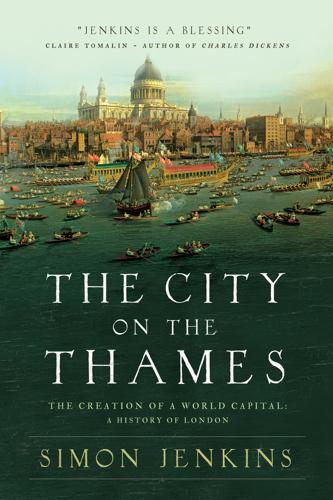
The City on the Thames
by
Simon Jenkins
Published 31 Aug 2020
Trade union power was now demonstrated more aggressively than ever since the General Strike. A desperate Heath government sought re-election in 1974 by asking ‘Who rules Britain?’ The answer from the voters was ‘Not you’. But the return of a Labour government under first Harold Wilson and then Jim Callaghan saw no let-up in the troubles, rising to a pitch in the ‘winter of discontent’ in 1978–79. Cemetery burials were suspended and rubbish piled high in Leicester Square. The London of the sixties had become divided and confused. The once-swinging metropolis seemed gripped by die Englische Krankheit (the English sickness), the continental idiom for rickets now widened to caricature Britain’s tottering economy.
…
Victorian Cricklewood awaits gentrification. 65. First steps to hipsterdom: advert by Roy Brooks, Observer, 1967. 66. Carnaby Street swings, by Malcolm English. 67. Abercrombie’s London: Jamaica Street, Stepney Green, 1961. 68. Template for a vertical city: the Barbican sends pedestrians aloft. 69. Winter of discontent: rubbish in Leicester Square, 1979. 70. London isn’t working: Ken Livingstone, County Hall, 1982. 71. Biking mayor: Boris Johnson on display, 2010. 72. A city born anew: Canary Wharf from Mudchute, Isle of Dogs, 2012. 73. King’s Cross, Coal Drops Yard redevelopment, 2019. 74.
…
G. 217; Tono-Bungay 211 Welwyn Garden City 251 Wembley 231–2 Wentworth, Thomas (later 1st Earl of Strafford) 63 Wesker, Sir Arnold 261 Wesley, John 109 West Cross Route (dual-carriageway road) 280 West Ham 275 West Ham United (football club) 328 West Hampstead 181 West India Dock 131, 293 West Indian immigrants 261, 271, 275 West Square (Lambeth) 120 Westbourne Gardens estate 271 Westbourne Grove 181 Westbourne stream 139, 140, 168 Western Avenue 228 Westminster, City of: 17th century 59, 60, 61–2, 63, 70–73, 83–6, 91; 18th century (early) 94–5; 1960s and 1970s 262–3, 264, 268, 270, 281–5; 1980s and 1990s 283; 21st century 306–7, 323, 325, 338–9; Edwardian 196–7, 198–200; Georgian 99–104, 110, 115, 119–20, 123–6; interwar 219–22, 225, 227–8, 230; Norman and medieval 27, 31; origins 21–3; post-war 245, 249–50, 252, 255–9; Regency and under George IV 132–6, 139–47, 148; Second World War 236, 245; topography 8; Tudor 41–2, 45; Victorian (early) 153–4, 163–7, 168, 169; Victorian (late) 176, 177, 179, 184–5; under William IV 151, 152–3, 154 Westminster, Hugh Grosvenor, 2nd Duke of 220 Westminster Abbey: 17th century 63, 64, 65; 18th century 99; 19th century 177; foundation by Edward the Confessor 22, 23, 25; Norman and medieval 25, 30–31, 34, 36; site 21–2; Tudor 40, 41, 153 Westminster Bridge 82, 113, 114, 120, 127, 147 Westminster Cathedral 198 Westminster Hall 27, 31, 63, 152; see also Palace of Westminster Westminster Paving Act (1762) 119–20 Westminster station 294 Westphalia, Peace of (1648) 66 Westway (dual-carriageway road) 279–80 Whistler, James McNeill 186, 203 White, Jerry 216, 231 White Tower see Tower of London Whitechapel 185, 207, 208, 256, 275; Bloom’s restaurant 207 Whitehall 70, 120, 146, 283; Foreign Office 176, 283; Treasury building 198, 283; War Office 199 Whitehall Palace 41, 45, 51, 60, 85–6, 91, 99; Banqueting House 59, 66, 85, 86; see also York Place Whiteley, William 180–81 Whiteley’s (department store) 180–81 White’s (club) 137 Whittington, Richard 38–9, 50 Whittington Hospital 39 Whittlesey Street 185 Wickhams (department store) 181 Wilberforce, William 136 Wilde, Oscar 182, 200 Wilkes, John 116–17, 119 Wilkins, William 146 William I, King 22, 24, 26–7 William III, King (earlier Prince of Orange) 88–91, 96, 98 William IV, King 150 William Rufus (later King William II) 27 Williams, Raymond 105 Williams-Ellis, Sir Clough 210 Willmott, Peter 265–6 Wilson, Harold, Baron Wilson of Rievaulx 276 Wimbledon 210 Wimpole Hall 102 Winchester 21, 25, 28 Windmill Theatre 236 ‘Windrush’ immigrants 275 Windsor Castle 64, 146, 166 Wine, Bishop of London 18 ‘winter of discontent’ (1978–79) 276 Wintour, Charles 282 Wittenberg 44 Woburn Square 284 Wollaton Hall 52 Wolmar, Christian 204 Wolsey, Thomas 43–4, 45 women: employment 111, 206, 215, 218; social life 53–4, 128, 188; in theatre 67, 70; voting rights and political life 177, 191, 218 Wood Green 317 Woodford 207, 210 wool trade 32, 40 Woolwich 175, 225, 230, 281, 317; Arsenal 215; Thames Barrier 281; town hall 201 Wordsworth, William 127, 129 workhouses 46, 119, 152, 161, 176, 215, 224 World Bank 239 Worms 38 Wren, Sir Christopher 70, 85, 95, 105, 258, 338; plan for post-fire reconstruction 77, 78–9, 80–81, 83, 120, 133, 134, 173, 243, 244; City churches 80–81, 136, 198, 338; St Paul’s Cathedral 80, 81–2; Kensington Palace 91, 97 Wright, Patrick 266, 301 Württemberg, Frederick, Duke of 53–4 Wycliffe, John 38, 44, 109 Wykes, Thomas 31 Wyndham Place 137 Wyngaerde, Anthonis van den 50, 51, 63 Yerkes, Charles Tyson 202–4 Yes Minister (television series) 279 York 10, 17, 24, 37; Jorvik Viking Centre 14 York Place 41, 42, 45; see also Whitehall Palace Young, Michael, Baron Young of Dartington 265–6 Young, Simon, AD 500 16 youth culture 248, 261, 262, 318 ‘yuppies’ (young upwardly-mobile professionals) 299–300 Zamoyski, Adam 172 Zeppelins 216–17 zoos 30, 103; London Zoo 135, 147 THE CITY ON THE THAMES Pegasus Books Ltd. 148 W 37th Street, 13th Floor New York, NY 10018 Copyright © 2020 Simon Jenkins First Pegasus Books cloth edition September 2020 All rights reserved.
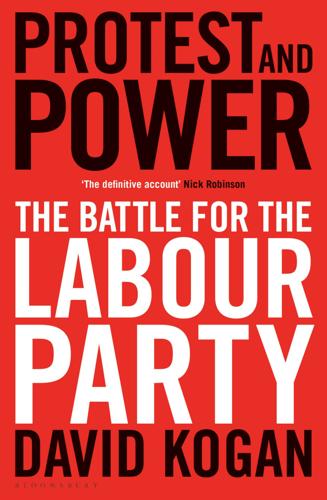
Protest and Power: The Battle for the Labour Party
by
David Kogan
Published 17 Apr 2019
In 1979, the battles would have to be fought all over again but before the next conference, Labour’s world fell apart and all the rules of engagement were rewritten. 2 The Years that Changed Everything In September 1978, James Callaghan teased the Labour movement with a possible general election and then failed to call it. The public sector trade unions declared a series of strikes against Callaghan’s pay cap in what was known as ‘the winter of discontent’ and in May 1979, Margaret Thatcher’s Conservative party was elected to power. The Callaghan government was exhausted, out of ideas and open to attack from both flanks. Labour had been the party of government for eleven of the previous fifteen years. Margaret Thatcher was seen as an unlikely choice for prime minster as her monetarist agenda was not only at odds with the prevailing political orthodoxy of both parties, it was thought to be unworkable.
…
This was partially to offset trade union funding and partially because New Labour loved business and business people quite indiscriminately. The modernisers had abiding memories of the 1970s, with trade unions influencing government policy and then turning on the Labour government during the winter of discontent. They were determined to bring in the world of business through the employers’ organisation, the CBI, as a balanced partner in government policymaking. The anti-union legislation of the 1980s was not repealed and the emphasis on keeping to the Conservative’s spending plans, not increasing the higher rate of income tax, and getting filthy rich was all fine – so long as taxes were paid.
…
W. here Deans, Stevie here debt cancellation here Deepening Divides here ‘dementia tax’, here democracy review here Democratic Unionist Party (DUP) here, here, here Department for International Development, creation of here Derer, Vladimir here, here, here, here, here, here, here, here, here, here, here, here, here Desmond, Richard here Dewar, Donald here, here Diana, Princess of Wales here Dilnot, Sir Andrew here Dimbleby, David here Dobson, Frank here, here Dowd, Peter here Dowler, Millie here Draper, Derek here Duffield, Rosie here Duffy, Gillian here, here Duffy, Terry here, here Dugdale, Kezia here Dugher, Michael here, here Duncan Smith, Iain here, here Dunkerton, Julian here Durham Miners Gala here Dyke, Greg here Eagle, Angela here, here, here, here, here, here Eagle, Maria here Ecclestone, Bernie here electoral college here, here, here, here, here, here, here, here, here, here, here, here, here, here, here, here abolished in party reforms here, here, here Ellman, Louise here, here, here, here, here Euro, Brown refuses to join here, here, here, here European Central Bank here European Commission here European Economic Community (EEC) here, here, here, here, here, here, here European Union (EU) here, here, here, here, here EU referendum here, here, here, here, here, here, here, here, here, here, here, here, here, here second referendum/People’s Vote campaign here, here, here, here, here, here, here, here see also Article here; Brexit European Research Group (ERG) here, here, here, here, here, here, here exchange rate mechanism (ERM) here Fabian Society here Falkirk crisis here, here, here, here, here, here, here Falklands War here, here, here, here Farage, Nigel here, here, here, here ‘Fares Fair’ policy here, here Field, Frank here Fields, Terry here, here financial crash (2008) here, here, here Fisher, Andrew here, here, here, here fixed-term parliaments here, here, here Flannery, Martin here Fletcher, Kat here, here, here Fletcher, Simon here, here, here, here, here, here, here, here, here, here, here, here Follett, Barbara here Foot, Michael here, here, here, here, here, here, here, here, here, here, here For Our Future’s Sake (FFS) here For the Many, Not the Few here Formby, Jennie here, here, here, here, here Foster, Michael here Foster-Ogg, Beth here, here, here, here, here, here, here Freedland, Jonathan here Freedom of Information Act here, here French National Assembly here Fresh Start here Fulham by-election here G8 conference here Galloway, George here, here, here, here Gapes, Mike here gay marriage, legalisation of here general elections (1974) here (1979) here, here, here, here (1983) here, here, here (1987) here, here, here (1992) here (1997) here, here, here, here, here, here, here (2001) here, here, here, here (2005) here, here (2010) here, here, here (2015) here, here, here, here, here, here, here (2017) here, here, here, here, here, here, here, here Gibraltar here, here Gilligan, Andrew here Glasgow East by-election here Glastonbury here, here, here GMB here, here, here, here, here, here, here, here, here, here, here Godfrey Wood, Rachel here, here, here Golding, John here Goldsmith, Zac here, here Good Friday agreement here, here, here Goodwin, Fred here goose dinner coup here Gorbachev, Mikhail here Gould, Bryan here, here Gould, Philip here, here, here Gove, Michael here, here, here, here, here Grande, Ariana here Granita restaurant here, here Grassroots Alliance (GRA) here, here, here, here Grayling, Chris here Greater London Council (GLC) here, here, here, here, here, here, here Greek debt crisis here, here, here Green, Damian here Green, Kate here Green, Philip here Green Party here, here, here, here Greenstein, Tony here, here, here, here Grenfell Tower disaster here, here Grey, Sir Edward here Grieve, Dominic here, here Griffiths, Nia here Hague, William here Hain, Peter here, here Halligan, Alex here, here, here Hamas here, here Hanretty, Chris here Harman, Harriet here, here, here, here, here, here, here, here, here, here, here, here, here, here, here and leadership campaign (2015) here, here, here, here Harris, Andy here Hassassian, Manuel here Hattersley, Roy here, here, here, here, here, here, here, here, here, here Hayball, Harry here, here, here, here Hayes, Billy here Hazarika, Ayesha here, here, here, here, here and leadership election (2015) here, here, here, here Healey, Denis here, here, here, here, here deputy leadership election (1981) here, here Healey, John here, here Heath, Edward here, here, here Heffer, Eric here, here, here, here, here Hewitt, Patricia here, here, here Hezbollah here Hill, Fiona here Hitler, Adolf here Hodge, Margaret here, here, here, here, here Hoey, Kate here, here Holland, Stuart here Holocaust denial here, here, here Holocaust Memorial Day here Home Affairs Select Committee report here homelessness here Hoon, Geoff here Hope Not Hate here, here, here House of Lords here, here, here, here, here, here, here, here Howard, Michael here Hughes, Simon here Humphrys, John here Hunt, Tristram here, here, here Hussein, Saddam here, here Hutton report here immigration here, here, here, here, here, here, here, here, here, here, here, here, here, here Conservative immigration bill here, here income tax here, here, here, here, here, here Industrial Relations Act (1971) here Institute for Public Policy Research here, here International Holocaust Remembrance Alliance (IHRA) code here, here, here International Monetary Fund (IMF) here, here, here Iran here, here Iranian Press TV here Iraq War here, here, here, here, here, here, here, here, here, here, here, here, here, here, here, here Irvine, Derry here Islamic State (ISIS) here, here Islamophobia here Israel here, here, here, here, here Izzard, Eddie here, here, here, here, here Jackson, Glenda here Jarvis, Dan here Javid, Sajid here Jenkins, Roy here, here, here, here, here, here, here Jewish Chronicle here, here, here Jewish Labour Movement (JLM) here, here, here, here, here Jewish Voice for Labour (JVL) here, here, here, here Johnson, Alan here, here, here, here Johnson, Boris here, here, here, here, here, here, here Joint Policy Committee here Jones, Carwyn here Jones, Owen here Joseph Rowntree Foundation here Jowell, Tessa here, here Joyce, Eric here Kaufman, Gerald here Kelly, Dr David here Kelly, Ruth here Kendall, Liz here, here, here, here, here, here, here, here Kennedy, Alicia here Kenny, Paul here, here, here, here, here, here, here, here, here, here, here, here, here Keynes, John Maynard here Khan, Sadiq here, here, here, here, here, here Kinnock, Glenys here Kinnock, Neil here, here, here, here, here, here, here, here, here, here, here, here and deputy leadership election (1981) here, here, here general election defeat (1992) here, here and general election defeat (2015) here leadership election (1983) here, here, here, here and New Labour here, here, here political style here, here Kinnock, Stephen here, here, here, here, here Kinnock: the movie here Kitson, Alec here Klug, Adam here, here, here, here, here, here Kosovo intervention here Krugman, Paul here Labour Against the Cuts here Labour and Britain in the 1990s here Labour Friends of Israel here Labour List here, here Labour Live here Labour Party Marxists here, here Labour Party Young Socialists (LPYS) here Labour Representation Committee here, here Labour Roadmap here Labour Solidarity campaign here, here Labour Victory here Labour’s Programme for Britain here Lammy, David here, here, here Lansman, Jon here, here, here, here, here, here, here, here, here, here, here, here and antisemitism row here, here, here, here, here challenges general secretary here, here and democracy review here and deputy leadership election (1981) here, here, here and EU referendum/Brexit here, here, here and general election campaign (2015) here and general election victory (1997) here and Iraq war here and Kinnock leadership here and John Smith’s death here and leadership election (1983) here and leadership election (2007) here and leadership election (2010) here and leadership election (2015) here, here, here, here, here, here and leadership election (2016) here and Momentum here, here, here, here, here, here, here and NEC elections here, here and New Labour here, here Lansman, Max here, here Lavery, Ian here, here, here, here Leadsom, Andrea here Left Against Brexit here Left Futures here, here Lehman Brothers here Lenin, Vladimir here Leslie, Chris here, here, here, here Leveson inquiry here Lewis, Clive here, here, here, here, here, here LGBT rights here, here Liberal Democrats here, here, here, here, here, here, here, here and coalition government here, here, here, here and EU referendum/Brexit here, here and general election (2015) here, here and general election (2017) here, here Libyan intervention here, here Liddle, Roger here Lineker, Gary here literacy and numeracy targets here Livermore, Spencer here, here, here, here, here, here, here, here Liverpool, Lord here Livingstone, Ken here, here, here, here, here, here, here, here and antisemitism row here, here, here, here and London mayoral elections here, here, here Local Government Act (1985) here London bombings here, here London Bridge attack here London Labour Briefing here London mayoral elections here, here, here, here, here, here, here, here, here, here, here, here, here Long-Bailey, Rebecca here, here, here, here LOTO (leader of the opposition’s office) here, here, here, here, here, here, here, here, here, here and antisemitism row here, here, here, here, here and EU referendum/Brexit here, here, here, here, here, here Loughran, Patrick here, here Lucas, Caroline here, here, here McBride, Damian here, here McCluskey, Len here, here, here, here, here, here, here, here, here, here, here, here and antisemitism row here, here and EU referendum/Brexit here, here, here, here, here, here, here and general election campaign (2017) here, here McCluskie, Sam here McDonagh, Margaret here McDonald’s here McDonnell, John here, here, here, here, here, here and antisemitism row here, here and EU referendum/Brexit here, here, here, here, here, here and general election defeat (2015) here and leadership election (2007) here, here and leadership election (2010) here, here, here, here and leadership election (2015) here, here, here, here, here, here, here and leadership election (2016) here, here, here, here, here and Miliband leadership here and Momentum here, here and New Labour here, here, here, here and Northern Ireland here repudiates idea of leadership here and Salisbury poisoning here as shadow chancellor here, here, here, here, here, here, here, here, here, here McFadden, Pat here, here, here, here McGrory, James here McIntosh, Andrew here McNicol, Iain here, here, here, here, here, here McVey, Esther here Maguire, Kevin here Major, John here, here, here Manchester Arena bombing here mandatory reselection here, here, here, here, here, here, here, here, here, here, here, here, here, here Mandela, Nelson here Mandelson, Peter here, here, here, here, here, here, here, here, here, here, here and Brown premiership here, here, here and EU referendum/Brexit here, here, here and Falkirk crisis here and Miliband leadership here, here and New Labour here, here, here, here, here, here Mann, John here, here, here, here, here Marris, Rob here Marsden, Gordon here Mattinson, Deborah here, here May, Theresa here, here, here, here, here, here, here and EU referendum/Brexit here, here, here, here, here, here general election campaign (2017) here, here, here post-2017 election here, here, here and resignations here and Salisbury poisoning here Meacher, Michael here, here, here, here, here, here, here, here, here, here, here Mellish, Robert here, here membership in decline here figures ix, here, here, here, here, here, here, here, here, here, here, here registered supporters’ scheme here, here, here, here, here £3 supporters here, here, here, here Michael, Alun here Midgley, Anneliese here, here, here, here Mikardo Compromise here Mikardo, Ian here Milburn, Alan here Miliband, David here, here, here, here, here and leadership election (2010) here, here, here, here, here Miliband, Ed here, here, here, here, here, here, here, here, here, here, here and antisemitism row here, here, here and Corbyn leadership here and EU referendum/Brexit here, here, here, here general election (2015) here, here, here, here, here and immigration here leadership here, here leadership election (2010) here, here, here, here and leadership election (2015) here, here and New Labour here, here, here, here, here, here, here, here, here, here and party reforms here, here, here personality here shadow cabinet here, here Miliband, Ralph here, here Militant Tendency here, here, here, here, here, here, here, here, here, here, here, here, here Millennium Dome here Miller, Gina here, here, here Milne, Seumas here, here, here, here, here, here, here, here, here, here, here, here, here and EU referendum/Brexit here, here, here, here Milošević, Slobodan here miners’ strikes here, here, here, here minimum wage here, here, here, here, here Momentum here, here, here, here, here, here, here, here, here, here and antisemitism row here, here, here, here general election campaign (2017) here, here and EU referendum/Brexit here, here, here, here, here post-2017 election here, here, here, here The World Transformed (TWT) here, here, here Moore, Jo here Moran, Lyla here Morgan, Nicky here, here Morgan, Rhodri here Morrell, Frances here, here Mosey, Roger here Mountford, Jill here MPs’ expenses scandal here, here Mullin, Chris here, here, here, here, here, here Munich Olympics here Murdoch, James here Murdoch, Rupert here, here Murphy, Jim here, here, here, here Murphy, Karie here, here, here, here, here, here, here Murray, Andrew here, here, here, here, here, here, here Murray, Laura here Nandy, Lisa here Nardell, Gordon here National Audit Office (NAO) here National Coal Board (NCB) here National Constitutional Committee (NCC) here, here, here, here, here National Executive Committee (NEC) and antisemitism row here, here, here, here, here and Bennite economic programme here, here, here and Blair leadership here and ‘Blairite plots’, here and democracy review here and expulsion of Militant Tendency here, here and general election manifesto (2017) here and leadership election (2016) here Momentum and here post-2017 election here, here and rise of New Left here, here, here, here, here National Insurance here National Policy Forum here, here, here, here National Union of Mineworkers (NUM) here, here, here National Union of Public Employees (NUPE) here, here, here National Union of Seamen here NATO here, here Nellist, Dave here, here, here Netanyahu, Benjamin here New Deal here, here New Labour here, here, here, here, here, here, here, here, here achievements here and Brown succession here bullying here candidate selection here and Corbyn here corporate style here corporatism and cronyism here, here and EU referendum/Brexit here, here, here, here, here failure and conflict here inexperience here, here and leadership election (2015) here, here, here, here, here legacy of here and lower taxation here and media here, here and Miliband leadership here, here, here, here, here, here and Momentum here public service reforms here rising opposition to here, here and trade unions here, here, here, here New Left here, here, here, here, here, here, here, here, here, here, here, here, here, here and antisemitism row here and Bishops Stortford meeting here and Blair leadership here and deputy leadership election (1981) here, here and expulsion of Militant Tendency here and leadership election (1983) here rise of here News of the World here, here NHS here, here, here, here, here, here, here, here, here Nicholson, Paul here 9/11 attacks here, here, here, here North Korea here, here Nunns, Alex here Nye, Sue here Obama, Barack here, here oil price hike (1973) here Oldknow, Emilie here Oliver, Craig here one member one vote (OMOV) here, here, here, here, here, here, here, here, here and ‘golden vote’, here Momentum and here Open Britain here, here, here open primaries here, here, here, here Osamor, Kate here, here, here, here Osamor, Martha here Osborne, George here, here, here, here, here, here, here, here, here, here, here Oslo Accords here Our Future Our Choice (OFOC) here Owen, David here, here, here, here Palestine Liberation Organisation (PLO) here Palestine Solidarity Campaign here Palestinian conflict here, here, here, here, here, here, here, here, here Palestinian Live (Facebook group) here Palestinian National Authority here Parker, Laura here, here, here, here, here, here, here party leader, election of here, here, here, here, here, here and party reforms here, here Paulson, Hank here Paxman, Jeremy here, here People’s Vote/second referendum campaign here, here, here, here, here, here, here, here PFIs and public-private partnerships here, here, here Philips, Jess here phone-tapping scandal here Pinter, Harold here Pitt, Bill here Plaid Cymru here, here, here Poale Zion here poll tax here Pollard, Stephen here Popular Front for the Liberation of Palestine (PFLP) here Portillo, Michael here Powell, Enoch here Powell, Lucy here, here, here, here, here, here, here, here, here, here Poynton, Gregor here preference votes, importance of here, here, here Prentice, Reg here Prentis, Dave here Prescott, John here, here, here, here Prideaux, Francis here, here Project Fear here, here, here, here, here, here proportional representation here, here, here public-private partnerships, see PFIs and public-private partnerships Purnell, James here, here Putin, Vladimir here Raab, Dominic here Rabin, Yitzhak here Race, Reg here rail nationalisation here, here, here Rank and File Mobilising Committee (RFMC) here, here, here, here, here, here Rates Act (1984) here Rayner, Angela here, here, here, here, here, here Read, Jamie here Reagan, Ronald here Rees, Emma here, here, here, here, here, here, here, here, here, here Rees-Mogg, Jacob here Reeves, Rachel here refugees here, here, here, here, here Reid, John here Reprieve here Richardson, Jo here, here, here Ridge, Sophy here Ridley, Nicholas here Robinson, Tony here Rodgers, Bill here, here, here, here, here Rose, Sir Stuart here Rothschild family here Royal Mail here Rudd, Amber here, here Rudd, Roland here Ruddock, Joan here Rumsfeld, Donald here Russia Today (RT) here, here Sacks, Jonathan here Sainsbury, David here, here St Ermin’s Group here Salisbury poisoning here, here Salmond, Alex here, here Sanders, Bernie here Sawyer, Tom here, here, here, here Scargill, Arthur here, here Schneider, James here, here, here, here, here Schonfield, Victor here, here, here Scott, Derek here Scottish independence referendum here, here Scottish Labour Party here, here, here, here, here, here, here Scottish National Party (SNP) here, here, here, here, here, here, here, here, here, here, here Scottish Parliament here, here SDP-Liberal Alliance here, here, here Section here, here Shabi, Rachel here Shadow Communications Agency (SCA) here, here, here, here Shah, Naz here Shawcroft, Christine here, here, here, here, here, here Short, Claire here Shuker, Gavin here Sierra Leone here Silkin, John here Skinner, Dennis here, here ‘Smeargate’, here Smeeth, Ruth here, here, here, here Smith, Andrew here Smith, Angela here, here Smith, Cat here Smith, Delia here Smith, John here, here, here, here, here, here, here, here, here, here Smith, Laura here Smith, Owen here, here, here, here, here, here Social Democratic Party (SDP) here, here, here, here, here, here, here, here, here, here, here, here, here, here, here, here see also SDP-Liberal Alliance social media here, here, here, here, here, here, here, here, here, here, here, here, here, here, here and antisemitism row here, here, here, here, here, here Socialist Action here, here Socialist Campaign Group here, here, here, here, here, here, here Socialist Party here, here Soffa, Ben here, here Somalia here Soubry, Anna here, here, here South Africa, end of apartheid here Stalin, Josef here Starmer, Sir Keir here, here, here, here, here, here, here Stop the War Coalition here, here, here, here, here, here, here, here, here Straight Left here, here Straw, Jack here Straw, Will here, here Streeting, Wes here, here student politics, and state of Israel here Sturgeon, Nicola here, here Sugar, Alan here Sure Start here Swinson, Jo here Syrian war here, here, here, here, here, here al-Taher, Maher here Tarry, Sam here Tatchell, Peter here, here, here Taverne, Dick here tax credits here Taylor, Byron here, here, here, here, here Thatcher, Margaret here, here, here, here, here, here, here, here, here, here, here, here, here, here, here, here, here, here Thornberry, Emily here, here, here, here three-day week here Tiananmen Square massacre here Timothy, Nick here, here Todd, Eloise here, here Toxteth riots here Toynbee, Polly here trade unions block votes here, here, here and party reforms here see also individual unions Trades Unions and Labour Party Liaison Organisation (TULO) here, here, here, here, here Transport and General Workers’ Union (TGWU) here, here, here, here Tribune here, here Tribune Group here, here, here, here, here, here, here, here Trickett, John here, here, here, here, here Trident here, here, here Triesman, David here, here Trotskyists here, here, here, here, here, here, here, here see also Alliance for Workers’ Liberty; Militant Tendency Trump, Donald here, here TSSA here, here, here, here, here, here, here, here, here tuition fees here, here, here, here, here Turkey, and EU here Turley, Anna here Turner, Steve here Twigg, Stephen here UKIP here, here, here, here, here, here, here, here Ukraine here Umunna, Chuka here, here, here, here, here, here, here, here, here UN report on UK poverty here unemployment here, here, here unilateral nuclear disarmament here, here Unison here, here, here, here Unite here, here, here, here, here, here, here, here, here, here, here, here and EU referendum/Brexit here, here, here, here and leadership election (2015) here, here, here, here, here, here, here Unite Against Fascism here universal credit here, here, here US Federal Reserve here USDAW here, here, here Valdai Discussion Club here Varley, Eric here VAT here, here, here, here Vice here, here, here Viera, Diego here Vietnam War here Villiers, Theresa here Vine, Jeremy here Wadsworth, Marc here, here Walker, Jackie here, here Wall, Pat here, here Walsh, Matt here Watson, Tom here, here, here, here, here, here and antisemitism row here, here, here, here, here and Corbyn leadership here deputy leadership election (2015) here, here, here and EU referendum/Brexit here, here and leadership election (2016) here, here, here, here Webbe, Claudia here Welfare Reform and Work Bill here, here Welsh Assembly here, here Welsh Labour Party here, here, here, here Wembley conference (1981) here, here, here, here, here West, Dominic here Whelan, Charlie here, here Whittingdale, John here Whitty, Larry here Williams, Shirley here, here, here, here, here, here, here, here Williams, Zoe here Williamson, Chris here, here Willsman, Pete here, here, here, here, here, here, here, here, here, here Wilson, Harold here, here, here ‘winter of discontent’, here Winterton, Rosie here, here, here, here Wise, Audrey here Wolfson, Rhea here Wood, Stewart here, here, here, here, here, here Woodcock, John here Woodward, Shaun here Yearley, Anna here, here, here, here, here, here, here, here, here Yemen here Young Labour here Yugoslavia here zero-hours contracts here Zionism and Zionists here, here, here, here, here, here, here, here, here, here Plates The first referendum in 1975, Tony Benn against Roy Jenkins.
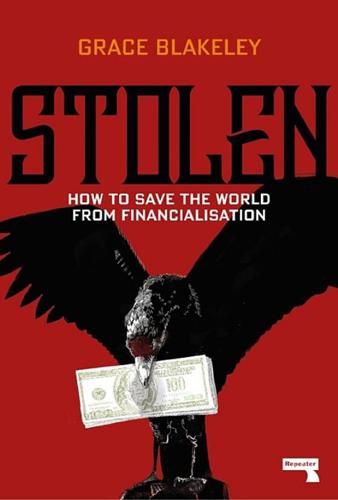
Stolen: How to Save the World From Financialisation
by
Grace Blakeley
Published 9 Sep 2019
But the second oil price spike — which came three years after the UK had sought an emergency loan from the International Monetary Fund — was the nail in the coffin of the social contract. In 1979, with inflation spiralling once again, the unions pushed for a return to free collective bargaining. 1979 was the coldest winter since 1962, and the combination of industrial action, economic stagnation, and energy shortages led to its being termed the “Winter of Discontent”. A sense of crisis hung in the air. In January 1979, Prime Minister James Callaghan was at a summit in Guadeloupe and was asked by a journalist about “the mounting chaos in the country”. He responded that he didn’t think others would agree with the journalist’s assessment that the country was in chaos.
…
Even if they weren’t particularly keen on privatisation, people were sick to death of the constant disruption associated with industrial disputes, with the high levels of inflation and unemployment, and with the state’s apparent inability to deal with any of these issues. Many people voted for Thatcher in 1979 because she appeared to be one of the few politicians who was able to make sense of what was going on and provide workable solutions. Even if you didn’t like the Thatcherite agenda, after the Winter of Discontent you might have thought it was worth a try. Milton Friedman — one of the founders of the Mont Pelerin Society — knew this better than anyone. Looking back on the neoliberal victories of the 1980s, he wrote: Only a crisis — actual or perceived — produces real change. When that crisis occurs, the actions that are taken depend on the ideas that are lying around.
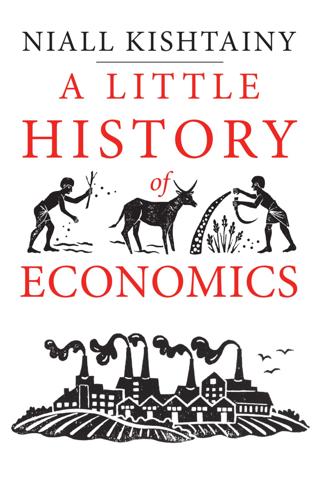
A Little History of Economics
by
Niall Kishtainy
Published 15 Jan 2017
CHAPTER 29 Money Illusion During the winter of 1978–79, Britain was covered in unusually thick snow and ice – and was experiencing a blizzard of strikes by workers. In Liverpool, the dead were turned away from cemeteries when the gravediggers threw down their shovels. In other places, supermarket shelves were bare because lorry drivers refused to drive. Newspaper headlines warned of economic ruin. The miserable months became known as the ‘winter of discontent’ and have often been looked back on as the point at which Keynesian economics, dominant since the Second World War, lay down and died. Economic problems were brewing in Britain and America long before the end of the 1970s, though. Keynesian policies had been based on the Phillips curve, which showed that lower unemployment went with higher inflation, and higher unemployment went with lower inflation.
…
The route to that was to enhance the economy’s supply (what its businesses were able to produce), not its demand. Economists thought that if governments removed company taxes and loosened restrictions on markets, businesses would be encouraged to produce more and employ more workers. These ideas became known as ‘supply-side economics’. And in the decades following the winter of discontent, these were the sorts of things that governments tried to do. CHAPTER 30 Future Gazing In life you have to make guesses all the time about what’s going to happen. You know that it takes twenty minutes to get to town, so if you need to be there at 9.00 a.m., tomorrow you’ll be at the bus stop at 8.40 a.m.
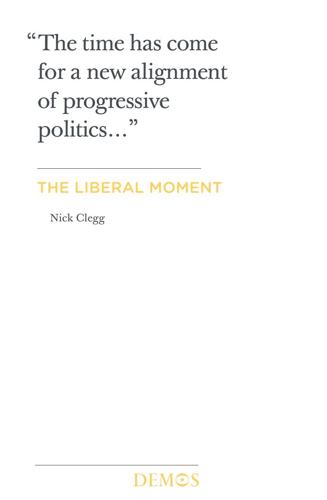
The Liberal Moment
by
Nick Clegg
and
Demos (organization : London, England)
Published 12 Nov 2009
In a very real sense, Liberals vacated much of their own heritage; the Labour Party was very happy to claim it.13 29 3 The second switch Since the 1920s flip, there have been a few, rare, opportunities for real change in British politics: moments in which the establishment has been extremely vulnerable. From the instability prompted by the Second World War to the turmoil of the Winter of Discontent, events have put pressure on governments that seemed able to break them completely. And in more recent times, changes within politics itself have, occasionally, seemed likely to break open the duopoly of British politics. The first time this happened was in the early 80s, when the Alliance of the SDP and Liberal parties came tantalisingly close to breaking the mould of British politics, winning support in local government across the country and polling almost as many votes as Labour in the General Election.
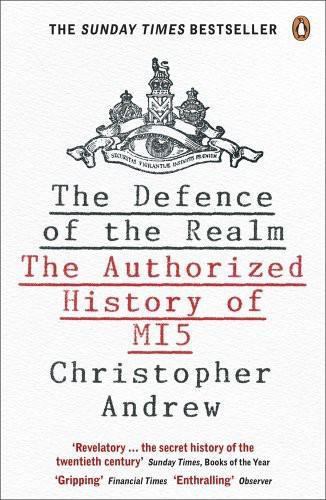
The Defence of the Realm
by
Christopher Andrew
Published 2 Aug 2010
Ramelson himself has frequently expressed doubts about his political judgement.’66 The CPGB leadership was reported to be worried that the ‘wages struggle’ against the 5 per cent ceiling on pay rises was insufficiently political (in other words, not adequately focused on attacking the Callaghan government) and that, while the Party maintained ‘continued strength of influence at senior levels among trade union officials’, it was losing ground to the Trotskyists on the shop floor.67 It was also dismayed at the end of 1978 by the extent of Trotskyist influence on the national executive committee of the Civil and Public Service Association (CPSA).68 As the industrial disruption of the Winter of Discontent proceeded, the CPGB mood brightened. A Box 500 report on 29 January described the Party as ‘increasingly enthusiastic about the effects of the public services dispute which it believes could be a significant factor in bringing about opportunities for its political advance’.69 Box 500 reports made clear, however, that the Winter of Discontent was not the result of either a Communist or a Trotskyist masterplan: Trotskyist groups are finding difficulty in keeping pace with events and in some places are being told by Party officials to concentrate their attention entirely on selling their newspapers.
…
Though the National Union of Public Employees (NUPE) had ‘in recent years become notably militant’, its executive council of twenty-six contained only one Communist sympathizer. The Confederation of Health Service Employees (COHSE) had ‘no subversives at executive or full time national official level’.70 The Winter of Discontent was followed by a private ‘acknowledgement by the Communist Party that it has in recent years lost much of its industrial influence at the shop-floor level and that it needs to revitalise its organisation of workplace branches’. The leading casualty of the Winter of Discontent was James Callaghan. ‘The belief that he enjoyed a unique relationship with the unions, and was a supremely effective agent of industrial partnership, collapsed.’71 Because the Security Service collected intelligence only on the comparatively minor ‘subversive’ influences, its reports did not cover most of the industrial disruption which led Labour to defeat at the polls and were of only secondary importance to the ministers responsible for dealing with the Winter of Discontent.
…
The fact that not a single EKP was successfully attacked probably owed less to improved protective security than to PIRA’s failure to identify their continued vulnerability. 6 The Callaghan Government and Subversion Though the Callaghan government ended in, and is nowadays chiefly remembered for, the strikes of its final ‘Winter of Discontent’, it began with a period of unprecedented industrial peace. Its first year saw the lowest number of industrial disputes so far recorded in the twentieth century. Callaghan was (and still remains) the only trade union official to become post-war Labour leader. As prime minister, ‘He was no intellectual, he appeared avuncular to the point of maddening complacency, and behind the scenes he was a fixer and a bit of a bully; to the average trade union official he was almost as good as one of their own.’1 In the summer of 1976 the TUC was persuaded – reluctantly – to extend what had been a virtual wage-freeze policy by agreeing to a limit of 5 per cent for wage increases over the next twelve months.
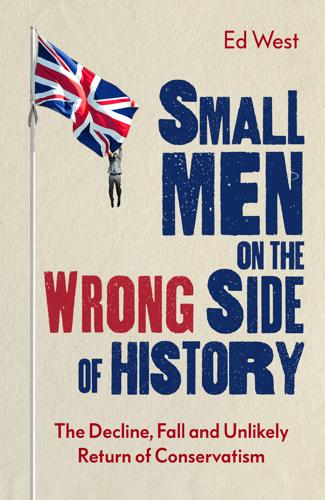
Small Men on the Wrong Side of History: The Decline, Fall and Unlikely Return of Conservatism
by
Ed West
Published 19 Mar 2020
That year Britain had to borrow $3.9 billion from the International Monetary Fund, the biggest loan to any industrialised country, ‘cap in hand’ as Tory partisans liked to describe it. And then there were the endless strikes by angry men in donkey jackets, culminating with the Winter of Discontent of 1978–9, arguably the worst social disruption since the early Victorian period. Although Conservatives aren’t good at capturing the past, the Winter of Discontent stuck in the consciousness; certainly this must have all soaked into my mind, along with the other tenets of orthodox Chicago school economics. And yet even during this period my parents saw the powers that be, and the organs of the state, as essentially Leftist.
…
R. 353 Tolstoy, Leo 63 Tombs, Robert 222 Tories (original movement) 50–1, 53 Tory Boy (Harry Enfield character) 208, 267 Tory government 1, 197, 285 see also Conservative government Tory MPs 24, 86, 236, 355 Tory party 3, 5, 8, 11, 64, 79, 159, 202, 212, 225, 235–6, 266–7, 272–3, 283 Tory party conferences 102, 235–6, 308 totalitarianism 144, 229, 257 Toynbee, Arnold 173 Toynbee, Philip 42 Toynbee, Polly 232, 273 trade offs 73 trans debate 201, 223 trans-rights 328–9 tribalism 70–1, 305 Tribune (magazine) 234 triggering 323 Tronchin, Théodore 39 Troy 28–9 Trudeau, Justin 227 Trump, Donald 4, 12, 17, 24, 27, 109, 186, 229, 241, 243, 247, 249, 294, 297, 310, 313, 329, 337–9, 341, 347, 358–60, 363, 365–6 Turing, Alan 275 Tuschman, Avi 118 twin studies 139 Twitter 182, 186, 193, 197, 228, 236, 238, 258, 272, 296–7, 311, 329, 353, 355, 359, 367, 369, 372 two-party system, shifting axis 5 Tyler, Wat 46 Tynan, Kenneth 188 Tyson, Neil deGrasse 215 UK Independence Party (UKIP) 192, 207, 238, 305, 317, 322 underclasses 342, 367 Unitarians 56, 59, 61, 64–5 United Nations (UN) 359 United Presbyterian Church 116 United States 5, 7, 10, 21–2, 51, 58, 63–4, 73, 93, 111–12, 115, 131, 153–5, 176, 178, 183, 206–7, 228, 246, 270, 275, 295, 309–10, 312, 313, 319, 321, 323–4, 328–9, 346–7, 358, 360, 363, 366, 371 and the American Revolution 55, 280–1 and Christianity 216 and civil rights movement 84, 89, 105 and crime 84–5 and immigration 194–5 independence 53, 55, 305 and marriage 251, 252–3 polarisation 295, 296–7, 300–2, 311 and Protestantism 145 Soviet–American conflict 31 universalism 72 universities 7–8, 133, 137–8, 145–6, 319–26 ‘Canon Wars’ 154 University College London 145 upper classes 342 upper-middle classes 12, 187, 214, 290, 310–11 urbanisation 139, 140, 287 Ustinov, Peter 47 utilitarianism 78–9, 218, 224 Utopianism 91–100 V–1 rockets 47 Vaughan, Cardinal 42 Vendée 228 Vergniaud, Pierre-Victurnien 60 Vietnam War 146, 158, 180, 314 Virgil, Aeneid 28–9 Virginia 55 virginity 127 Viz (comic magazine) 86, 169, 170 vloggers 339 Voegelin, Eric 229 Voltaire 90, 197 von Krafft-Ebing, Richard 105–6 Vox (magazine) 38, 325 Wagner, Alex 366 Wallace, David Foster 312 Walter, Natasha 26 War on Terror 190 Wars of Religion 373 Washing Post (newspaper) 310 Watson, Paul Joseph 340 Watson Test of rationality 224 Weather Underground 236 Webb, Beatrice 80, 81 Webb, Sidney 80, 81 Weinstein scandal 358 welfare state 164–5, 175, 204 West, decline of the 90–1 Whigs 50–6, 63–5, 75, 77, 81, 109 Whitehouse, Mary 165–6, 193, 252 whites 4, 127, 131 Whitman, Walt 102 Wikipedia 322 Wilberforce, Samuel 148 Wilkinson, Will 295, 306 William III 52 Williams, Zoe 331 Wilson, E. O. 147 Wilson, Harold 129, 166 Wilson, James Q. 69 Wilson, Woodrow 224 Windrush scandal 270 Winter of Discontent 79–80 Wojack 344 Woke movement 329–33, 353 Wolfe, Tom 146 women 199 and Christianity 6 Left-wing tendency 6 suffrage 176 Victorian 176 Women’s March 241 Wordsworth, William 46, 55, 61 working classes 5, 9, 108–9 conditions of 75–8, 173–5 and Labour 18 and Marx 93 World Cup 357 World of Warcraft (game) 347 Wright, Tom 231 Wycliffe, John 326 xenophobia 117, 354–5 xkcd (webcomic) 288 Yale 145, 146 Law School 304 Yancey, George 320–1 Yanomamö tribe 147 Yarvin, Curtis 202–3, 271 Yeltsin, Boris 153 Yiannopoulos, Milo 152 YouGov 238 Young England movement 75–6 Young National Front 44–5 Young Women’s Christian Association (YWCA) 199 youthquake 2 YouTube 339, 348 Yugoslavia 15 yuppies 16 zeitgeist 156 Zionism 20

The Fourth Revolution: The Global Race to Reinvent the State
by
John Micklethwait
and
Adrian Wooldridge
Published 14 May 2014
She listened attentively to Sir Keith Joseph, who played the role of the Right’s “licensed thinker scouting ahead” and introduced her to a stream of radical thinkers, including Hayek and Friedman.26 Most of this radicalism was hidden from the British electorate that voted her into office in 1979, largely in frustration with the Labour government’s ineptitude, especially its inability to control the trade unions during the “winter of discontent” of 1978–79, when strikers almost closed down the country, paralyzing the transport system, picketing hospitals and leaving the dead unburied. But once in power Thatcher revealed her true colors. She curbed government spending, controlled the money supply and abolished exchange controls, all decisive breaks with postwar orthodoxies.
…
AARP, 124 absolutism, 32, 43 academies, 212, 214 Adams, John, 249, 250, 251, 254, 261, 269–70 Adonis, Andrew, 131 affirmative action, 79, 88 Africa, Chinese businesses in, 152 African National Congress, 254 agriculture: in emerging world, 238 subsidies for, 185, 237–38 Agriculture Department, U.S., 108, 237–39 airports, privatization of, 235 Ai Weiwei, 34 Alton Locke (Kingsley), 58 American Federation of State, County and Municipal Employees, 114 American Medical Association, 204 American Revolution, 6–7, 44, 45, 46, 264 Amtrak, 235 Anderson, Chris, 191 Antholis, Bill, 218 Arab League, 253 Arab Spring, 144 Aravind Eye Care System, 203, 204 Archer Daniels Midland, 238 Argentina, economy of, 120 Army, U.S., 182 Arnold, Matthew, 58 Asia: aging population of, 165 economic crisis of 1997 in, 142–43 pensions in, 141–42 in sixteenth and seventeenth centuries, 34–36 Asquith, Herbert, 61 Australia: civil service in, 215 overlapping areas of government responsibility in, 108 “Austrian school,” 83 automobile industry, 189, 190, 191 Bagehot, Walter, 128 Balázs, Étienne, 40 Balcerowicz, Leszek, 96 ballot initiatives, 127 Bangalore, India, 201, 218 Bank of England, 43 Barboza, David, 162 Bartlett, Bruce, 121 Baruch, Bernard, 233 “basic minimum,” 87 Baumol, William, 19, 110, 178–79, 187, 222 Baumol’s disease, 19, 109–11, 174, 178–79, 183, 222 Becker, George, 84 Beijing, 34–35 Belgium, 228 Bell, Daniel, 157 Bentham, Jeremy, 49, 57, 85 Berggruen, Nicolas, 124, 129, 131, 159 Berlin, Isaiah, 48, 226, 228 Berlin Wall, 253 Berlusconi, Silvio, 12, 128, 196, 227 Bertelsmann Foundation, 143 Best Party, 261 Bevan, Aneurin, 75 Beveridge, William, 74, 75, 78, 90, 97, 245 Beveridge Report, 74 bike sharing, 216–17, 219 Bildt, Carl, 175 Bill of Rights, English (1689), 43 Bill of Rights, U.S., 226, 250 Bismarck, Otto von, 6, 7, 60, 174–75 Blair, Tony, 96, 194, 262 on small government, 95, 211–14 Bleak House (Dickens), 50 Bloom, Nick, 191 Bloomberg, Michael, 196–97, 217 Bloomberg Businessweek, 129–30 Boao Forum for Asia, 153 Bodin, Jean, 29 Boer War (1899–1902), 61 Böhlmark, Anders, 176 Bolsa Família, 206 Booth, Charles, 66 Boston, Mass., 210 Boston Consulting Group, 172 Boston Tea Party, 240 Bourbon Restoration (1814), 46 Bo Xilai, 154, 218 Brandeis, Louis, 263 Brazil, 13, 18, 96, 153 entitlement reform in, 17, 206 breakaway nations, 260 Bright, John, 56 British Airways, 94 British Gas, 94 British Medical Association, 114 British Rail, 213 British Telecom, 94, 234 Brown, George, 134 Brown, Gordon, 99, 130, 215 Brown, Jerry, 10, 91, 106, 119, 125, 219 fiscal reforms of, 118, 129–30 Brown, Pat, 105–6, 124–25 Buchanan, James, 84, 262 Bureau of Corporations, 72 Bureau of Land Management, 236 Bush, George H.W., 95 Bush, George W., 10, 98, 164, 177, 198, 255, 262 business sector: globalization and, 191, 193 innovation in, 194 productivity in, 18–19 reinvention of, 189–92 technology and, 191 Butler, R.A., 75 California, 105–32 ballot initiatives in, 127 Baumol’s disease and, 109–11 constitution of, 107 deficit in, 118–19 education in, 111 as exemplar of Western state failures, 106–7 fiscal reform in, 129–30 old and well-off as primary beneficiaries of public spending in, 122–23 outdated governmental system of, 107–8 pensions in, 113, 115, 119–20, 130 political polarization in, 124–25 population of, 108 prison system in, 112–13 proliferation of regulation in, 116 Proposition 13 in, 91, 92, 107 public contempt for government in, 106, 112 public-sector unions in, 112–15, 120 special interest groups in, 112–15 taxes in, 116, 129 unfunded liabilities in, 119, 129, 130 California Board of Barbering and Cosmetology, 116 California Correctional Peace Officers Association (CCPOA), 112–13 California Environmental Quality Act (1970), 117 California Public Policy Center, 119 California Teachers Association, 113 Cameron, David, 130–31, 158, 199, 215 Canada, 199 Capio, 171–72 capitalism, 50–54 democracy’s presumed link to, 261–62 inequality and, 262–63 state, see state capitalism as supposedly self-correcting, 70 Capitalism and Freedom (Friedman), 86 Cardoso, Fernando Henrique, 96 Carlino, Gerald, 218 Carlyle, Thomas, 44, 57 Carney, Mark, 215 Carswell, Douglas, 260 Carter, Jimmy, 198 Carville, James, 97 Castiglione, Baldassare, 33 Catholics, 38 Cato Institute, 238 Cavendish, William, 31, 40 Cavendish family, 31, 47 Cawley, James, 204 CCTV cameras, 182, 226 Center on Budget and Policy Priorities, 124 Central Party School, 150, 156 Central Provident Fund, 140 Centre for Policy Studies, 92 centrism, 95, 98 Chamberlain, Joseph, 66 Charles I, King of England, 31 Charles II, King of England, 32, 38, 42 Charlie and the Chocolate Factory (Dahl), 228 charter schools, 212, 214, 215 Chartists, 51, 58 checks and balances system, 226, 250, 255–56, 265 Chidambaram, Palaniappan, 96 Child, Josiah, 39 Childs, Marquis, 169 China, Imperial, 37 bureaucracy of, 37, 40–41 innovation disdained by, 41 in seventeenth century, 34–36 trade with West rejected by, 41 China, People’s Republic of: aging population of, 164, 183 Asian-state model in, 136–37, 145, 149, 152, 156 Communist ideology in, 63, 145 corruption in, 4, 18, 148, 149, 186 Cultural Revolution in, 156 economy of, 3, 146, 163 education in, 147, 148–49, 164 efficiency of government in, 146, 153, 159 elitism in, 161–62 governmental changeover in, 159 health care in, 164 health insurance in, 141, 156 India contrasted with, 146, 153 lack of public confidence in, 13 leadership training in, 105 local government in, 160–61, 217–18 long-term outlook of, 159 mandarin tradition of, 138, 156, 157 meritocracy in, 156–63, 164, 254 pensions in, 156, 183 Singapore as model for, 145 slowing of economic growth in, 164 social-service NGOs in, 158 state capitalism in, 64, 149–56, 234 state-owned enterprises (SOEs) in, 150–52, 154–55 urban population increase in, 149 U.S. contrasted with, 147, 153 Western democracy seen as inefficient by, 145 China Executive Leadership Academy in Pudong (CELAP), 1–5, 18, 145, 153, 156 China Mobile, 151 China Youth Daily, 148 Chongqing, China, 218 Christensen, Clayton, 203 chronic diseases, 183, 200, 204 Internet and, 209 Chua, Amy, 143 Churchill, Winston, 68, 75, 247 cities: population growth in, 149, 218 working relationships between, 218–19 Citizens United decision, 240 Civil War, English, 6, 31, 38, 43 Clark, Joseph, 77 class struggle, 62–63 Clinton, Bill, 10, 95, 96–97, 98, 142, 217 Clinton, Hillary, 162 Coase, Ronald, 84, 229 Cobbett, William, 49 Cobden, Richard, 56 Code for America, 216 Coggan, Philip, 263 Cohen, Jared, 210–11 Cohen, Leonard, 185 cold war, 76, 252 Colloquies on Society (Southey), 224–25 commerce, nation-state and, 33 Committee on Social Thought, 83 Common Sense (Paine), 44 Communist Party, Chinese, 63, 145, 153 elitism in, 161–62 as meritocracy, 156–57 Organization Department of, 151 Communists, communism, 7, 8, 63–64, 71, 77, 134, 137, 145, 225 successes of, 90–91, 252 compassion, 61 “compassionate conservatism,” 98 competitive advantage, 189 Condorcet, Nicolas de, 222 Confederation of Medical Associations in Asia and Oceania, 204 Congo, 22 Congress, U.S., 16, 100, 228 approval ratings of, 11 dysfunction in, 256 lobbies and, 238–40, 257 Congressional Budget Office, 15, 242 Congress Party, India, 162 Conservative Party, British (Tories), 11, 69, 75 conservatives, conservatism, 10 “compassionate,” 98 see also Right Constitution, U.S., 108, 109, 256 Fourteenth Amendment of, 120 Constitution of Liberty, The (Hayek), 92 consumer choice, 191 consumption taxes, 123–24 Corn Laws, 50, 238, 240 corruption, 185–86 crime, Western state and, 181–82 Crimean War, 65 Croly, Herbert, 71 Cromwell, Oliver, 32 Cromwell, Thomas, 6, 37 crony capitalism, 72, 112, 155, 234, 237–38, 246, 269 Cultural Revolution, 156 Czech Republic, 252 Darwin, Charles, 59 Das, Gurcharan, 13 Davies, Mervyn, 215 decentralization, 216–19 defense, spending on, 16 Defense Department, U.S., 20 deficits, deficit spending, 14, 100, 118–22, 177, 231–32, 241 unfunded liabilities and, 119, 232 democracy: in Asian-state model, 17 big government as threat to, 251, 264–69 as central tenet of Western state, 5, 8, 16–17, 22–23, 136, 141, 221 Founding Fathers and, 226, 250, 265 Fourth Revolution and, 249–70 globalization and, 262 imperfections of, 17, 127–28, 141, 143–44, 145, 226–27, 247–48, 251, 269 income inequality and, 263 in India, 136, 146 individual freedom as threatened by, 226, 250–51 nation-states and, 259, 262 presumed link to capitalism of, 261–62 as presumed universal aspiration, 261–62 as rooted in culture, 262 scarcity and, 247–48 self-interest and, 250, 260 short-term vs. long-term benefits in, 260–61, 264 special-interest groups and, 16–17, 111–15, 247, 251 strengths of, 263 twentieth-century triumph of, 252 twenty-first-century failures of, 252–61 uneven history of, 249–50 welfare state as threat to, 22, 142 Democracy in America (Tocqueville), 252 Democracy in Europe (Siedentop), 251 Democratic Party, U.S., 97, 240 spending curb approved by, 12 spending cuts opposed in, 100, 255 Democratic Review, 55 Deng Xiaoping, 142 Singapore as inspiration to, 145 Denmark, 22, 210 disability insurance in, 244 “flexicurity” system in, 173, 176 innovation in, 220 1980s financial crisis in, 176 reinvention of welfare state in, 173–74 Depression, Great, 69–70, 85 Detroit, Mich., 218–19 bankruptcy of, 14, 119 Detter, Dag, 236 Dicey, A.V., 57 Dickens, Charles, 50, 57–58 Dirksen, Everett, 192–93 disability-insurance reform, 244 Discovery Group, 211 discretionary spending, 195 diversity, 214–16 DNA databases, 182 Dodd-Frank Act (2010), 117, 239 Doncaster Prison, 214 Downey, Alan, 177 Drucker, Peter, 198 Dubai, 144, 217 Dukakis, Michael, 95 Dundase family, 49–50 East India Company, 36, 40, 47, 48, 50, 56, 150, 240 Eastman Kodak, 190–91 École Nationale d’Administration, 194 economic-freedom index, 174 Economist, 86, 97 Edison, Thomas, 179 education, 7, 9, 16, 48, 58, 197 charter schools in, 212, 214, 215 in China, 147, 148–49, 164 cost/outcome disparities in, 194–95 declining quality of, 111 diverse models for, 214–15 government domination of, 10 international rankings of, 19, 148, 206–7 preschool, 123 reform of, 58–59, 212 in Sweden, 171, 176–77 technology and, 179–80 voucher systems for, 171, 176–77, 220 in welfare state, 68, 69 Education Act (British, 1944), 75 Egypt, 155 failure of democracy in, 253, 262 Mubarak regime overthrown in, 144, 253 Eisenhower, Dwight, 77 elections, U.S., cost of, 257 electrocardiogram (ECG) machines, 205 elitism, 135, 136, 138–39 in Chinese Communist Party, 161–62 in U.S., 162 welfare state and, 77–78 Emanuel, Rahm, 216 emerging world: agriculture in, 238 as failing to grasp technological change, 18 innovation in, 17 lack of public confidence in, 13 local government in, 217 need for reform in, 14 urban population shift in, 218 “End of History, The” (Fukuyama), 262 Energetically Autonomous Tactical Robot (EATR), 182 Enlightenment, 42 entitlement reform, 95, 217, 234, 241–46 beneficiaries’ responsibilities and, 245 conditionality in, 17, 206, 244 disability insurance and, 244 globalization and, 245 information revolution and, 245 in Latin America, 17, 206, 244 means testing and, 243, 245 transparency and, 244–45 entitlements, 9, 10, 15, 16, 79, 100, 127, 141, 222, 228 aging population and, 124, 183–84, 232, 241–42 middle class and, 11, 17 pensions as, 79, 184, 243 as unfunded liabilities, 245–46, 264, 265 universal benefits in, 124, 141, 243–44 equality: capitalism and, 262–63 liberal state and, 69 of opportunity vs. result, 79, 228 sexual, 169 welfare state and, 68–69, 74, 79, 222 Western state and, 221 Equality (Tawney), 69 Erdogan, Recep Tayyip, 13, 254 Estonia, 121, 210 Euclid, 31, 33 eugenics, 67–68, 78, 169 euro, 99, 100, 258 euro crisis, 12, 100, 126, 130, 258–59 Europe: age of conquest in, 36–37, 39 compulsory sterilization in, 78 contest for secular supremacy in, 38–39 democracy’s failures in, 258–59 dysfunctional political systems in, 126 economic crisis in, 126 Enlightenment in, 42 government bloat in, 98–99 mercantilist policies in, 40 national consolidation in, 38–39 old-age dependency ratio in, 14–15 postwar era in, 78 public spending in, 99–100 revolutions of 1848 in, 54 technocratic bent in, 76–77, 259 transnational cooperation in, 76 wars of religion in, 34, 38 welfare state in, 75 European Atomic Energy Community, 76 European Central Bank, 258–59 European Coal and Steel Community, 76 European Commission, 254 European Economic Community, 76 European parliament, 258 European Union, 13, 16, 17, 76, 99, 108, 109, 258–59, 260 Extraordinary Black Book, The (Wade), 49 Exxon, 154 Fabians, 8, 21, 67, 72, 73, 96, 134, 169, 220 Facebook, 190–91 Falklands War, 94 Farrell, Diana, 132 fascism, 8, 71, 77, 252 Fatal Conceit: Errors of Socialism, The (Hayek), 134 Federal Communications Commission, 73 Federalist Papers, 5, 265 Federal Register, 117 Ferdinand II, King of Aragon, 37 filibusters, 256 financial crisis of 2007–8, 100, 164, 263 financial-services industry, 239 Finer, Samuel, 27, 276 Finland, 210 innovation in, 220 1990s financial crisis in, 176 fiscal crisis, as incentive for change, 198 Fisher, Antony, 81–82, 90, 92, 280 “flexicurity,” 173, 176 Ford, Henry, 189, 191, 201 fossil fuels, government subsidies for, 239 Foster, William, 58 Founding Fathers, 108 democracy and, 226, 250, 265 liberal state and, 44–45, 222 Fourteenth Amendment, 120 Fourth Revolution, 5 Asian-state competition as impetus for, 17, 163–64, 247 decentralization and, 216–19 democratic reform and, 249–70 diversity and, 214–16 entitlement reform and, see entitlement reform failure of current model as impetus for, 14–17 freedom and, 247, 248, 268, 270 government efficiency in, 233 ideological foundation of, 21, 28, 221–23, 232 information revolution and, 245, 246–47 infrastructure and, 232 innovation and, 219–20 monetary and fiscal reform in, 266–67 pluralism in, 211–14 as postbureaucratic, 211 pragmatism and, 18–19, 232–33 privatization and, 234–37 security and, 232 small government as principle of, 232, 264–69 subsidy-cutting and, 237–41 technology and, 18, 19–20, 233, 266–67 France, 43, 78 deficit spending in, 14 expanded bureaucracy in, 60 government bloat in, 12 pension age in, 16 public spending in, 75, 99–100 ruling elite of, 194 state capitalism in, 235 Francis I, King of France, 37 Fraser Institute, 174 fraternity, welfare state and, 74, 79 Frederick the Great, King of Prussia, 38 freedom: balance between security and, 230–31 as central tenet of Western state, 8, 23, 46, 68–69, 222, 256 core elements of, 223–24 democracy as threat to, 226, 250–51 diminished concept of, 225–27, 228–29 Fourth Revolution and, 247, 248, 268, 270 Hobbes and, 33 as ideological basis of liberal state, 69, 223–26 Mill and, 47–48, 55, 222, 224, 228, 250, 256, 268 necessary constraints on, 223 welfare state as threat to, 22, 74, 222, 265 see also rights Freedom House, 143, 252 free markets, 49, 59, 142 Friedman as evangelist for, 84, 86 Thatcher and, 93 free trade, 50, 54, 57 Mill’s espousal of, 55 French Revolution, 6, 44, 45–46, 249 Friedman, Milton, 81–87, 89, 93, 106, 128, 171, 280 background of, 82 big government as target of, 82, 84–85, 88 as free-market evangelist, 84, 86 Nobel Prize of, 82, 86, 91 Reagan and, 86 “Road to Hell” lecture of, 84 single currency opposed by, 99 Thatcher-Reagan revolution and, 8, 28, 97, 100 Friedman, Thomas, 163 Friedrich, Carl, 265 Fukuyama, Francis, 142, 143, 256, 262 Future of Freedom, The (Zakaria), 143 G20 countries, 15 Galbraith, John Kenneth, 85, 86 Galtieri, Leopoldo, 94 Galton, Francis, 68 Gardels, Nathan, 124 Gaskell, Elizabeth, 57 Gates, Bill, 97 Gazprom, 152, 153, 154 Geely, 150 General Electric (GE), 205, 243 General Motors (GM), 189, 190, 191, 233 General Theory of Employment, Interest and Money, The (Keynes), 70 Geometry (Euclid), 31 George III, King of England, 11, 41 Germany, Federal Republic of (West Germany), 75, 78, 232, 265 Germany, Imperial, 6, 60–61 Germany, Nazi, 71, 232 Germany, unified, 12, 22, 173, 186, 212 gerrymandering, 13, 106, 113, 125, 256–57, 264, 267 see also rotten boroughs Gillray, James, 227 Gladstone, William, 7 economizing by, 51–52, 224 small government as principle of, 51–52, 60 tax policy of, 51 globalization, 10, 191, 193 democracy and, 262 entitlement reform and, 245 government and, 10, 96, 200–207 health care and, 200–201 national determination and, 259–60, 262 Glorious Revolution (1688), 43 GOATs (Government of All the Talents), 215 Godolphin, Sidney, 31 Golden Dawn party, 259 Goldman Sachs, 120 Goldwater, Barry, 80, 86 Google, 189–90, 191, 233 Gore, Al, 95, 131, 198 government: anti-innovation bias of, 194–95, 212, 219 bloat in, 9–11, 18–19, 89–90, 98, 177, 222–23, 227, 229–30, 231, 233 centralization bias of, 192–93, 212, 216 challenges to reform in, 196–98 coercive power of, 198 efficiency of, 18–21, 37, 89, 187, 198–99, 213, 233, 247, 255 entrenched workforce of, 193–94 globalization and, 200–207 in-house bias of, 192, 212 local, 216–19, 267 public contempt for, 106, 112, 227–28, 230, 233, 251, 261 sunset clauses and, 118, 246, 266 technology and, 200, 207–11 uniformity bias of, 193–94, 212, 214 volunteerism and, 216 Government Accountability Office, 235 Grace Commission, 198 Gray, Vincent, 210 Great Britain: asylum seekers in, 54 as capitalist state, 50–54 commercial empire of, 39–40 deficit of, 177 education reform in, 58–59, 79, 212, 214–15 falling crime rate in, 181 fiscal reform in, 130–31 government bloat in, 89–90 health-care spending in, 90 landed artistocracy of, 48, 49 liberal revolution in, 46 low public confidence in, 11 national pride in, 61–62 patronage vs. meritocracy in, 50, 52–53, 222 postwar era in, 78 power of Anglican Church in, 48 public spending in, 9, 75 wars of, 6 “winter of discontent” in, 93 Great Depression, 69–70, 85 Great Exhibition of 1851, 54 Great Society, 77, 192 Great Western Railway, 65 Greece, 16 economy of, 120, 259 public-sector employees in, 115 public spending in, 99 Green, T.H., 61 Green River Formation, 236 Grenville family, 49–50 Grillo, Beppe, 12, 227 gross domestic product (GDP), unreliability of, 121 Grote, George, 54 Guangdong, China, 217 Gunpowder Plot (1605), 31 Hagel, Chuck, 256 Hall, Joseph, 35 Halsey, A.H., 88 Hamilton, Alexander, 5, 150 Hamilton, James, 120 happiness, right to, 48, 49 Hard Times (Dickens), 58 Havel, Václav, 252 Hayek, Friedrich, 10, 83, 85–86, 92, 93, 134, 170 Health and Social Security Department, British, 89 health care, 7, 9, 90, 98, 213 aging population and, 15, 183, 242 in China, 164 cost of, 110, 121, 205, 242–43 cost/outcome disparities in, 195 globalization and, 200–201 government domination of, 10 in India, 17, 18, 200–206 labor productivity in, 200 mass production in, 201–3 Obamacare and, 20, 98, 117, 199, 208, 217 role of doctors in, 203–5, 243 single-payer systems in, 205, 233, 243 special interest groups and, 200 in Sweden, 171–73 technology and, 183, 208–9 healthcare.gov, 199 health insurance, 141 health registries, 172, 183, 209 Heath, Edward, 92–93 Hegel, G.W.F., 45, 60–61 71 Helsinki, 220 Heritage Foundation, 92 Hewlett, Bill, 105 Higgins, David, 215 Hilton, Steve, 132 History of the Peloponnesian War (Thucydides), 250 Hitler, Adolf, 71 Hobbes, Thomas, 6, 8, 9, 21, 27–28, 29, 40, 44, 63, 135–36, 181, 219, 268 background of, 30–31 as controversial thinker, 31–32 on human nature, 29–30, 44–45 individual liberty and, 33 as materialist, 33 as royalist, 6, 18, 31–32 social contract and, 32, 34, 42, 222 Hogarth, William, 227 Hollande, François, 12, 16, 153, 184, 194 Holocaust, 78 Homestead Act (U.S., 1862), 62 House of Cards (TV show), 227 House of Commons, 127 House of Representatives, U.S., 97, 127 Howard, Philip, 118, 132, 195 Hu Jintao, 2 Huldai, Ron, 216 Hume, David, 43 Hungary, 254 Huntington, Samuel, 41–42 Hurun Report, 161 Iceland, 261 India, 8, 35, 36 China contrasted with, 146, 153 democracy in, 136, 146 economic stagnation in, 147 education in, 147 health care in, 17, 18, 200–206 infant mortality rate in, 201 lack of public confidence in, 13 local government in, 217–18 nepotism in, 162–63 Thatcherite reform in, 96 as weak state, 37 Indonesia, 142–43 health insurance in, 141 industry, landed aristocracy as opponent of, 48 Industry and Trade (Marshall), 233 information, access to, 210–11, 214 information revolution, 245, 246–47 information technology (IT), 18, 19–20 infrastructure: Fourth Revolution and, 232 spending on, 122, 232 innovation, 219–20 in business sector, 194 government bias against, 194–95, 212, 219 nation-state and, 37, 39 Institute for Energy Research, 236 Institute of Economic Affairs, 82, 92 Institute of Medicine, 204 Institute of Racial Biology, 78 interest groups, 16–17, 90, 111–15 Interior Department, U.S., 236 International Monetary Fund (IMF), 15, 76, 90 Asian financial crisis and, 142–43 Internet, 191, 260 health care and, 208–9 self-help and, 209 Iran, China and, 152 Iraq, 253 Iraq War, 143, 253 Ireland, 38 public spending in, 99–100 Isabella I, Queen of Castile, 37 Islamic world: antiscientific attitudes in, 41 in sixteenth and seventeenth centuries, 35 Istanbul, 35 Italy, 196, 259 pension reform in, 130 politicians’ pay and benefits in, 115 public spending in, 99–100 voter apathy in, 12 It’s Even Worse Than It Looks (Mann and Ornstein), 125–26, 227 Jackson, Andrew, 55 Jacques, Martin, 163 Jagger, Mick, 90 James I, King of England, 31 James II, King of England, 43 Japan, 15, 17, 36 Jarvis, Howard, 91 Jay, Douglas, 77 Jiang Jiemin, 154 Jiang Zemin, 142 Johnson, Boris, 216–17 Johnson, Lyndon, 77, 80, 87 Joseph, Keith, 92, 93 Juncker, Jean-Claude, 128 Kamarck, Elaine, 131–32 Kangxi, Emperor of China, 40 Kansas, 130 Kant, Immanuel, 224 Kaplan, Robert, 144 Kapoor, Anish, 34 Kennedy, Joseph, 73 Kentucky Fried Chicken, 185 Kerry, John, 96 Keynes, John Maynard, 22, 69–70, 76, 97 pragmatism of, 70–71 Keynesianism, 71, 77, 83, 95 counterrevolution against, 82–84 Khan, Salman, 180 Khan Academy, 180 King, Martin Luther, Jr., 79 Kingsley, Charles, 58 Kirk, Russell, 85 Kissinger, Henry, 133, 136 Kleiner, Morris, 118 Knight, Frank, 84 Knowledge Is Power Program (KIPP), 215 Kocher, Robert, 200 Kotlikoff, Laurence J., 120 Kristol, Irving, 87 Kroc, Ray, 185 Labour Party, British, 68, 69, 70, 77, 93, 94–95, 114 laissez-faire economics, 56, 57, 61, 65–66, 70, 71 Laski, Harold, 68, 134 Latin America: economies of, 8 entitlement reform in, 17, 206, 244 Lazzarini, Sergio, 153 Lee Hsien Loong, 135, 138 Lee Kuan Yew, 4, 17, 53, 133–34, 137, 139–41, 143, 144, 145, 147, 156, 170, 183, 244 authoritarianism of, 137, 138 small-government ideology of, 140, 165 Left, 62, 73, 88, 183 government bloat and, 10–11, 98 government efficiency and, 20, 187, 213 and growth of big government, 10, 98, 131, 175, 185, 228, 230, 231 subsidy-cutting and, 234, 237–38 Lehman Brothers, 14 Lenovo, 150 Le Pen, Marine, 259 Le Roy, Louis, 276 Leviathan, 10 Leviathan (Hobbes), 29, 32, 33, 34, 42 Leviathan, Monumenta 2011 (Kapoor), 34 Liberal Party, British, 68, 70 liberals, liberalism: and debate over size of government, 48, 49, 232 freedom as core tenet of, 69, 223–26, 232 right to happiness as tenet of, 48, 49 role of state as seen by, 21–22, 222–23, 226, 232 see also Left; liberal state liberal state, 6–7, 8, 220, 221 capitalism and, 50–54 competition and, 247 education in, 7, 48, 58–59 equality and, 69 expanded role of government in, 56–62 Founding Fathers and, 44–45, 222 freedom as ideological basis of, 69, 223–26, 232, 268 industrial revolution and, 246–47 meritocracy as principle of, 50, 52–53 protection of rights as primary role of, 45 rights of citizens expanded by, 7, 9, 48, 49, 51 rise of, 27–28, 269 small government as principle of, 48, 49, 51–52, 61, 232 libertarian Right, 82 liberty, see freedom Libya, 253 LifeSpring Hospitals, 202–3 Lincoln, Abraham, 62, 92 Lindahl, Mikael, 176 Lindgren, Astrid, 170 Lisbon, Treaty of (2007), 258 Little Dorrit (Dickens), 50 Liu Xiaobo, 166 Livingston, Ken, 217 Lloyd George, David, 62 lobbies, Congress and, 238–40, 257 Locke, John, 42, 43, 45 social contract and, 42, 222 Logic of Collective Action, The (Olson), 111 London School of Economics, 67, 74 Louis XIV, King of France, 38 Lowe, Robert, 58–59 L.

Time Travelers Never Die
by
Jack McDevitt
Published 10 Sep 2009
He shut off the TV and picked up one of the books he’d brought along. It was Michael Corbett’s Winter of Discontent, which had urged the introduction of lie detectors to presidential debates and IQ tests for candidates. There was no attempt to set a minimum standard, but Corbett’s plan would require that results be placed on the record. Candidates, of course, could decline, but only at their peril. However, no one really knew what the effect might be. Recent studies had shown that a majority of voters would be put off by a candidate with a high IQ. Winter of Discontent was essentially a manual on how to make government more responsive.
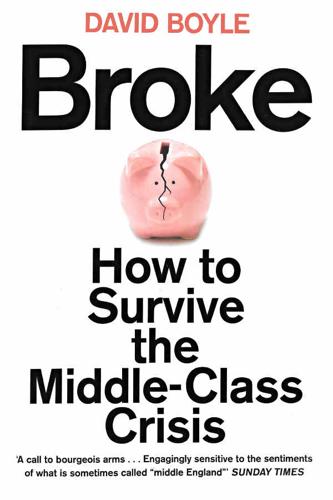
Broke: How to Survive the Middle Class Crisis
by
David Boyle
Published 15 Jan 2014
In Howe’s sitting room week by week were the economic journalist Nigel Lawson, a future Chancellor himself, and Sir Keith Joseph, the former health minister who had performed a kind of mea culpa for his role in the sins of the last Conservative government under Edward Heath, and was now an agonized intellectual figurehead for the new dispensation. There were also a number of other young advisers and thinkers, prominent among whom was the future banker Adam Ridley. It was a heady and exciting time as they met, through the events known to modern history as the ‘Winter of Discontent’, when the trade unions rebelled against their government’s incomes policy and rubbish piled up in the streets. Inflation was running at 10 per cent and rising. But Howe’s group were not just fairly certain they would win, they had the confidence of a big idea behind them — that inflation could be squeezed out of the system by reducing the amount of money in the economy.
…
B., 37 property, investing in, 57, 168–71 public sector salaries, 268–9, 291 Public Service Agreement (PSA) targets, 264 public services, centralization of, 263–7 pubs, closure of, 252 Q ‘quangocracy’, 291 quant funds, 129 Quattrone, Frank, 114–15 Quilter Goodison, 134, 147 R Radley College, 59 railways, coming of, 35, 282 Raphael, Adam, 33 Rawnsley, Andrew, 225 Ray, Paul, 49 Raynsford, Nick, 265 Read, Peter, 217–19 remortgaging, 9–10 rents, 21, 68–9, 306 restrictive covenants, 302 retirement age, 180, 203, 302 Reynolds, Christina, 10–11 RIBA, 77–8 Richardson, Gordon, 62, 72 Richmond, 287 Riddell, Fred, 225 Ridley, Adam, 58–60, 63 Ritalin, 229 Roddick, Anita, 301 Rogers, Richard, 78 Roman Catholics, 39 Romania, 3, 68 Rothschild, Jacob, 146 Rowe & Pitman, 138, 146 Royal Bank of Scotland (RBS), 119, 122, 193 Royal Mail, 194 Royal Navy, 143, 264 Rutlish School, 213–14 S Sainsbury’s, 244, 246, 250 St Francis of Assisi, 59 St Paul’s Cathedral, 289 ‘salariat’, 17 Salomon Brothers, 149, 153 Samuel Montagu, 135, 146 Santander, 118, 122 Saratoga, New York, 253–4 Savage, Mike, 40, 44, 53 Scarborough, 265 Schiff, Andrew, 20 school catchment areas, 212–13 and house prices, 20, 210–11, 221 school fees, 19–20, 204, 212, 239 School for Social Entrepreneurs, 296 school meals, 294–5 school playing fields, 238 schools choice of, 230–4, 288 church schools, 211, 214, 216, 239–40 free schools, 216, 240–1 grammar schools, 36–7, 216–17, 219 grant-maintained schools, 221 investment in, 211–12 and league tables, 224–9, 231–3 237–8, 285, 302 Literacy Hour in, 265 nursery schools, 268–9 rural, 252 secondary moderns, 229, 237 size of, 234–8, 303, 328 special school units, 218 ‘super-selective’, 216 see also education Schwed, Fred, 186 SEAC (Stock Exchange Automated Quotations), 147 Seldon, Anthony, 232 self-employment, 5, 45, 184, 249, 292 self-help, 49 Shaw, George Bernard, 290 Shearlock, Peter, 150 Sheffield, 162 Shepherd, Gillian, 228 Shrewsbury, 252 Sibary, Shona, 9–11, 16 Sieff, Marcus, 243 silver, 278–9 Simmonds, Jane, 271 Sizer, Ted, 237 Skegness, 221 Skidelsky, Lord, 227 skiing, 169 Skinners’ School, 217 Smith, John, 225, 263 social care, 21, 85, 201, 296 software ERP and CRM, 256, 261 report-writing, 231 Somerset Food Links, 296 Sorbonne, 157 Soros, George, 131, 157 South London, 43 Southwark, 225 Spain, 56, 97, 294 Golden Age, 277–81 ‘squeezed middle’ (the term), 22 stamp duty, 149 Standard & Poor’s index, 198 Standard Life, 172 Standing, Guy, 17 Stewart, James, 255 Stiperstones Primary School, 252 Stock Market Crash (1987), 61 stockbrokers, 134, 136–40, 145–8, 150, 162, 247 Stockton, Earl of (Harold Macmillan), 288 Stockwell, Christopher, 27–34, 50 Stott, Martin, 44 student loans, 19, 300 subprime mortgage crisis, 140, 155 suicides, 32 Sunday Telegraph, 36, 60 Sunday Times, 33, 150 Surbiton, 73–4 Sure Start centres, 76 sustainable living, 78–9 Sutton Coldfield, 180 Swiss Cottage, 287 Switzerland, 97, 116, 180, 183 T Tasker, Mary, 234–5, 237 Tatler, 284 tax avoidance, 300 tax credits, 5, 164, 270–1 Taylor, Frederick Winslow, 248, 253–7, 261–3 Tea Party, 273 teaching unions, 224, 227–8 Tebbit, Norman, 149, 181 Tennant, Julian, 34 Tesco, 47, 243, 246, 250–1, 300 Thames Water, 202 Thatcher, Margaret, 1, 3, 36, 67, 70, 99, 109, 176–7, 221–2, 290 and City deregulation, 137–8 and financial reforms, 57–9, 63–4, 72–3 and pension reforms, 180, 183, 190 theatres, 126 Thornton, Clive, 71 ‘Tiger Parents’, 215 time banks, 299 Time Warner, 133 Times, The, 65, 67, 135, 147, 177, 226 Times Educational Supplement, 237, 269 Tokyo, 75, 78, 149 Tough, Paul, 234 Toulouse University, 127, 141 Tower Hamlets, 61 trade unions, 160, 255 transport costs, 18 Travelex, 126 trickle-down economics, 124, 157, 161, 286, 289–91 Trollope, Joanna, 79, 245 Truro, 18, 102 Tufnell Park, 80–1 Tunbridge Wells, 216–17 Turner, Adair, 152, 202 tutoring, 219 Tyco, 117 U UKIP, 273 unemployment, 271–2 Unilever, 194 United States of America and auditing culture, 261 banking, 92, 95–7 education, 215–16, 236, 238 housing developments, 85 inequalities of wealth, 23–4 influence of financial sector, 152 job creation, 249 middle classes, 22–3, 272, 282, 286 New Deal, 153 small-town life, 122–3 subprime lending, 75 universities, 212, 215, 242, 248–9 university fees, 18–19, 270 UnLtd, 296 utility bills, rising, 10–11 see also fuel bills V Valladolid, 277, 280–1 Van Reenen, John, 248 Vickers da Costa, 146 Vinson, Nigel, 179 voluntary organizations, 253, 260 W Waitrose, 242–4, 302, 306 Wakeham, John, 181 Walker, David, 137 Wall Street, deregulation of, 135 Wall Street Crash, 186 Warburg’s, 146 Wass, Sir Douglas, 62 Watt, James, 152 Wellington College, 232, 239 Wells, H. G., 255 Wessex Reinvestment Trust, 296 Westinghouse, 255 Whitelaw, William, 138–9, 183 Willetts, David, 21–2, 195 Williams, Frances, 181 Williams, Leonard, 71 Williams, Raymond, 36 Williams & Glyn’s Bank, 122 Wilson, Ben, 283 Wilson, Harold, 67 Wilton Park, 180 Wiltshire, 18 Winter of Discontent, 58 Winterflood, Brian, 143, 145–6, 148, 150 Woking, 214 Wolf, Martin, 70 Wolfe, Tom, 149 Wolfson College, Oxford, 189 Wolverhampton, 40, 225 Woodhead, Chris, 226–8 Woolley, Paul, 127–9, 131–3, 140–1, 144, 153–4, 156, 159, 247 Woolwich Building Society, 106–8, 110–12, 122 working-class culture, vilification of, 230, 287–8 World Development Movement, 27 WorldCom, 117 Wrigglesworth, John, 113 X Y yachts, 186–7, 197 Yamaichi, 149 Yes, Minister, 177 York University, 140 Young of Dartington, Lord, 67 Z Zingales, Luigi, 157 Acknowledgements I have had a number of huge advantages which helped me write this book.

The Man Who Was Saturday
by
Patrick Bishop
Published 21 Jan 2019
For much of the month the weather had been cold and wet, but lately it had warmed up and in London the trees were in bud. The change of season matched a great political climacteric. Two days before, the Labour administration of James Callaghan had finally stumbled to an end after months of public-service strikes, already notorious as the ‘Winter of Discontent’. In five weeks, a general election would in all probability elect a Conservative government with, for the first time in British history, a woman at its head. When Airey Neave woke up that morning he had every reason to savour the atmosphere of promise and renewal. As the man who had engineered Margaret Thatcher’s accession to the Conservative leadership, he had played a crucial part in great events.
…
Peter, 70 Tebbit, Norman, 72–3, 223 Territorial Army, 26–8, 104–5, 152, 157, 158, 179–80 Terwindt, Beatrix, 122, 188 Thameside primary school, Abingdon, 187 Thatcher, Denis, 7, 186–7, 188, 210 Thatcher, Margaret: at Somerville, 25; early political career, 186; AN’s admiration for, 115, 186–8, 190, 210, 225, 263–4; radical right-wing doctrines of, 160, 188, 264; on AN’s political views, 174; robust advice to AN on criticism, 182; character of, 186, 188, 225, 264; as Secretary of State for Education and Science, 186–8, 191; as visitor at Old Vicarage, 186–8, 190, 210; and social class, 190, 192, 263–4; AN sees as possible leader, 191–2, 200, 209–10, 211; opposes deal with Liberals (February 1974), 196; and leadership issue (1974–5), 203, 210, 211–14, 215–17; decides on leadership campaign (November 1974), 211–12; Pre-Retirement Choice interview, 213; AN runs leadership campaign, 1, 168, 176, 217–25; becomes Tory leader (11 February 1975), 225; appoints Shadow Cabinet, 226; AN heads private office, 227; and Northern Ireland, 234, 236, 243, 264; and fall of Callaghan government, 244; and death of AN, 4, 89, 259, 260; at AN’s funeral, 7; remembers AN on steps of Downing Street (4 May 1979), 260 Thompson, Sir Edward, 173 Thornborough, Company Sergeant Major, 63 Thorpe, Jeremy, 196 Tilney, Hugh, 109 Tone, Wolfe, 239–40 trade unions, 176–7, 178–9, 180–1, 192–4, 195, 200, 244 Tree, David (David Parsons), 21–2 Trollope, Angela, 108 Trollope, Sylvia, 108 Ugandan Asians, 172–3 United Nations High Commissioner for Refugees, 173 Ursel, Count Antoine d’, 115 Usandizaga, Françoise, 117 Vichy regime, 91, 93–4 Volchkov, Alexander Fedorovich, 143 Walker, General Sir Walter, 177 Wardle, Howard ‘Hank’, 57, 77–8, 81 Watkinson, Harold, 161 Weatherill, Bernard, 199, 203, 205, 211 Webb, Richard (husband of Marigold), 164, 166–7, 199, 200 West, Rebecca, 144 West German Ireland Solidarity Committee, 242 Westminster Gardens, Marsham Street, 2, 199–200, 225, 248, 251, 254 Wharton, Ken, 258–9 Whitelaw, William: as leadership contender, 191, 194, 197, 200, 202–3, 209, 210, 216, 218, 225; as Northern Ireland Secretary, 191, 227, 230; Thatcher as nervous of, 263–4 Wigg, George, 157–8 Willey, Harold B., 140 Wilson, Harold, 195, 196, 200, 201, 235 Windham-Wright, Pat, 123 ‘Winter of Discontent’, 1 Wittek, Suzanne, 114 Woollatt, Hugh, 91, 93, 94–5, 96, 99, 100–1, 103–4, 105 Wordsworth, William, ‘She was a Phantom of delight’, 187–8 World in Action (TV programme), 222 Wynne, Greville, 175–6 Younger, George, 226 Yule, Jimmy, 77 Also by Patrick Bishop NON-FICTION THE WINTER WAR (with John Witherow) THE PROVISIONAL IRA (with Eamon Mallie) THE IRISH EMPIRE FAMOUS VICTORY FIGHTER BOYS: SAVING BRITAIN 1940 BOMBER BOYS: FIGHTING BACK 1940–1945 3 PARA BATTLE OF BRITAIN GROUND TRUTH – 3 PARA: RETURN TO AFGHANISTAN TARGET TIRPITZ WINGS THE RECKONING AIR FORCE BLUE NOVELS A GOOD WAR FOLLOW ME HOME About the Author Patrick Bishop is one of Britain’s leading military historians, the author of many critically acclaimed and bestselling books, including Fighter Boys, Bomber Boys, 3 Para and Air Force Blue.
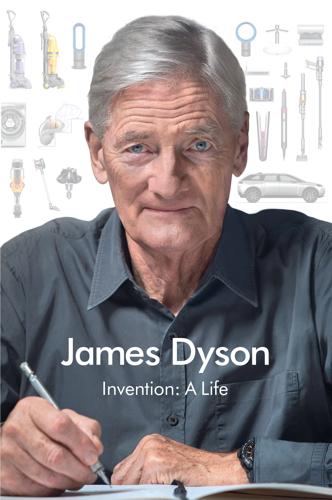
Invention: A Life
by
James Dyson
Published 6 Sep 2021
I would, in fact, have no real income, just an escalating overdraft, until the sale five years later of the license of the vacuum cleaner I invented and made for Amway, an American marketing company based in Michigan. As for the British economy, things were not exactly rosy in 1979. The year had begun in the depths of the bitterly cold “Winter of Discontent”—the average temperature for January and February across Britain was below freezing—when truck drivers, EMTs, railway workers, refuse collectors, and even gravediggers went on strike. With the backdrop of IRA bombing campaigns, there was talk of yet another recession. James Callaghan’s Labour government appeared out of touch and out of control.
…
See also Ballbarrow Wheeler, Schuyler 163–64 Whittle, Sir Frank 56–58, 122, 151, 264, 282, 293, 298 Whitworth, Joseph 262 Whitworth Scholarships 262 Wilkinson, Chris 120, 121–22, 125–26, 184, 189, 229, 269, 275–76, 290–91 Wilkinson, Diana 122 WilkinsonEyre 120–21, 211, 230, 276, 279 Williams Racing 221 Williams, David 104 Wilson, Harold 65 Wilson, Jim 10 Wiltshire Engineering Festival 239 Wimbledon School of Art 25 wind turbines 258 Winter of Discontent (1979) 81 Witherow, John 256 WMG (Warwick Manufacturing Group) department at the University of Warwick 274–75 Wolfson, Isaac 109 Wood, Leslie Ashwell 17 Wood, Sir Martin 6 Worboys, Nick 249 Wrong Garden 135, 137–38, 138 Wyatt, James 72, 293 Yes (band) 28 Yom Kippur War (1973) 47–48, 65 Young, Arthur M. 126 Zanussi 89–90, 108 Zorb-It-Up 98, 110 Plate Section Image Credits Roofscape of Malmesbury.

Ye Olde Britain: Best Historical Experiences
by
Lonely Planet Publications
Published 3 Mar 2012
Successful songs like ‘Please, Please Me’ ensure the Beatles become household names in Britain, then America – then the world. 1971 Britain adopts the ‘decimal’ currency (one pound equals 100 pence) and drops the ancient system of one pound equals 20 shillings or 240 pennies, the centuries-old bane of school maths lessons. 1970s Much of the decade is characterised by inflation, inept governments (on the left and right), trade-union disputes, strikes, shortages and blackouts, culminating in the 1978–79 ‘Winter of Discontent’. 1972 In Uganda, East Africa, the dictator Idi Amin expels all people of Asian origin. Many have British passports and migrate to Britain, settling predominantly in London and the cities of the Midlands. 1979 A Conservative government led by Margaret Thatcher wins the national election, a major milestone of Britain’s 20th-century history, ushering in a decade of dramatic political and social change. 1982 Britain is victorious in a war against Argentina over the invasion of the Falkland Islands, leading to a rise in patriotic sentiment. 1990 Thatcher ousted as leader, and the Conservative party enters a period of decline but remains in power thanks to inept Labour opposition. 1997 The general election sees Tony Blair lead ‘New’ Labour to victory in the polls, with a record-breaking parliamentary majority, ending nearly 20 years of Tory rule. 1999 The first National Assembly is elected for Wales, with the members sitting in a new building in Cardiff; Rhodri Morgan becomes First Minister. 1999–2004 Scottish Parliament is convened for the first time on 12 May 1999.

The Ultimate Engineer: The Remarkable Life of NASA's Visionary Leader George M. Low
by
Richard Jurek
Published 2 Dec 2019
Low to Be Deputy Administrator of the National Aeronautics and Space Administration, 6. 10. Hearing on the Nomination of George M. Low to Be Deputy Administrator of the National Aeronautics and Space Administration, 5. 11. Hearing on the Nomination of George M. Low to Be Deputy Administrator of the National Aeronautics and Space Administration, 5. 12. Heppenheimer, “Winter of Discontent.” 13. Logsdon, After Apollo?, 62–63. 14. Logsdon, After Apollo?, 62–63. 15. George Low, Personal Notes, no. 1, 1 January 1970, p. 2. 16. George Low, Personal Notes, no 1, 1 January 1970, p. 2. 17. George Low, interview by John Logsdon, 7 July 1970, NASA History Office. 18.
…
New York: John Wiley and Sons, 1997. Harris, Gordon L. The Kennedy Space Center Story. Merritt Island FL: Public Affairs Office, John F. Kennedy Space Center, NASA, 1974. Harris, Ruth Bates. Harlem Princess: The Story of Harry Delaney’s Daughter. New York: Vantage Press, 1991. Heppenheimer, T. A. “Winter of Discontent.” Chap. 4 in The Space Shuttle Decision. NASA History Series, NASA SP-4221. Washington DC: NASA History Office, 1999. http://space.nss.org/the-space-shuttle-decision-chapter-4/. Jenkins, Dennis R. Space Shuttle: The History of the National Space Transportation System; The First 100 Missions.
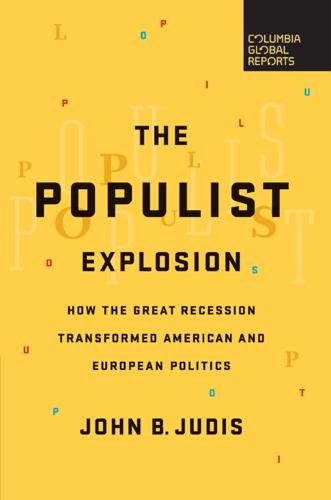
The Populist Explosion: How the Great Recession Transformed American and European Politics
by
John B. Judis
Published 11 Sep 2016
These pitfalls of the old approach became apparent first in Great Britain and France. The European version of neoliberalism arose out of the experience that these two countries faced. In the winter of 1978–79, attempts by Labour Prime Minister James Callaghan to limit wage increases led to a wave of strikes, creating what was called the “winter of discontent.” Callaghan’s failure to halt Britain’s combination of inflation and unemployment led to his defeat in 1979 by Tory Margaret Thatcher. Thatcher had broken with her own party’s commitment to Keynesianism. She resorted to what came to be called a neoliberal strategy. She focused on increasing the “supply side”—corporate rates of profit—rather than the demand side.
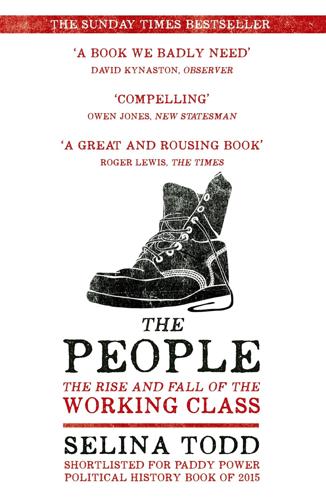
The People: The Rise and Fall of the Working Class, 1910-2010
by
Selina Todd
Published 9 Apr 2014
Rearmament was taking a financial toll on the economy, in a country still reliant on importing 60 per cent of its foods at high prices. Writing in the Guardian five weeks before the election, the journalist Alastair Cooke prophesied that a Conservative victory would be brought about by voters’ fears of a ‘winter of discontent’ characterized by fuel shortages, continued rationing and inflation.51 In fact, polls showed that the shortage of housing was the most important reason why some working-class voters had switched to the Conservatives; the Tories promised to build far more houses in a far quicker time than Bevan had managed.
…
Interview with Alan Watkins by Hilary Young (2007). 49. Interview with Mr N2L, Elizabeth Roberts Archive. 50. Confidential Summary Report on the General Election of 1950, November 1950, General Election Departmental Records, CCO 500/24/1, Conservative Party Archive, Bodleian Library, University of Oxford, p. 41. 51. ‘Tory Victory in a Winter of Discontent’, Manchester Guardian (22 September 1951), p. 6. 52. http://news.bbc.co.uk/onthisday/hi/dates/stories/october/26/newsid_ 3687000/3687425.stm. 53. K.O. Morgan, The People’s Peace (Oxford, 1990), p. 81. 54. MOA: FR 3073 ‘Middle Class – Why?’ (December 1948), p. 27. 55. MOA: FR 2461B ‘Who are the Fuel Wasters?’
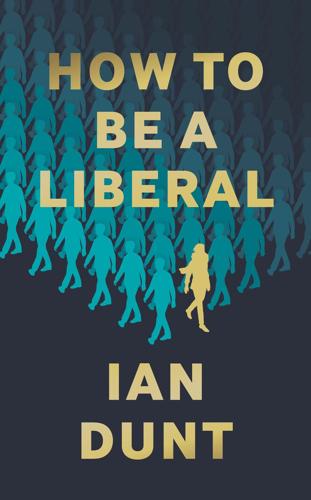
How to Be a Liberal: The Story of Liberalism and the Fight for Its Life
by
Ian Dunt
Published 15 Oct 2020
Once she secured the leadership in 1975, she marched into a party policy meeting, took out a copy of Hayek’s book Constitution of Liberty, slammed it on the table, and said: ‘This is what we believe.’ From opposition she watched and waited as inflation and a seemingly endless series of strikes decimated the Labour government in the second half of the 1970s. In the Winter of Discontent in 1978/79 the country all-but came to a standstill during industrial action. Thatcher initiated a no-confidence vote in the Labour government, won the ensuing election and was elected prime minister. The victory came just ahead of Hayek’s birthday. ‘Thank you for the best present to my 80th birthday that anyone could have given me,’ he wrote to her.
…
See Soviet Union Utilitarianism Benthamite Utilitarianism 1 boat thought experiment 1, 2, 3 and James Mill 1, 2 and JS Mill 1, 2, 3, 4, 5, 6 and Taylor 1 Valley, Norbert 1 vanguardism 1 Vanini, Lucilio 1 variable rewards 1 Venizelos, Evangelos 1 vertical deportation 1 Veuillot, Louis 1 Vietnam war 1 violence, incitement to 1 virtue 1, 2, 3 Visegrád Group 1, 2 Voetius, Gisbertus 1 Volcker, Paul 1 volk 1 Voltaire 1 Vote Leave campaign 1, 2, 3, 4, 5, 6, 7 voting rights 1, 2, 3, 4, 5, 6, 7 Wallace, Alfred Russel 1 Wall Street 1, 2, 3 Wall Street Crash 1, 2 Walwyn, William 1, 2, 3, 4 A New Petition of the Papists 1 war 1, 2, 3, 4, 5, 6, 7 Washington, George 1, 2, 3 Waterloo 1 wealth 1, 2 Web 2.0 1 Weinstein, Bret 1 welfare 1, 2 welfare state 1, 2, 3, 4 Wells Fargo 1, 2 West, Kim Kardashian 1 WhatsApp 1 Whigs 1, 2, 3, 4, 5, 6 white supremacists 1, 2, 3 Widmann, Albert 1 Wilde, Oscar 1 Wilkinson, Jim 1 will corporate will 1 general will 1, 2, 3, 4, 5 private will 1 will of the people American independence 1 Constant on 1 EU referendum 1 French Revolution 1, 2 Hayek’s economics 1 Mill on 1 Trump administration 1 William of Orange 1, 2, 3, 4, 5, 6, 7 Williams, Bernard 1 Windrush generation 1, 2 Winter of Discontent 1 women adaptive preference 1 black women 1 discrimination 1 exclusion of 1, 2, 3, 4, 5 feminism 1, 2 group identity 1, 2 Holocaust 1 legal abortion 1 Mill and Taylor on 1, 2, 3, 4 positive discrimination 1 religious limits on freedom 1 right-wing identity politics 1, 2 Russian Great Terror 1 sex and gender 1 voting rights 1, 2 women’s rights 1, 2 Woolrych, Austin 1 Wordsworth, William 1 working class 1, 2 World Health Organisation 1 World Trade Center 1 World Trade Organisation (WTO) 1, 2, 3, 4, 5, 6 World Wide Web 1 Yanukovych, Viktor 1 Yarosh, Dmytro 1 yield spread premiums 1 Young, George 1 YouTube 1, 2, 3, 4 Yuval-Davis, Nira 1 Zapatero, José Luis 1 Zeid Ra’ad Al Hussein 1 Zionism 1 Zola, Émile 1 J’Accuse 1, 2 Zuckerberg, Mark 1 Quality contemporary non-fiction.
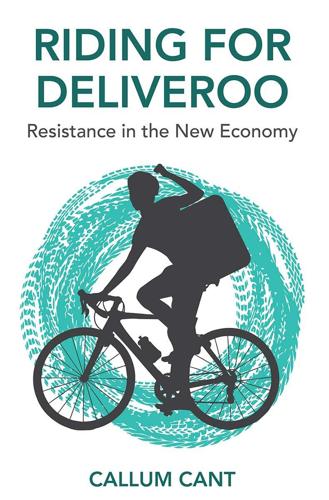
Riding for Deliveroo: Resistance in the New Economy
by
Callum Cant
Published 11 Nov 2019
Across the decades, workers came to the brink of changing everything, again and again. In 1926, a British general strike came too late to build on the revolutionary energy of the immediate post-war period, but still shook the ruling class to its core. In 1974, a coal miners’ strike toppled the Tory government. Then, in 1979, the ‘winter of discontent’ saw 4,608,000 British workers recorded as going on strike – although the real number is likely to be higher. At least 18 per cent of the total economically active population was involved in strike action at some point in the year. But, soon after, the workers’ movement stuttered. That stutter then turned into a retreat, as the movement began to lose ground to a new offensive launched by the ruling class.

Brit-Myth: Who Do the British Think They Are?
by
Chris Rojek
Published 15 Feb 2008
The Wilson, Heath and Callaghan governments of the 1960s and ’70s, went some way to attenuating this by insisting that Britain’s national interests lay in the direction of partnership with Europe and promoting diversity rather than protecting class privilege. Under James Callaghan’s term of office, in the late 1970s, the ignominious application to the International Monetary Fund for financial assistance to bail the nation out of economic disaster and the wave of strikes in the public sector in the so-called ‘winter of discontent’, seemed to signify the need for a redefinition of the nation which acknowledged that Britain was no longer a genuine world power. Unfortunately, the Thatcher and Major governments failed to grasp the nettle by designing a new model of the nation that could get to grips with the realities of globalization, multiculturalism and multi-ethnicity.

There Is Nothing for You Here: Finding Opportunity in the Twenty-First Century
by
Fiona Hill
Published 4 Oct 2021
Paying the mortgage meant that we frequently had to turn off the electricity when Dad’s paycheck didn’t carry us to the end of the month. Admittedly, in the 1970s all the industrial strikes usually ended up in a power cut when the workers at the power plants eventually went out on strike and the plants shut down. The so-called Winter of Discontent of 1978–1979—the biggest strike action since the General Strike of 1926, which brought out Dad and the other hospital workers alongside what was left of Durham’s miners—was a particularly dark period. Picket lines, protests, and power cuts brought the country to a standstill. Everyone’s electricity was off.
…
./1965), 105 W Wagon Works, Shildon, 31, 347 “Waiting for the Great Leap Forwards” (song), 85 Walmart, 343 Wang, Joe, 208, 229 Washington Consensus, 118 Washington Post, 2, 204 Watson, Marjorie, 88–89 Wear Valley, County Durham, 344, 345 Weber, Alfred, 52 Wellington, Duke of, 57 We’re Still Here (Silva), 155–56 Westerhout, Madeleine, 202 Westover, Tara, 354, 355 “White British,” 163–64, 317 white supremacists, 219, 307, 309 “White teenagers” (UK), 164 Wikipedia page, Hill, 245 Wilkerson, Isabel, 307 Williamson, Gavin, 299 wind power, 216 Winter of Discontent (1978–1979), 39 Witton Castle, 42, 208 Witton Park ironworks, 52–53 Wolosky, Lee, 1, 259, 261 Women’s March (January 2017), 206 Women Who Work (Ivanka Trump), 255 Woodward, Bob/Trump tapes, 219, 226 World Bank, 118, 123, 338, 340, 341 World War II Blitz, 191–92 X Xi Jinping, 220, 221 Y Yeltsin, Boris descriptions, 287 political violence and, 278, 287 presidency/administration, 127, 172, 221, 224, 228 reform programs/ “shock therapy,” 117–20 Yom Kippur War, 20 Yovanovitch, Marie (Masha) background, 240 calls/conspiracy theories about, 239 demonization of public service and, 193 as “Obama holdover,” 239 Parnas/Fruman attacks on, 240–41 Trump firing/threats, 238, 241, 251 as Ukraine ambassador, 238 Yudaeva, Ksenia, 132 Z Zakharova, Maria, 132 Zelensky, Volodymyr, 3, 241, 274, 297 Zinberg, Dorothy academic background, 125–26 appearances/Hill, 126 background, 138 gender wage gap and, 138, 142 Zorkin, Valery, 279 Zurbarán, Francisco de, 348 About the Author © Andrew Harnik / AP Photo Fiona Hill is the Robert Bosch Senior Fellow at the Center on the United States and Europe in the Foreign Policy program at the Brookings Institution.
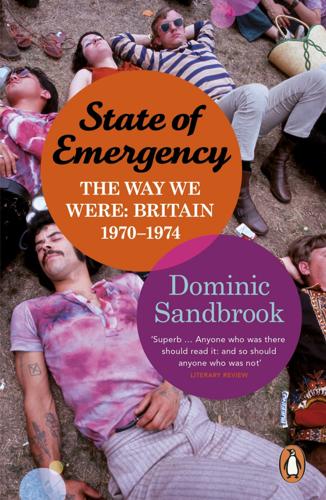
State of Emergency: The Way We Were
by
Dominic Sandbrook
Published 29 Sep 2010
The conflict in Northern Ireland, which dominated the headlines in the Heath years, actually claimed its first victim in 1966, while the environmentalist movement, apparently steeped in the values of the early 1970s, drew inspiration from books published by Rachel Carson and Barbara Ward in 1962 and 1966. Even Thatcherism, supposedly such a radical response to the traumas of the three-day week and the Winter of Discontent, built on a long prehistory of Conservative antipathy to the welfare state and the post-war consensus. Not surprisingly, historians have often been quick to challenge the exaggerated arch-Thatcherite vision of the 1970s as a period of unprecedented gloom and decline. It is certainly true that for many people living standards stagnated, and middle-class families in particular felt trapped between high taxes and soaring inflation.
…
And if Heath had followed Powell’s advice and taken a strict free-market approach, matters would surely have worked out very differently from how they did later under Mrs Thatcher. When he took office in 1970, after all, there had been no miners’ strike, no oil crisis, no inflation at more than 25 per cent, no IMF crisis and no Winter of Discontent. Although there was a deep thirst for modernization, there was little appetite for the radical surgery of the early 1980s. Indeed, given how violently people reacted to what Heath actually did in his first couple of years, he might well have provoked a general strike if he had adopted even more Thatcherite policies.
…
She sacked him in November 1976, and a year later, after more revelations about his association with Poulson, he suffered the indignity of being investigated, albeit very feebly, by a parliamentary Select Committee. After sinking into outright alcoholism, he died of cirrhosis of the liver in February 1979. Perhaps it was appropriate that he died at exactly the moment – the Winter of Discontent – when the post-war consensus was breaking up, for, as an unrepentant One Nation moderate, he had been its most articulate Tory champion. Even so, his passing at the age of just 61 seemed a dreadful waste. Few politicians of his generation were blessed with greater intelligence and charm, but few were cursed with such indolence and greed.
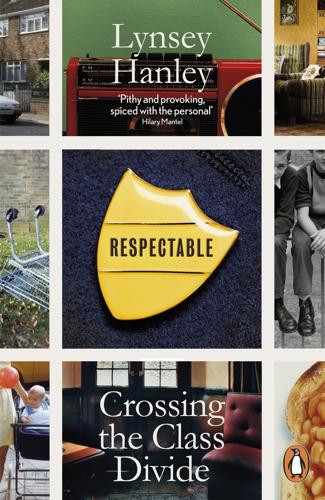
Respectable: The Experience of Class
by
Lynsey Hanley
Published 20 Apr 2016
‘Whenever my family’s gone through things from boxes from the fifties and sixties, you’d notice that anything delicate was wrapped up in the Daily Mirror … both my grandfathers had been dyed-in-the-wool Labour supporters but switched from the Mirror to either the Daily Mail or the Express in 1979 … they both desperately wanted to feel proud of Britain and being British, and both of them felt the Winter of Discontent was this huge blow to their sense of pride.’ That was a different eighties from the one I remember, though many people recall it more in the way that Richard’s family did. In Britain at least, the other cold war, the class one, turned hot. This knowledge was at times viscerally present in our own household.
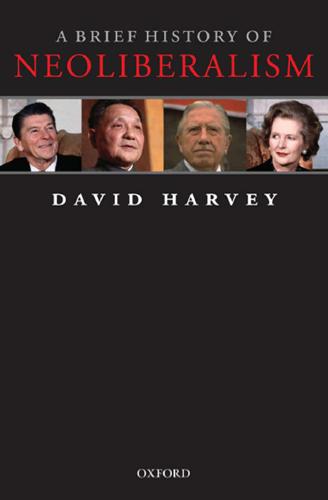
A Brief History of Neoliberalism
by
David Harvey
Published 2 Jan 1995
But it still had no solution to the crises of accumulation and stagflation. It sought, unsuccessfully, to mask the difficulties by appealing to corporatist ideals, in which everyone was supposed to sacrifice something for the benefit of the polity. Its supporters were in open revolt, and public sector workers initiated a series of crippling strikes in the ‘winter of discontent’ of 1978. ‘Hospital workers went out, and medical care had to be severely rationed. Striking gravediggers refused to bury the dead. The truck drivers were on strike too. Only shop stewards had the right to let trucks bearing “essential supplies” cross picket lines. British Rail put out a terse notice “There are no trains today” … striking unions seemed about to bring the whole nation to a halt.’30 The mainstream press was in full cry against greedy and disruptive unions, and public support fell away.
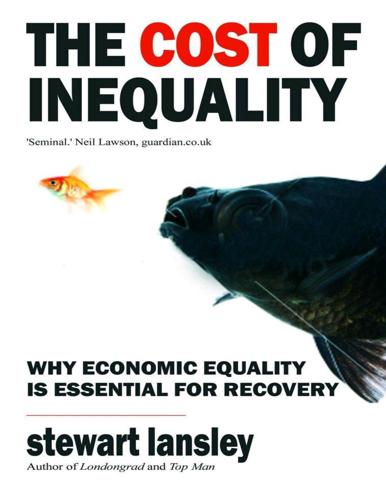
The Cost of Inequality: Why Economic Equality Is Essential for Recovery
by
Stewart Lansley
Published 19 Jan 2012
Headlined ‘Could Britain be heading for a military takeover’, the article went onto warn that ‘Large industrial concerns are beginning to talk in terms of a co-ordinated defence against industrial action or wholesale nationalisation’.57 With Britain scarred by a series of high profile and highly damaging strikes— especially during the ‘winter of discontent’ in 1979, Mrs Thatcher made trade-union reform one of her top priorities. From 1979, employment rights were removed, strikes made much more difficult and wages councils abolished. In 1984, the year long, set piece battle with the National Union of Miners—badly led by the most combative of all the union bosses, Arthur Scargill—led to an historic and devastating defeat for the miners.
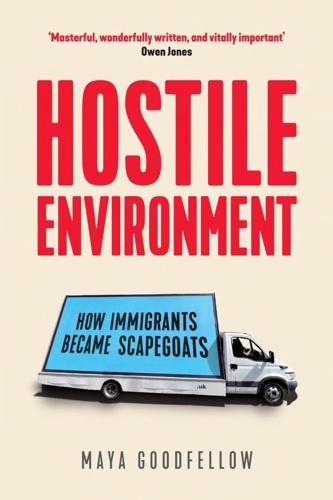
Hostile Environment: How Immigrants Became Scapegoats
by
Maya Goodfellow
Published 5 Nov 2019
Even as it claimed limits were necessary, when Parliament passed the bill, an editorial in The Times called it ‘probably the most shameful measure that the Labour members have ever been asked by their whip to support’.76 As the decades have passed, it’s not been uncommon for Labour folk to look on Wilson’s government fondly, as one that despite its faults, cared about people, and Callaghan as a kindly figure who badly mishandled the Winter of Discontent.77 Another side of Labour history came to the fore in 1968. One of the most reactionary immigration acts that has ever passed through Parliament was brought forward by a Labour government. But in line with the left’s tradition of radicalism and anti-imperialism, there were people fighting back.
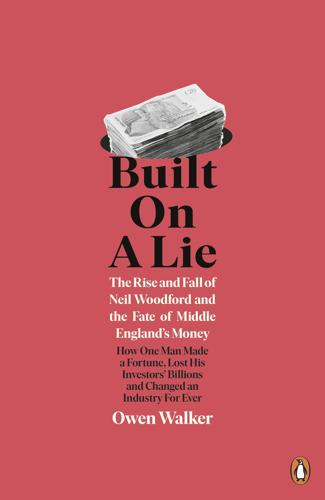
Built on a Lie: The Rise and Fall of Neil Woodford and the Fate of Middle England’s Money
by
Owen Walker
Published 4 Mar 2021
‘They told me that only a few years previously they had been taking on recruits just with CSEs, but now they were receiving applications from graduates. It was depressing.’ Britain was in the throes of a recession and the unemployment rate was heading to 12 per cent nationally, with 3 million out of work. Margaret Thatcher had swept to power two years earlier following the Winter of Discontent on the promise of cutting inflation, improving efficiency and crushing the powerful unions. But her economic policies were taking time to bear fruit, with inflation peaking at 22 per cent in 1980. The worst effects of the disruption were felt far from the City, but even so there were few attractive opportunities available to graduates.
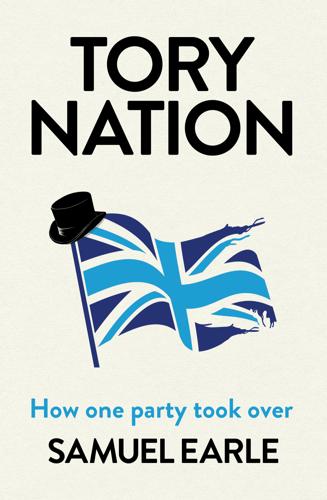
Tory Nation: The Dark Legacy of the World's Most Successful Political Party
by
Samuel Earle
Published 3 May 2023
Because these papers dodged the stamp duty and other press taxes, which they attacked as ‘taxes on knowledge’, anyone involved faced imprisonment. But for the same reason they were also the most affordable publications available. This alone ensured their relative popularity. It’s thought that one such paper, the Political Register, sold up to 60,000 copies during 1817’s winter of discontent, ten times the number for The Times. Their influence also far exceeded the number of copies sold, because articles were often read aloud in taverns and at rallies, and copies were shared among workers and friends. Conservatives and Whigs were right to be worried. Society seemed increasingly unstable, and the threat of revolution was in the air.
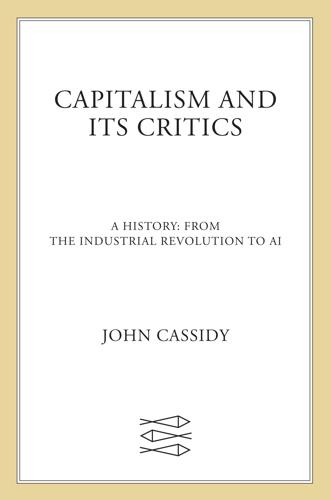
Capitalism and Its Critics: A History: From the Industrial Revolution to AI
by
John Cassidy
Published 12 May 2025
In the first months of 1979, many public sector workers, including train drivers, nurses, and ambulance drivers, staged walkouts. In some cities, they were joined by garbage collectors, gravediggers, and crematorium workers. The Conservatives and their supporters on Fleet Street seized upon these events, which became known as the Winter of Discontent. Accusing the unions of holding the country to ransom, Thatcher called on Callaghan to declare a state of emergency. She also proposed a series of labor reforms, many of which could be traced right back to The Constitution of Liberty. They included a ban on secondary picketing, the prohibition of closed shops, mandatory secret ballots before strikes could be called, and a no-strike clause in the work agreements of some public sector workers.
…
Bolivia Bolsheviks Bolts, William; Considerations on India Affairs; East India Company and bonds Booth, Charles Bordeaux Borel, Émile Boserup, Ester Boston Tea Party Boulton, Matthew bourgeoisie; The Communist Manifesto on; cultural hegemony of Bowles, Samuel Braudel, Fernand Brazil Bretton Woods system Brewer, John Brexit Breyer, Stephen Brick, The (economic plan) Bristol Britain; agriculture in; in Boer War; Brexit and; business financing in; Chartist movement in; coal industry in; corporate profits in; cotton industry in; economic development in, and slavery; economic crises of the 1970s and 1980s in; economy of; in Falklands War; food riots in; foreign investments of; foreign policy of; free trade and; GDP of; Germany and; gold standard and; gross fixed capital stock in; healthcare in; immigrants in; imports to; inflation in; investing promoted in; labor unions in; laissez-faire system and; middle class in; military of; in Napoleonic Wars; in opium trade; port cities in; poverty in; prices in; privatization in; profit rate in; racism in; railroads in; rationing in; rightward swing in politics in; slave trade and; social programs and benefits in; Speenhamland system in; sterling in; strikes in; sugar and; trade and; unemployment in; wages and profits in; Winter of Discontent in; as workshop of the world; World War I and; World War II and British colonies; in Africa; in Caribbean; India, see India, British rule in; slavery abolished in; slavery in British Co-operator, The British Factory Act British Gas British Leyland British Museum British South Africa Company British Steel British Telecom Brook Farm Brown, John Brown, Wilmette Brunel, Isambard Kingdom Brussels Brynjolfsson, Erik Buchanan, Pat Budapest Bukharin, Nikolai Bulwer-Lytton, Edward Bulwer-Lytton, Rosina Wheeler Burke, Edmund Burke, Richard Burnette, Joyce Burns, Lizzy Burns, Mary Burton, Daniel Bury St.
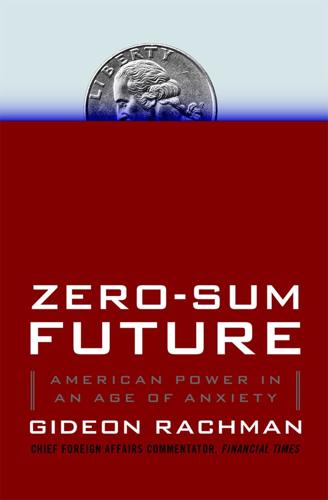
Zero-Sum Future: American Power in an Age of Anxiety
by
Gideon Rachman
Published 1 Feb 2011
As a child in London in the 1970s, I found it rather exciting to grow up in a world of power cuts and urban riots. But adults of voting age found the atmosphere of perpetual national crisis much less acceptable. Thatcher’s victory in the election of May 1979 was secured by the misery of the “winter of discontent” of 1978–79, a series of crippling strikes that fed Britain’s feeling of national malaise. In the run-up to the vote on May 4, 1979, both Thatcher and the prime minister she would replace, James Callaghan, sensed that epochal change was in the making. “There are times, perhaps once every thirty years, when there is a sea change in politics,” Callaghan remarked.
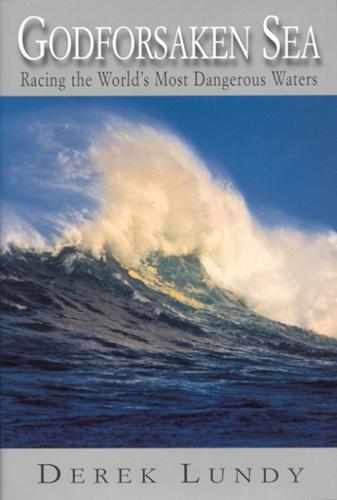
Godforsaken Sea
by
Derek Lundy
Published 15 Feb 1998
FINALLY, ONE BY one and two by two, they began to come home. They had begun the race in an autumn Bay of Biscay storm. Now they had to finish it sailing through the bay’s late-winter and early-spring gales. All the time the boats had been off sailing the world, Biscay had been blustering away—its usual winter of discontent. It was a little easier heading back toward the Vendée coast than it had been leaving it, because the boats’ generally northeast course brought the westerly winds of the winter lows farther behind them. They were able to reach rather than having to beat to windward. That reduced the apparent wind and, most helpfully, the impact of waves on the strained hulls.
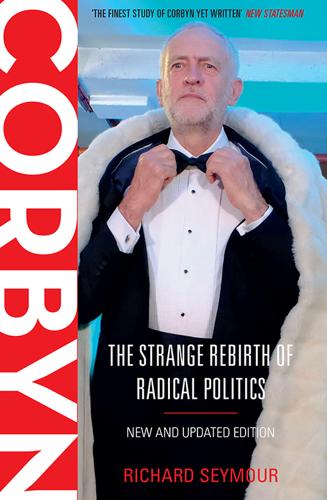
Corbyn
by
Richard Seymour
The resentments generated by top-down, mandarin control of public industries, by incomes policies, by intrusive welfare bureaucracies and the increasingly authoritarian bent of state interventions may not have been enough by themselves to create a sufficient backlash. But the fact that they manifestly did not work, that public enterprises were ‘lame ducks’, that unemployment still soared, that the consensus had yielded to ‘stagflation’, and that the social contract broke down with the ‘winter of discontent’, showed the state to be not merely ‘nannying’, but also ineffectual. What is more, the leadership of social democracy was increasingly in agreement with the Rightist critique: it was Labour’s Denis Healey who effectively introduced the doctrine of ‘sado-monetarism’ before Thatcher was elected.
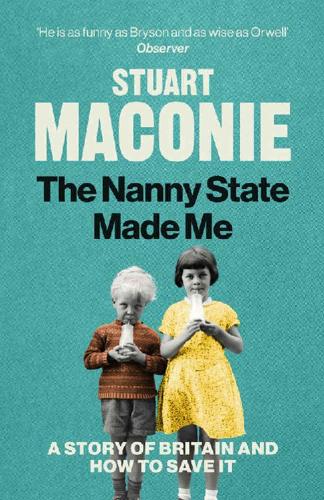
The Nanny State Made Me: A Story of Britain and How to Save It
by
Stuart Maconie
Published 5 Mar 2020
Gross Domestic Product doubled between 1950 and 1973. In the 60s, there were regular growth spurts of 6 per cent a year, and the record high remains 1973 – for monetarist naysayers supposedly the heart of our economic darkness – when it hit a magnificent 7.4 per cent. The popular notion that the 1979 Winter of Discontent was an economic nadir for Britain that propelled Thatcher to power is something of a myth too. Almost 30 million working days were lost by strikes that year, but 20.7 million of them came after the election when the Conservatives were in government. British decline, as journalist Neal Ascherson has pointed out, ‘shows not a steady descending gradient but a sudden cliff-edge’.
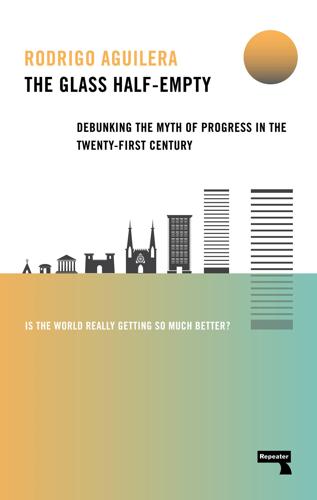
The Glass Half-Empty: Debunking the Myth of Progress in the Twenty-First Century
by
Rodrigo Aguilera
Published 10 Mar 2020
In his description of distributional coalitions, Olson was thinking not just about industry lobbying groups but also unions. Olson’s less benign view of unions was undoubtedly shaped by the fact that by the 1970s, unions in some countries like the UK had become highly combative and were arguably making the country increasingly ungovernable, as evidenced by the “Winter of Discontent” in 1978–1979 which led to many voters swaying towards Thatcher. Perhaps the most controversial aspect of Olson’s thesis is that the accumulation of distributional coalitions would increase in democracies with greater long-term stability. His main evidence for this was the stagnation seen in UK in the post-war period compared to booming France, Germany, and Japan, all of whom had suffered from severe political disruptions as a result of World War II that wiped out many of their pre-war interest groups.
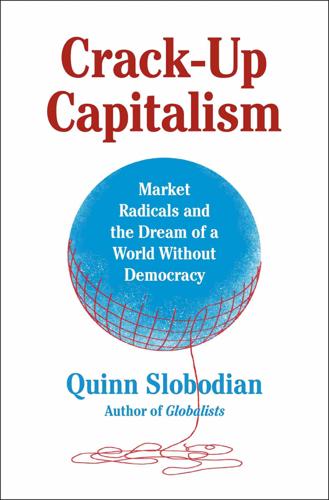
Crack-Up Capitalism: Market Radicals and the Dream of a World Without Democracy
by
Quinn Slobodian
Published 4 Apr 2023
Standing onstage, Patri echoed his grandfather, saying that what he wanted to see was a “floating Hong Kong.”8 The header for his blog included a slogan adapted from Mao Zedong—“Let a Thousand Nations Bloom”—but the image was of Hong Kong, and the logo looked suspiciously like a sinuous version of the bauhinia flower on Hong Kong’s flag.9 What was it about the territory that made it the perfect template? To understand the Friedmans’ enthusiasm, we must travel decades earlier to when Milton fell for his colonial capitalist paradise. 1. In late 1978, inflation was high and rising in the United States. Britain was entering its own “winter of discontent,” a record-breaking number of labor actions helping to spawn a backlash that culminated with union-buster Margaret Thatcher’s rise to power. Unrest rumbled in Iran, where revolutionary leftist students joined with their no less revolutionary religious counterparts to overthrow the government, speaking in the name of God and the people with fists in the air.
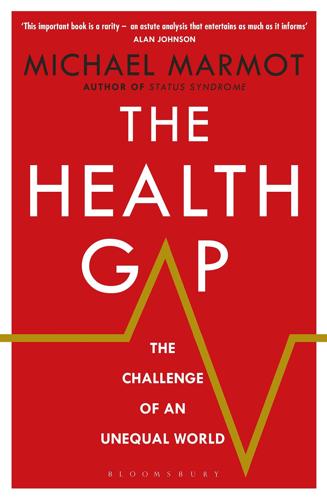
The Health Gap: The Challenge of an Unequal World
by
Michael Marmot
Published 9 Sep 2015
Yet, read certain sections of the press, and favourite hate objects are trade unions and ‘health and safety gone mad’. It is certainly true that in Britain in the 1970s, had the trade unions hired public relations people with the explicit instruction to ensure a bad press, they could hardly have trumped what actually happened. In Britain, we have only to remember the so-called ‘winter of discontent’ of 1978–9, when one trade union after another struck to the great discomfort of the public, to think that we do not want a return to unbridled power of trade union bosses. But that does not mean that we should revel in unbridled power of corporation bosses. It is entirely possible, and desirable, to run profitable companies that do not pursue profit at the expense of the physical and mental health of employees.
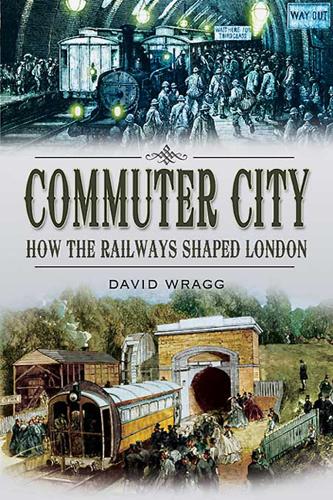
Commuter City: How the Railways Shaped London
by
David Wragg
Published 14 Apr 2010
Progressively, the brand was removed from these services, including even the Waterloo-Southampton-Bournemouth-Weymouth service, which over its entire length was considerably longer than London to Birmingham or Bristol. The period since the end of the Second World War had been marked by a consensus in British politics. This ended at the 1979 general election, when, spurred by a ‘winter of discontent’ that had seen the worst industrial unrest experienced in the UK since the year of the General Strike, the voters returned a Conservative administration under a new leader, Margaret Thatcher, determined to reverse the tide, with lower taxation, deregulation and denationalisation, although this latter policy was to be given the title of ‘privatisation’, probably justified by the fact that not only was the state to discard its own business interests, but so too were local authorities.
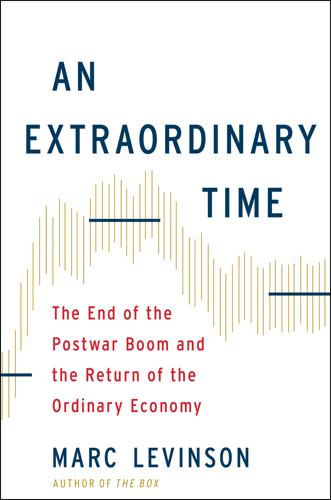
An Extraordinary Time: The End of the Postwar Boom and the Return of the Ordinary Economy
by
Marc Levinson
Published 31 Jul 2016
“We’d had three years of pay restraint, and people had got fed up of it,” recalled a trucker in the desolate Yorkshire city of Hull. When Callaghan refused to retreat, autoworkers, lorry drivers, railway workers, nurses, even gravediggers walked off the job. Hospitals turned away patients, and chickens died for lack of feed. The dark, snowy winter of 1978–79 would go down in history as the Winter of Discontent, the winter when Londoners’ trash was piled in Leicester Square because the dustmen refused to cart it away. Output collapsed as nearly thirty million workdays were lost amid the strikes. When the disputes were finally settled, striking workers won wage hikes far above the government’s 5 percent guideline.

On Her Majesty's Nuclear Service
by
Eric Thompson
Published 18 Apr 2018
The strikers didn’t even show loyalty to their own Labour Government, the Party of Organised Labour. Ever since that strike, the Navy has maintained a uniformed presence in all of the civilian departments involved in the Deterrent. We didn’t know it then but the country was about to enter the notorious Winter of Discontent (1978/79) when even the gravediggers would go on strike. That toppled the Callaghan Government. In March 1979, Margaret Thatcher called in Parliament for a vote of No Confidence in the Government and won. In the subsequent General Election, under the slogan of Labour isn’t working, the Conservatives swept back into power with a massive majority.
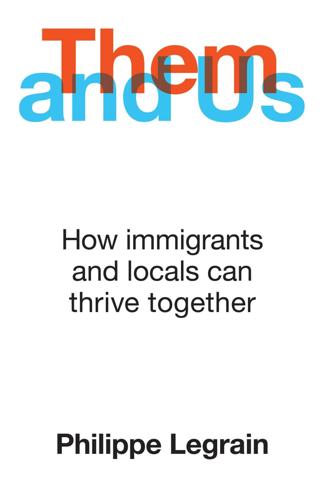
Them and Us: How Immigrants and Locals Can Thrive Together
by
Philippe Legrain
Published 14 Oct 2020
My parents then met in New York, before moving to the UK in 1972. Why am I telling you all this? My life has been much more settled than theirs. I was fortunate enough to have been born in London in 1973, so the worst political disruption I’ve suffered is the rolling power cuts of the Three Day Week in 1974 and the Winter of Discontent in 1978–79 when rubbish went uncollected and the dead unburied. While I’ve worked abroad on a few occasions, London is my home. I have an international background and at the same time I feel very rooted here. Contrary to then prime minister Theresa May’s nasty claim that ‘citizens of the world’ are ‘citizens of nowhere’, I feel connected to many other places in the world while also feeling a very strong sense of belonging to my home city.
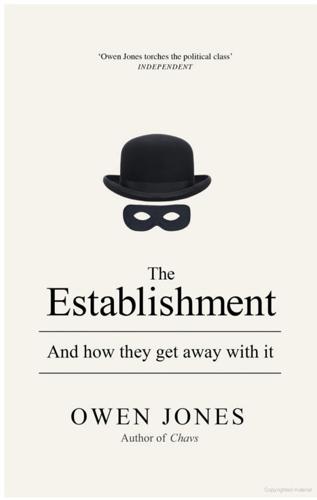
The Establishment: And How They Get Away With It
by
Owen Jones
Published 3 Sep 2014
‘When the crisis occurs, the actions that are taken depend on the ideas lying around’ and ‘the politically impossible becomes politically inevitable’. Crucially, this ideological struggle reflected something that was playing out in British society at the time. As inflation soared and trade unions attempted to win pay settlements that reflected the cost of living, a wave of strikes shook the country, culminating in the 1978–79 Winter of Discontent, a battery of industrial action that shut down essential services in parts of the country. But although it won some battles, the entire trade-union movement was on the brink of calamitous defeat. Britain was becoming ever more receptive to the ideas of the Mont Pèlerin outriders. Among the new wave of think tanks set up in crisis-hit Britain was the Centre for Policy Studies (CPS), founded in 1974 by Margaret Thatcher and Keith Joseph – the son of a wealthy construction magnate and long-standing Conservative minister – to promote their insurgent right-wing views.
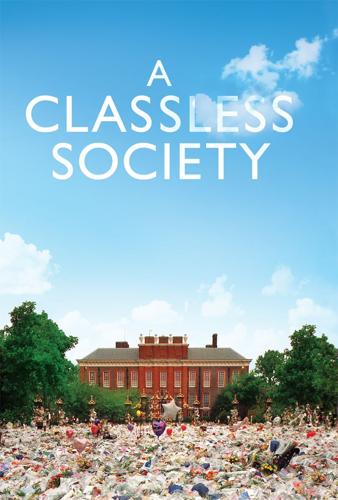
A Classless Society: Britain in the 1990s
by
Alwyn W. Turner
Published 4 Sep 2013
Ford had been about to close its European operations; hospitals were about to shut down for lack of fuel; and cashpoints were about to run out of money.’ The Queen was prevailed upon to sign an Emergency Order, allowing a state of emergency to be declared if it was considered necessary. There was an echo here of the fabled winter of discontent when, in the early months of 1979, the last Labour government had found itself in conflict with various trade unions. The most disruptive element in that dispute had been a transport workers’ strike that prevented food and other supplies from being moved around the country. The ensuing chaos had provided the backdrop to Margaret Thatcher’s election victory, and the Conservatives had never been shy of reminding the country of those times in subsequent years.
…
(TV) ref 1 The Whole Woman (Germaine Greer) ref 1 Widdecombe, Ann ref 1, ref 2, ref 3, ref 4, ref 5, ref 6, ref 7, ref 8, ref 9, ref 10, ref 11 Wilde, Oscar ref 1 Wilkinson, Helen ref 1 Wilkinson, Howard ref 1 William, Prince ref 1, ref 2, ref 3, ref 4, ref 5 Williams, Marcia ref 1, ref 2 Wilson, A.N. ref 1, ref 2, ref 3, ref 4 Wilson, Harold ref 1, ref 2, ref 3, ref 4, ref 5, ref 6, ref 7, ref 8, ref 9, ref 10, ref 11, ref 12, ref 13, ref 14, ref 15 windfall tax ref 1, ref 2 Windsor, Barbara ref 1, ref 2 Windsor Castle fire ref 1 Winning, Cardinal Thomas ref 1 Winston, Ronert ref 1 winter of discontent, 1979 ref 1 Winterbottom, Michael ref 1 Wogan, Terry ref 1, ref 2, ref 3, ref 4 women comics ref 1 erotic literature ref 1 female boxers ref 1 female pornography ref 1, ref 2 feminism ref 1, ref 2, ref 3, ref 4, ref 5 ‘girl power’ ref 1, ref 2 in the workforce ref 1 Labour MPs ref 1, ref 2 ladettes ref 1, ref 2 ordination of ref 1 parliamentary shortlists ref 1, ref 2 in rock and roll ref 1 tough fantasy figures ref 1 Women Institute ref 1 Wonderbra ref 1 Woodhead, Chris ref 1 Woodward, Shaun ref 1, ref 2, ref 3, ref 4 The Word (TV) ref 1, ref 2, ref 3 Wright, Tony ref 1, ref 2 Wyatt, Woodrow ref 1, ref 2, ref 3, ref 4, ref 5 A Year in Provence (Peter Mayle) ref 1 Yentob, Alan ref 1, ref 2 Yes Minister (TV) ref 1, ref 2, ref 3 York, Sarah, Duchess of ref 1, ref 2, ref 3, ref 4 Young British Artists (YBAs) ref 1, ref 2, ref 3, ref 4 Young, Hugo ref 1, ref 2, ref 3, ref 4, ref 5, ref 6, ref 7, ref 8, ref 9 Yugoslav wars ref 1, ref 2 zero-tolerance policing ref 1, ref 2 List of Illustrations 1.

The Fry Chronicles: An Autobiography
by
Stephen Fry
Published 27 Sep 2010
But the appetites that drive us and our susceptibility, resistance, acceptance and denial of substances define and reveal us at least as much as abstract expressions of belief or bald recitations of action and achievement. Maybe it’s just me. Maybe other people have greater control over their appetites and less interest in them. I seem to have been driven by greedy need and needy greed all my life. College to Colleague Cambridge The Winter of Discontent, they called it. Strikes by lorry drivers, car workers, nurses, ambulance drivers, railwaymen, refuse collectors and gravediggers. I don’t suppose I had ever been happier. After all the storm-tossed derangement of my teenage years – love, shame, theft, scandal, expulsion, attempted suicide, fraud, arrest, imprisonment and sentencing – I finally seemed to have found something close to equilibrium and fulfilment.
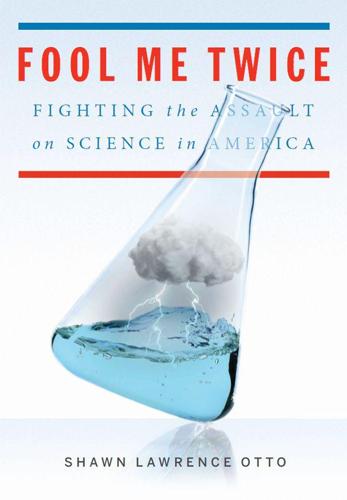
Fool Me Twice: Fighting the Assault on Science in America
by
Shawn Lawrence Otto
Published 10 Oct 2011
Space Policy 2008;24(3):158–165. http://si-pddr.si.edu/jspui/bitstream/10088/8213/1/Launius_2008_Managing_the_unmanageable.pdf. 19. Laursen, L. @ApolloPlus40—A Colossal Perversion. In the Field, Nature.com, July 7, 2009. http://blogs.nature.com/inthefield/2009/07/apolloplus40_a_colossal_perver.html. [blog] 20. Heppenheimer, T. A. Winter of Discontent. The Space Shuttle Decision. NASA History Series SP-4221. Washington, DC: National Aeronautics and Space Administration, 1999. http://history.nasa.gov/SP-4221/ch4.htm. 21. Newport, F. Landing a Man on the Moon: The Public’s View. Gallup News Service, July 20, 1999. www.gallup.com/poll/3712/landing-man-moon-publics-view.aspx. 22.
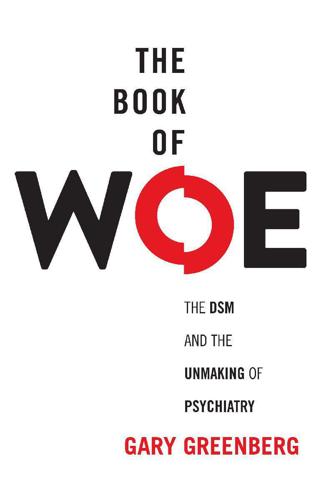
The Book of Woe: The DSM and the Unmaking of Psychiatry
by
Gary Greenberg
Published 1 May 2013
“I often ask myself why I am so good to you when I know you will stab psychiatry in the back,” he had written earlier. He answered his own question. “It is the Prince Myshkin in me.” But, as was often the case when Frances called himself an idiot, it seemed his real barb was directed elsewhere. Frances’s winter of discontent was lasting into spring. “The man is an absolute fool and an incorrigible tool,” he wrote of one DSM-5 activist. The psychologists’ petition was “dying as the feckless humanists fiddle.” Paula Caplan had started her own petition, calling for a boycott of the DSM and for congressional hearings into the harmful effects of psychiatric diagnosis.
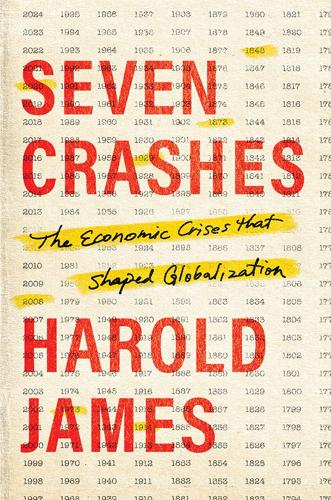
Seven Crashes: The Economic Crises That Shaped Globalization
by
Harold James
Published 15 Jan 2023
The temporal spacing of settlements created the possibility of leapfrogging, and that increased discontent and heightened politicization. By 1976, a currency crisis developed as UK costs exploded. Chancellor of the Exchequer Denis Healey turned back from Heathrow Airport, where he was supposed to be flying to the annual IMF meeting, in order to manage the urgent domestic crisis. Later, in the winter of 1978 –1979, a “winter of discontent” with strikes and shortages, garbage piling up uncollected in the streets, and bodies waiting for burial, Prime Minister James Callaghan returned, with a sun tan, on January 10, 1979, from an international meeting in the Caribbean (Guadeloupe) and was misquoted when he landed in a phrase that became the obituary for his government, and indeed for the old Labour Party: the popular tabloid the Sun ran as its banner headline “Crisis?

Reaganland: America's Right Turn 1976-1980
by
Rick Perlstein
Published 17 Aug 2020
The IMF’s conditions demanded brutal austerity, and by the summer of 1978, the Labor prime minister, James Callaghan, asked the national Trades Union Confederation to hold down raises to 5 percent. Unions struck instead. Emergency rooms closed to all but the worst cases. Uncollected trash piled up in the streets. Bread was rationed. Crops rotted without truckers to move them—with little gasoline to fuel them in any event. England entered what became known as its “Winter of Discontent.” In Iran, the shah’s government was collapsing day by day at the hands of a many-tentacled revolutionary coalition. Oil strikes brought production from five million to two million barrels a day. One demand was the expulsion of all foreign workers and their dependents, including forty-one thousand Americans.
…
former news Theodore White, America In Search of Itself: The Making of the President, 1956–1980 (New York: Harper & Row, 1981), 190; Sidney Blumenthal, The Permanent Campaign: Inside the World of Elite Political Operatives (Boston: Beacon Press, 1980), 47. Patrick Caddell Ibid., 27–57; Joe Klein, Politics Lost: How American Democracy Was Trivialized by People Who Think You’re Stupid (New York: Doubleday, 2006), 35–56; Caddell Oral History, Miller Center, University of Virginia; Gold, PR As In President, 207; Anthony Lewis, “Winter of Discontent,” NYT, April 15, 1974. Ford adman MacDougall, We Almost Made It, 22–23, 44–48. FBI director Clarence Kelley Witcover, Marathon, 547. Bob Dole, Ford’s hatchet-man Ibid., 548–49; AP, September 6, 1976. “body attached to the hand” “Carter Has Ad Headstart in Pennsylvania,” NYT, April 18, 1976.
…
“Pollution Victims Told of Liver Disorders” LAT, September 4, 1978. “Olfactory Niagara” NYT, August 9, 1978. “Anything, Anywhere, Any Time” Ibid. “set for a disaster movie” Knight-Ridder News Service, November 15, 1978. Alfred Kahn UPI, November 15, 1978. One Oregon newspaper Oregon Statesman/Capital Journal, “Insight” section, November 26, 1978. “Winter of Discontent” Christian Caryl, Strange Rebels: 1979 and the Birth of the 21st Century (New York: Basic Books, 2013), 52–54. four thousand Westerners UPI, November 18, 1978. “very well-planned operation” AP, December 24, 1978. “Dressed in a black turban” “Exiled Holy Man Hints He’ll Call for War in Iran,” NYT, November 7, 1978.
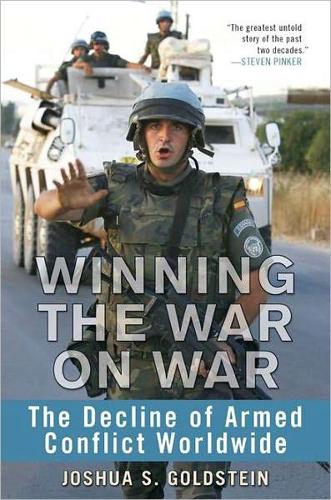
Winning the War on War: The Decline of Armed Conflict Worldwide
by
Joshua S. Goldstein
Published 15 Sep 2011
International Interactions 35, 2009: 58–85. Melander, Erik, Magnus Öberg, and Jonathan Hall. “Are ‘New Wars’ More Atrocious? Battle Severity, Civilians Killed, and Forced Migration before and after the End of the Cold War.” European Journal of International Relations 15 (3), 2009: 505–36. Meyer, David S. A Winter of Discontent: The Nuclear Freeze and American Politics. Westport, Conn.: Praeger, 1990. Midlarsky, Manus I. The Killing Trap: Genocide in the Twentieth Century. New York: Cambridge University Press, 2005. Mill, John Stuart. Principles of Political Economy: With Some of Their Applications to Social Philosophy.
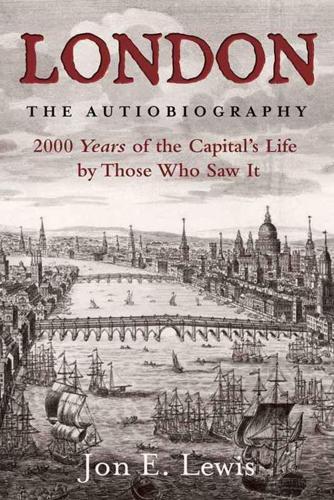
London: The Autobiography
by
Jon E. Lewis
Published 25 Aug 2009
Afterwards a good deal of sarcasm was expended on this choice, but the rest of the quotation is often forgotten. St Francis prayed for more than peace; the prayer goes on: ‘Where there is error, may we bring truth. Where there is doubt, may we bring faith. And where there is despair, may we bring hope’. The forces of error, doubt and despair were so firmly entrenched in British society, as the ‘winter of discontent’ had just powerfully illustrated, that overcoming them would not be possible without some measure of discord. The election of a Conservative government under Margaret Thatcher had profound implications for London. The Greater London Council (GLC, the successor to the LCC) was headed by Ken Livingstone, a populist Labour politician bent on pursuing affirmative-action programmes for ‘minorities’ and a subsidized ‘Fares Fair’ transport policy that slashed Tube and bus fares.
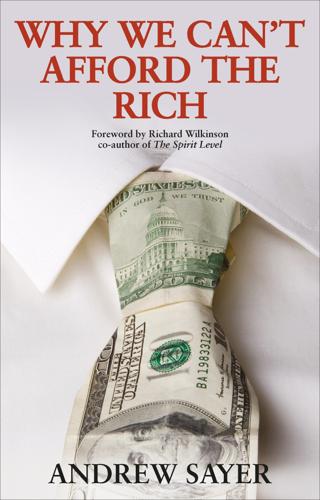
Why We Can't Afford the Rich
by
Andrew Sayer
Published 6 Nov 2014
Bringing down inflation shifted the balance of power back from debtors to creditors, and flows of money from debtors in both the industrialised and developing countries increased. The 1970s versus now To read the tabloid newspapers, or listen to neoliberal politicians, one might think the 1970s in Britain were a time of unrelenting misery, when the country was run by ‘union barons’, paralysed by strikes and power cuts (‘the winter of discontent’), with rubbish piling up on the streets and bodies piling up in morgues (because grave-diggers were on strike), while inflation was rampant. Thank goodness things are not like that any more. Well, I was there, and bearing in mind that there were 3,652 days in the 1970s, and that the power cuts and other disruptions lasted only a small number of days, and then only in some parts of the country, this is somewhat misleading.
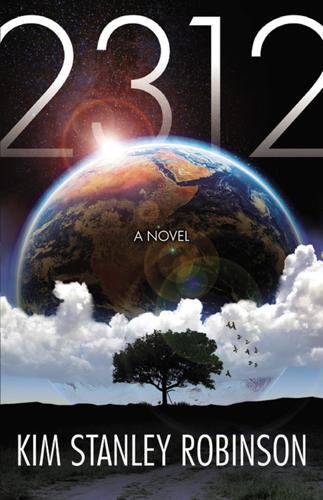
2312
by
Kim Stanley Robinson
Published 22 May 2012
So in this discussion the dispute kept on seesawing between the idea that Mercury was the legitimate, or in any case agreed-upon, broker in the matter, and furthermore could make things difficult—and besides had things to offer Saturn—and the idea that the Mercurials were interlopers who had succeeded in imposing a protection racket on the new little settlements inside it, and so should be finessed out of the deal in this their winter of discontent. Ultimately the council came to a conclusion Wahram had foreseen hours before: as Wahram himself was so sympathetic to the Mercurials, he was to return there and see what the situation was, talk to the lion cubs and find out who the next Lion would be, and then also go visit the Vulcanoids and see what they had to say for themselves—see what they thought of the arrangement Mercury had proposed to Saturn.

Riding Rockets: The Outrageous Tales of a Space Shuttle Astronaut
by
Mike Mullane
Published 24 Jan 2006
Hauck also revealed he had been told six months prior to the press release that he would command the return-to-flight mission but had been sworn to secrecy by Abbey. I wondered how many times during those six months other hopeful commanders had been in Rick’s company wondering aloud who would command STS-26, and Rick had pretended to wonder with them. Deep secrecy. It was Abbey’s style and it was killing astronaut morale. My winter of discontent continued. As we had anticipated, the lightweight SRB program was canceled and, along with it, all Vandenberg AFB shuttle operations were terminated. I would never see polar orbit. Challenger’s wreckage—all of it—was sealed in a pair of abandoned Cape Canaveral missile silos. It was another head-shaking moment for me.
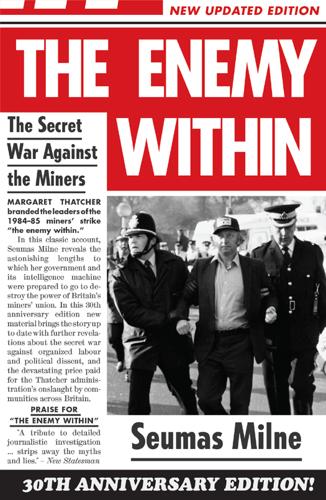
The Enemy Within
by
Seumas Milne
Published 1 Dec 1994
As the British economy’s relative decline progressively narrowed the scope for accommodating working-class demands, the clashes with both Tory and Labour governments became sharper: first over Barbara Castle’s efforts to bring the unions to heel with her abortive ‘In Place of Strife’ proposals, then in the successful resistance to Edward Heath’s anti-union Industrial Relations Act, then in the breakdown of Jim Callaghan’s attempts to cut real wages in the ‘Winter of Discontent’. The Tories returned to power in 1979 determined to break the back of the entire trade-union movement. The NUM was not the only powerful union in the establishment’s sights – the giant Transport and General Workers’ Union, with its hold on the docks and road transport, for example, was also singled out for special treatment during the Thatcher years.
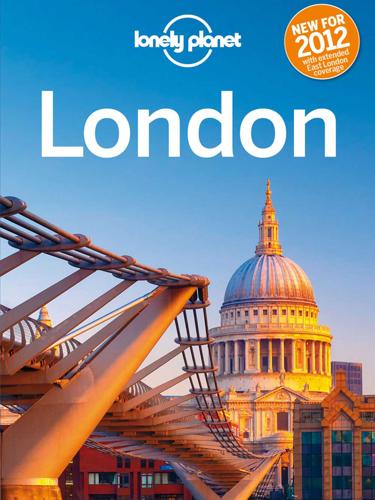
Lonely Planet London
by
Lonely Planet
Published 22 Apr 2012
While the music and fashion scene was popping, torpor had set into Britain’s body politic. Seen as weak and in thrall to the all-powerful trade unions, the brief and unremarkable Labour premiership of James Callaghan (1976–79) was marked by crippling strikes in the late 1970s, most significantly the ‘Winter of Discontent’ in 1978–79. For a fascinatingly informative blog reviewing the social, musical and popular cultural history of London, take a look at Another Nickel in the Machine (www.nickelinthemachine.com): it covers everything from vintage Bowie to suffragettes. The Thatcher & Major Years Recovery began – at least for the business community – under the iron fist of Margaret Thatcher, the leader of the Conservative Party, who was elected Britain’s first female prime minister in 1979.

Lonely Planet London City Guide
by
Tom Masters
,
Steve Fallon
and
Vesna Maric
Published 31 Jan 2010
While the music and fashion scene was in overdrive, torpor had set into Britain’s body politic, as demonstrated by the brief and unremarkable Labour premiership of James Callaghan (1976–79). He was seen as weak and in thrall to the all-powerful trade unions, who crippled the UK with strikes in the late 1970s, most significantly during the ‘Winter of Discontent’ in 1978–79. Return to beginning of chapter THE THATCHER & MAJOR YEARS Recovery began – at least for the business community – under the iron fist of Margaret Thatcher, the leader of the Conservative Party, who was elected Britain’s first female prime minister in 1979. Ruling for the whole of the 1980s and embarking on an unprecedented program of privatisation, Margaret Thatcher is easily the most significant of Britain’s post-war leaders and opinions about her remain polarised in Britain today.
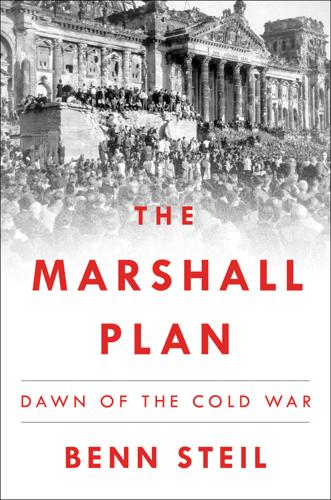
The Marshall Plan: Dawn of the Cold War
by
Benn Steil
Published 13 Feb 2018
Mangasarian, Leon. “Putin Emboldened on Instability Arc by EU Defense Divide.” Bloomberg. May 15, 2014. https://www.bloomberg.com/news/articles/2014-05-14/eu-east-west-defense-divide-emboldens-putin-s-arc-of-inst. Margh, H. F. “Decision on Czech Loan.” New York Times. November 1, 1946. Mayer, Arthur L. “Winter of Discontent.” The New Republic. March 10, 1947. McKinnon, Ronald I. “Foreign Exchange Constraints in Economic Development and Efficient Aid Allocation.” Economic Journal. Vol. 74 (June 1964): 388–409. McLaughlin, Kathleen. “Berlin Lift Ends in 277,264th Flight.” New York Times. October 1, 1949. Menkiszak, Marek.

Liberalism at Large: The World According to the Economist
by
Alex Zevin
Published 12 Nov 2019
While spending cuts attached to the IMF loan (then the largest ever made) helped bring down the rate of inflation, this was also due to the acceptance by workers of pay caps – an incomes policy that collapsed two years later, when public sector unions struck against another round of real-term wage cuts. Inflation shot up, unemployment climbed above a million, and growth fell to a post-war low. The ‘winter of discontent’ ended in a narrow election win for the Conservatives under Margaret Thatcher – who campaigned on the promise that monetarist medicine could cure the economy of inflation by restricting the money supply. Ronald Reagan captured the White House in 1980, with similar plans to restore ‘morning in America’, as the swing to the right picked up speed across the OECD.

Roller-Coaster: Europe, 1950-2017
by
Ian Kershaw
Published 29 Aug 2018
But holding down wages to 5 per cent, well below the cost of living, meant inroads into the standard of living that the trade unions, especially dominant in the public sector, were not prepared to accept. The number of days lost in industrial disputes rose alarmingly to a post-war peak by 1979, a level as bad as any in the century. The notorious ‘winter of discontent’ of 1978–9 saw bodies left unburied because gravediggers were on strike, rubbish piling up in streets because the refuse collectors were on strike, children locked out of schools because caretakers were on strike, and the sick not admitted to hospitals because their ancillary workers were on strike.
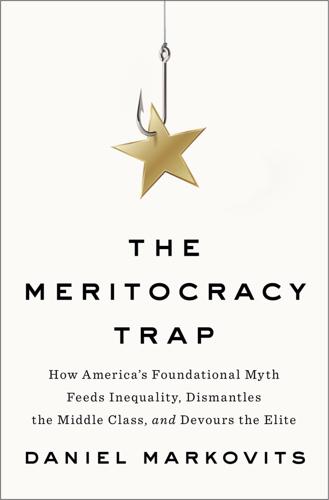
The Meritocracy Trap: How America's Foundational Myth Feeds Inequality, Dismantles the Middle Class, and Devours the Elite
by
Daniel Markovits
Published 14 Sep 2019
The most remarkable thing about Trump is not that he did win but that he could have won—that he successfully imposed this dark vision on the political imagination of the most powerful and prosperous nation in the world, often against conventional wisdom, common sense, and objective facts. In the end, Trump carried key traditionally Democratic states, drawing decisive strength from a group of voters who had supported Barack Obama. Obama’s 2012 triumph seemed to belong to another era. And the “silliness” that elites mocked over the summer of 2015 matured into a winter of discontent, with no spring in sight. The whiplash between 2012 and 2016 baffles the elite. Trump’s victory leaves observers who found it unimaginable feeling as if they inhabit a different world from the one they thought they lived in. Trump’s censorious inaugural address reduced the previous Republican president, George W.
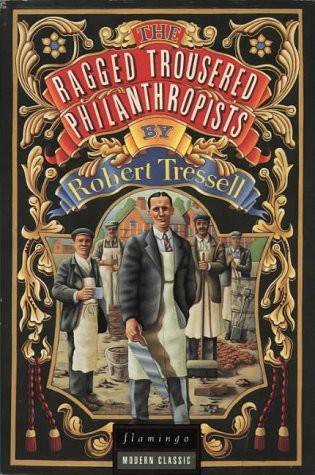
The Ragged Trousered Philanthropists
by
Robert Tressell
Published 31 Dec 1913
Fred Ball’s One of the Damned: The Life and Times of Robert Tressell, Author of ‘The Ragged Trousered Philanthropists’. USA defeated in Vietnam. President Nixon resigns. Labour government elected under Harold Wilson and (1976–9) Jim Callaghan. Ceremony to mark Noonan’s grave with a memorial tomb- stone. Murder of Steve Biko. Chronology li 1978– Winter of Discontent. Margaret Thatcher becomes prime minister. Television play, Give Us This Day: The Life and Times of Robert Tressell, directed by Phil Mulloy, broadcast. Falklands War. Alan Bleasdale, The Boys from the Blackstuff. Stephen Lowe’s stage adaptation of The Ragged Trousered Philanthropists. Famine in Ethiopia.
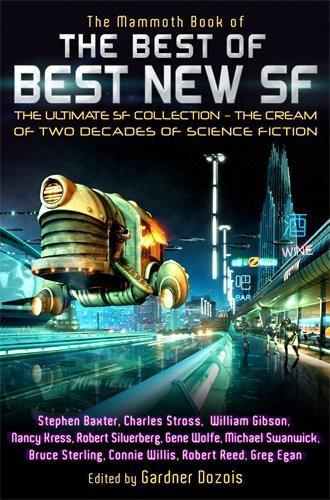
The Best of Best New SF
by
Gardner R. Dozois
Published 1 Jan 2005
What is it?” “Someone hasn’t tied up their bin bags properly.” The pile in the corner of De Beauvoir Square was getting ridiculously big. As more bags were flung on top, so the ones at the bottom split open. The SkyNews and News24 programs always showed them with comparison footage of the ’79 Winter of Discontent. “When are they going to clear it?” Steve asked. “Once a fortnight.” Though I’d heard on the quiet that nearly 10 percent of the army had already deserted, and that was before they had to provide civic utility assistance squads along with fire service cover, prison guard duties, engineering support to power stations, and invading Iraq.

England
by
David Else
Published 14 Oct 2010
Successful songs like ‘Please, Please Me’ and ‘I Want to Hold Your Hand’ ensure The Beatles become household names in Britain, then America – then the world. 1971 Britain adopts the ‘decimal’ currency (1 pound equals 100 pence) and drops the ancient system of one pound equals 20 shillings or 240 pennies, the centuries-old bane of school maths lessons. 1970s Much of the decade is characterised by inflation, inept governments (on the left and right), trade union disputes, strikes, shortages and blackouts, culminating in the 1978/79 ‘Winter of Discontent’. 1979 A Conservative government lead by Margaret Thatcher wins the national election, a major milestone of Britain’s 20th-century history, ushering in a decade of dramatic political and social change. 1982 Britain is victorious in war against Argentina over the invasion of the Falkland Islands, boosting patriotism and leading to a bout of flag-waving not seen since WWII. 1990 Mrs Thatcher ousted as leader and the Conservative party enters a period of decline, thanks partly to the introduction of unpopular ‘poll tax’, but remains in power thanks to inept Labour opposition. 1997 The general election sees Tony Blair lead ‘New’ Labour to victory in the polls, with a record-breaking parliamentary majority, ending more than 20 years of Tory rule. 2003 Britain joins the US-led invasion of Iraq, initially with considerable support from the public and the opposition.

Spain
by
Lonely Planet Publications
and
Damien Simonis
Published 14 May 1997
It runs from four to 11 times a day. Valldemossa pop 1710 Valldemossa is an attractive blend of tree-lined streets, old stone houses and impressive new villas. It owes most of its fame to the fact that the ailing composer Frédéric Chopin and his lover, writer George Sand, spent their ‘winter of discontent’ here in 1838–39. They stayed in the Cartoixa de Valldemossa (aka Cartuja; 971 61 21 06; www.valldemossa.com; adult/student & child €7.50/3; 9.30am-6.30pm Mon-Sat, 10am-1pm Sun Jun-Sep, 9.30am-4.30pm Mon-Sat, 10am-1pm Sun Oct-May), a grand monastery that had been turned into rental accommodation after its monks were expelled in 1835.

Great Britain
by
David Else
and
Fionn Davenport
Published 2 Jan 2007
Successful songs like ‘Please, Please Me’ and ‘I Want to Hold Your Hand’ ensure that pop band The Beatles becomes a household name in Britain, then America – then the world. 1970s Many immigrants of Asian origin arrive and settle in Britain, after being evicted by dictator Idi Amin from Uganda in East Africa – where they’d lived for generations since British colonial times. 1971 Britain adopts ‘decimal’ currency (1 pound equals 100 pence) and drops the ancient system of 1 pound equals 20 shillings or 240 pennies, the centuries-old bane of school maths lessons. 1978–79 The ‘Winter of Discontent’, the final nail in the coffin of a decade, is characterised by inflation, inept governments (on the left and right), trade union disputes, power blackouts, strikes and shortages. 1979 The Conservative Party, led by Margaret Thatcher, wins the general election, a major milestone in Britain’s 20th-century history, ushering in a decade of dramatic political and social change. 1982 Britain is victorious in its war against Argentina over the invasion of the Falkland Islands, boosting patriotism and leading to a bout of public flag-waving not seen since WWII, or probably since Agincourt. 1990 Mrs Thatcher is ousted as leader, and the Conservative Party enters a period of decline, thanks partly to the introduction of the hugely unpopular ‘poll tax’, but remains in power thanks to weak Labour opposition. 1997 After many years of Conservative government, the Labour party (now branded ‘New Labour’) under the leadership of Tony Blair wins the general election with a record-breaking parliamentary majority.